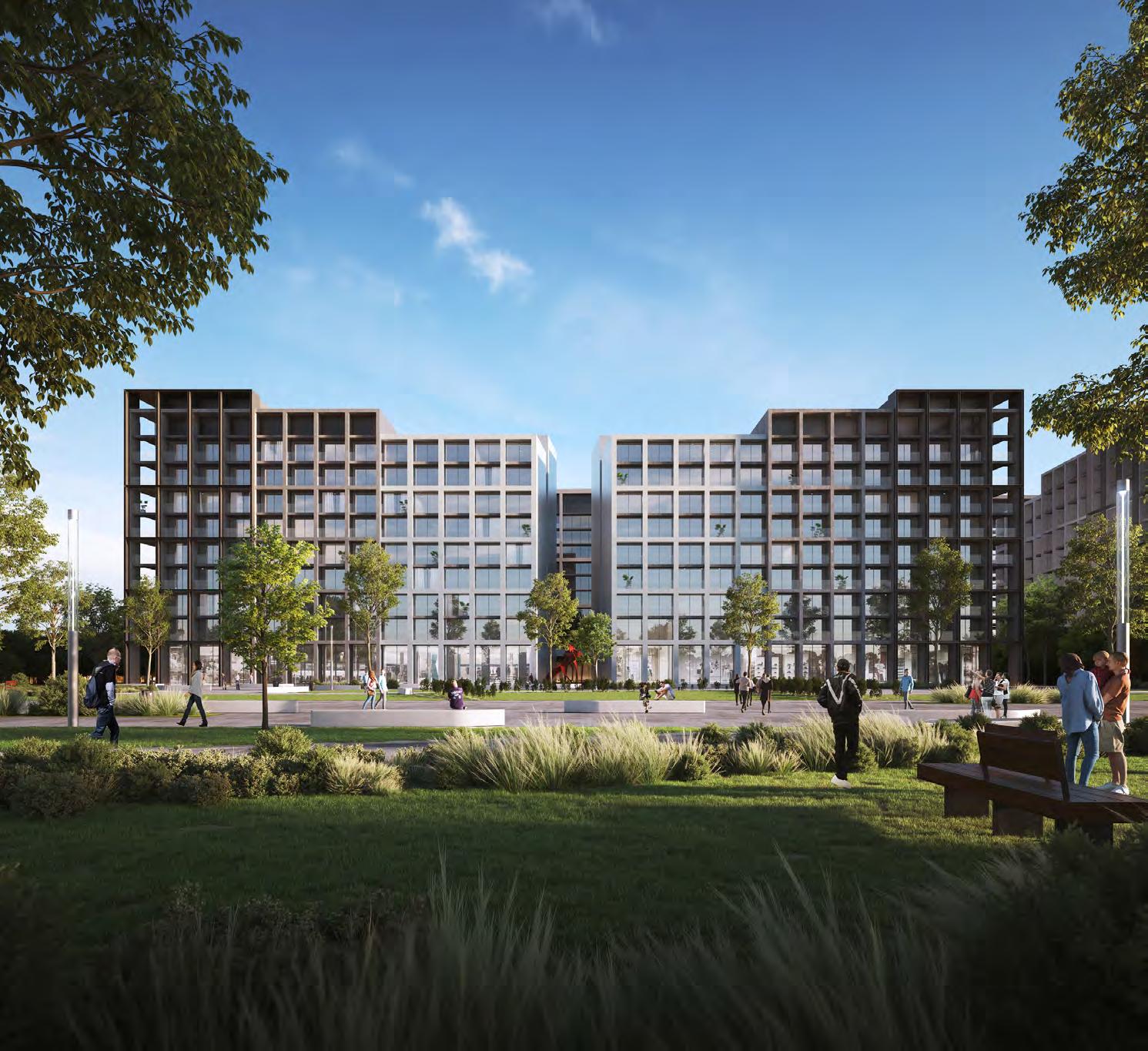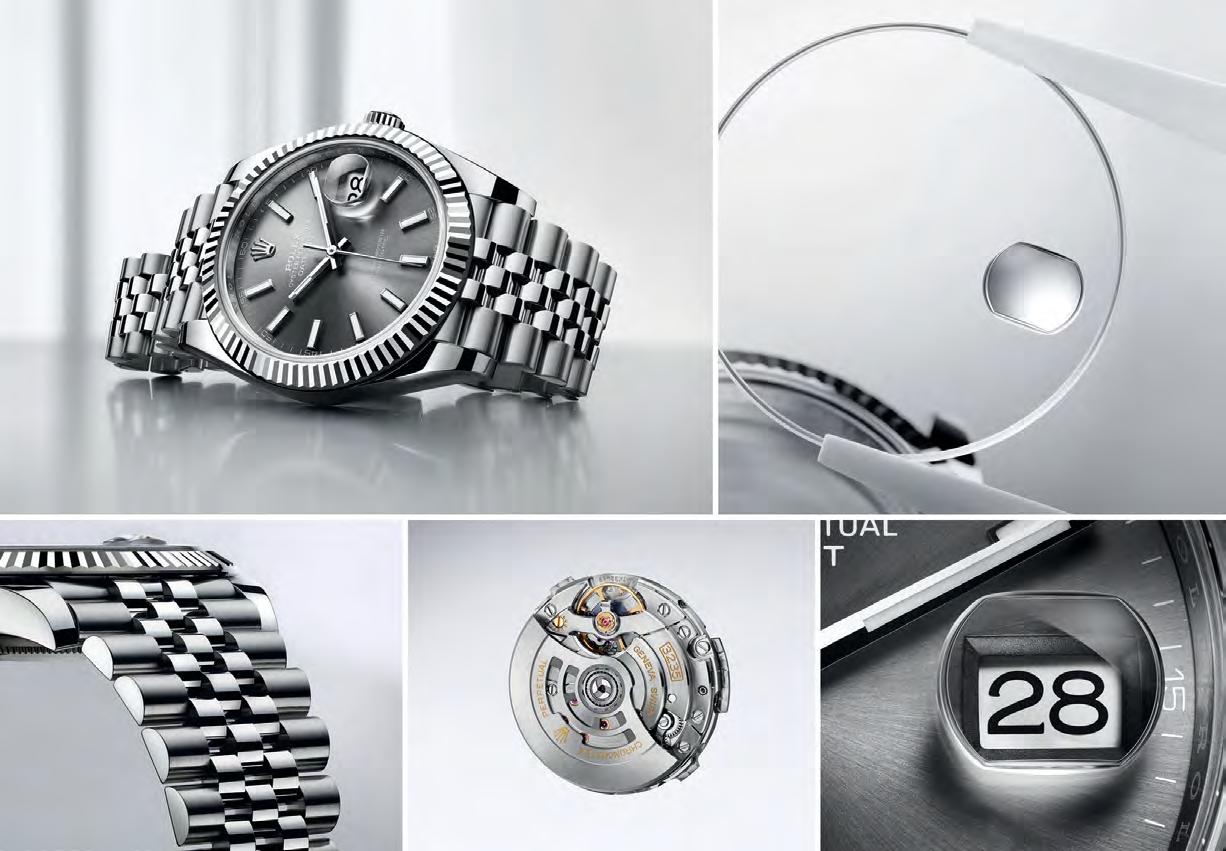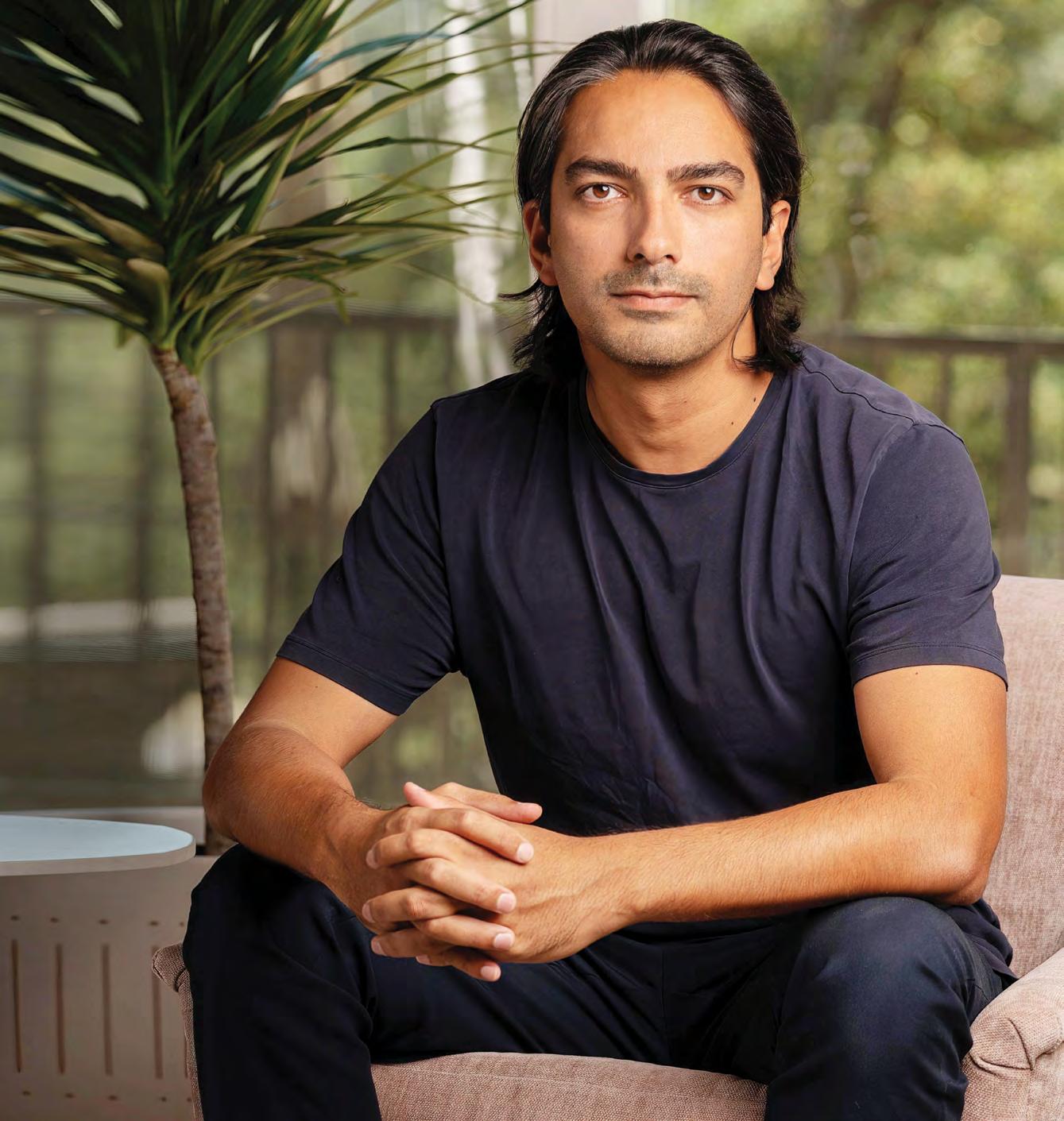






















FEATURES
P.26
Going All In
OKX Global Chief Marketing Officer Haider Rafique pulls out all the stops to build “the world’s most beloved crypto exchange.”
by ABY SAM THOMAS























OKX Global Chief Marketing Officer Haider Rafique pulls out all the stops to build “the world’s most beloved crypto exchange.”
by ABY SAM THOMASA look behind the scenes of the merger between two female-founded entities in the MENA region: consumer brand-building platform Maison Pyramide and talent management agency Ego & East.
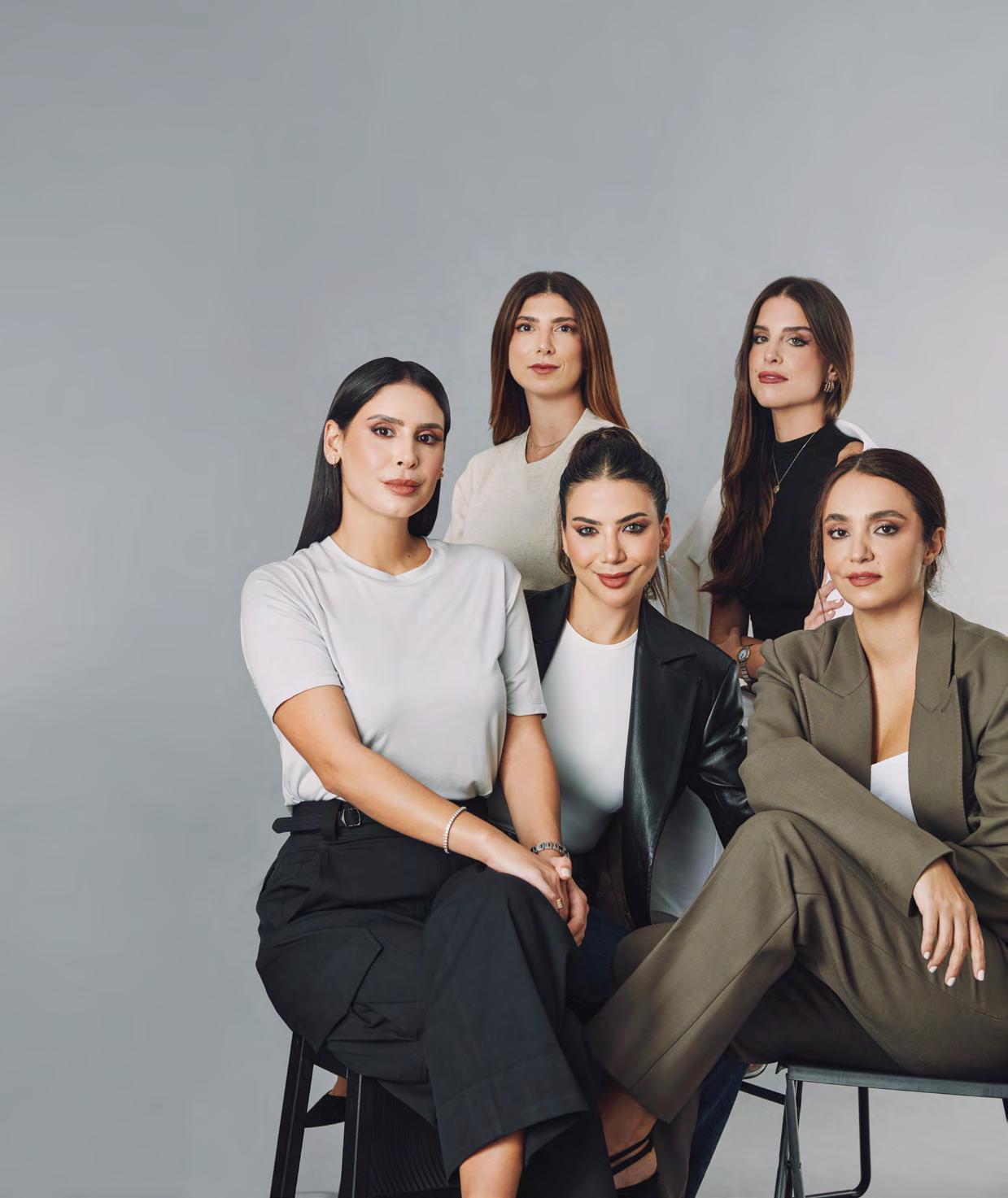 by TAMARA PUPIC
by TAMARA PUPIC
Joseph Achajian’s Lebanon-based menswear brand Maison du Mec is carving a (permanent) niche of its own in an industry marked by transient concepts and trends.
by AALIA MEHREEN AHMED





EDITOR IN CHIEF Aby Sam Thomas aby@bncpublishing.net
CEO Wissam Younane wissam@bncpublishing.net
DIRECTOR Rabih Najm rabih@bncpublishing.net
CREATIVE LEAD Odette Kahwagi design@bncpublishing.net
MANAGING EDITOR Tamara Pupic tamara@bncpublishing.net
STARTUPS SECTION EDITOR Pamella de Leon pamella@bncpublishing.net
FEATURES WRITER Aalia Mehreen Ahmed aalia@bncpublishing.net
DIGITAL SOLUTIONS DIRECTOR Mahdi Hashemi mahdi@bncpublishing.net
HEAD OF INNOVATION Sarah Saddouk sarah@bncpublishing.net
GROUP SALES DIRECTOR – B2B GROUP Joaquim D’Costa jo@bncpublishing.net
COLUMNIST Tamara Clarke
UAE-based online artist marketplace POPC is offering a permanent platform for independent pop culture artists to display and sell their work.
startup Avey makes use of artificial intelligence to offer a self-diagnostic app that helps patients get access to better healthcare.
Sarah Curtis and Zainab Imichi Alhassan Alli looks back on the five lessons they’ve learned from five years in business as co-founders of POP Communications, a Dubai-based social media, public relations, influencer marketing agency.
Young investors are committed to a sustainable post-pandemic redevelopment of the economy–and that means consistent investment in technology.
Aankush Bhatia has his 25+ years of experience in the F&B industry working for him as he aims to reimagine the on-demand food delivery market in Oman with KitchenomiKs.
Paymob co-founder and CEO Islam Shawky is ushering in a new era for digital payments in the MENA region.
Global Millennial Capital founder Andreea Danila is using deep learning and artificial intelligence to disrupt the traditional venture capital investment process.

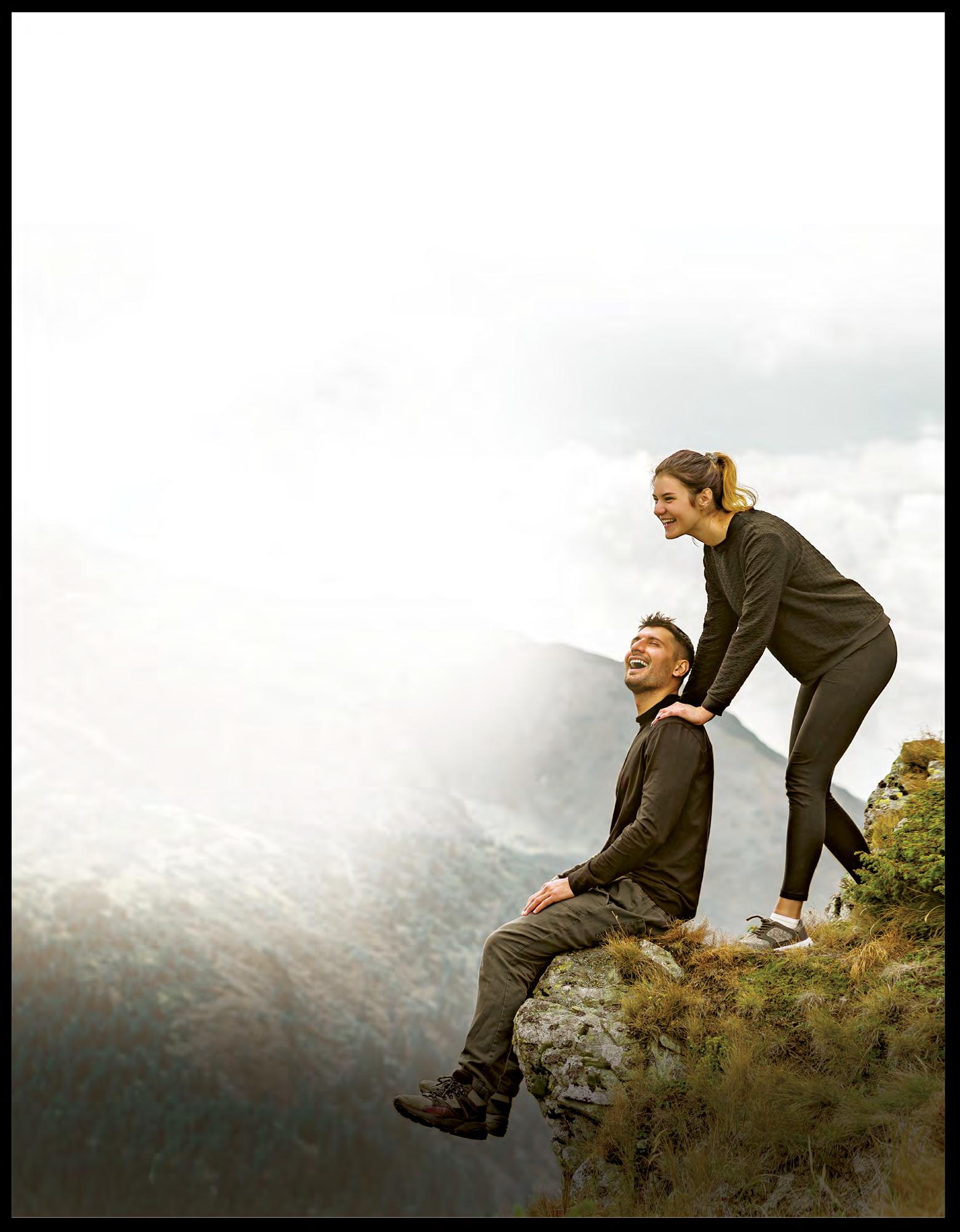
Enjoy contemporary comfort and space in our stylish rooms from Superior & Deluxe Rooms (30 - 45 sqm) to Deluxe & Premium Suites (60- 90 sqm) designed for modern convenience. Marvel at Dubai’s city lights by the balcony and wake up refreshed ready to face a new day.

Delight in and Take away memories of unbeatable fun with family and friends. Enjoy comfortable space in our stylish rooms and suites at Novotel Jumeirah Village Triangle. Whether for business or leisure, this hotel has the perfect base for your gateway in Dubai.

Fresh and interesting food options are available from breakfast to dinner at Thyme, which offers all-day dining. Novo Lounge brings you delicious treats, a variety of hot drinks and a great urban space to catch up with friends or colleagues.
Family is our priority in Novotel. Stay with the whole family and kids under 16 will stay and dine free. Cherish quality time even more by availing of a second room up to 50% off*.
Make more memories here.
Enjoy a comfortable stay in one of our stylish rooms and suites along with our state-of-the-art wellness facilities, recreation center and elegant dining venues. Whether for business or leisure, this 5-star hotel has the perfect base for your getaway in Dubai.
For booking, Kindly contact: 600 53 2220 | +971 4 561 4444 | movenpick.jvt.res@accor.com

Enjoy the contemporary comfort of this family-friendly colossus in the middle of Jumeirah Village Triangle (JVT). With everything you need to make your family getaway relaxing, refreshing, and fun-filled, Novotel JVT is perfectly equipped for an experience like no other. Boasting 375 rooms and suites, an exciting kids’ aquapark, fresh and interesting food options, and an ultra-modern gym, you will enter your own special world as you come through the doors of this chic and welcoming hotel.
Stepping in the doors of this beautiful property you will instantly feel the engaging and warming ambience, and notice the stylish, modern décor. Each room is designed for conve nience as the in-room desks are perfect to get down to some work or take time to marvel at Dubai’s glittering city lights from the attached balcony. Towering over the surrounding area, Novotel JVT has far-reaching unrivalled views of the magnificent city.
Family is the priority at Novotel JVT, and it is the ideal location to cherish some quality time. The hotel features an unrivalled aquapark, equipped with slides, sprinklers, and a daring tipping bucket, ready to splash anyone brave enough to venture beneath, along with a dedicated kids’ corner to keep


the little ones entertained during their stay. Dive in and make memories that will last a lifetime.
If you’re feeling peckish, you can entertain your palate from breakfast to dinner at Thyme, which offers all day dining. If it’s more of a light bite, delicious treat, or hot drink you’re after, then the marvelous urban space at Novo Lounge has you covered. To add even more tantalising taste sensations to your trip, Ricci’s Italian restaurant is coming soon to bring you creamy Italian dishes and laidback vibes by the poolside.
For the fitness fanatics, Novotel JVT has a fully equipped gym with an adjacent Jacuzzi and sauna to ease your aching muscles after an invigorating workout. Guests will also love splashing into the heated outdoor swimming pools for some revitalizing morning lengths or a refreshing afternoon dip. The ladies are also catered for with a dedicated rooftop gym and pool available to workout in peace surrounded by stunning views. To complete your health kick, the signature La’Mar Spa is coming soon to help guests feel the power of healing.

Now is your time to take some well-earned family time and make the memories that won’t be forgotten by booking your stay at Novotel JVT today. novotel-dubai-jumeirahvillage.com



Revamp and elevate your hotel experience at Mövenpick
Jumeirah Village Triangle (JVT). Situated in the picturesque surroundings of Jumeirah Village Triangle, this five-star hotel has opulence, convenience, and excitement in abundance. Whether you’re looking for fantastic dining options, kid-friendly activities, a place to host those all-important meetings, or a quiet area to work or study, Mövenpick JVT has it all. Beautifully adorned with marble flooring and exquisite wooden fixtures,
you will be blown away by the magnifi cent architecture. Boasting stylish rooms and suites, all with uninterrupted views of the Dubai city skyline, they give you the space needed for work or relaxation. The suites also feature large lounge areas, which is ideal for spending quality time together.

During your stay, take the plunge and splash into Mövenpick JVT’s heated outdoor swimming pool for some invigorating morning lengths or a refreshing afternoon dip. The modern health club and fitness centre, is packed with a range of cardio and strength equipment, meaning your workout routine won’t take a day off when you do and the adjacent Jacuzzi and sauna will ease away the aches and tension afterwards. With the signature La’Mar Spa also coming soon to the hotel, guests can look forward to serenity inducing treatments. For the ladies, there is a dedicated pool and gym on the roof of the hotel with beautiful skyline views, so you can complete your workout in ultimate peace with an outstanding vista.
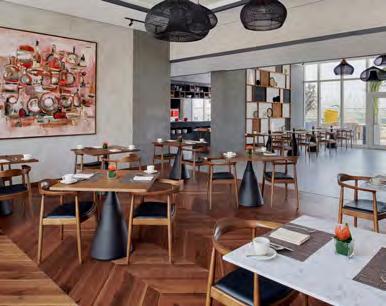
With fun for the whole family at the heart of everything, this iconic hotel sports an exciting aquapark, equipped with slides, sprinklers, and a daring tipping bucket, ready to splash anyone brave enough to venture beneath. Furthermore, a dedicated Kids Club will entertain the little ones from morning until night.
If you’re looking for great dining options, then look no further. MRKT will keep guests happy all day with a
jam-packed range of delicious Arabian and international dishes served up from live cooking stations. The Mövenpick Café located in the heart of the lobby is perfect for hot drinks, light bites, baked goods, and sweet treats, with the chef’s famous chocolate hour giving guests complimentary treats daily from 4 to 5. Soon to join these culinary splendors will be Ricci’s Italian where the tastes and aromas of the Mediterranean coastline will be conjured from fresh seafood, pizza, and pasta.
With everything on offer at this superb property, book your stay today. movenpick.com
Do you ever go back to look at things you’ve created or built in the past? Maybe it’s the first deck you sent to an investor, or perhaps it’s the first prototype of your startup’s productyou might have been proud of them then, but seeing them today might cause you to cringe.

This month marks eight years since I joined Entrepreneur Middle East, and so, the other day, when I pulled out the first issue that I worked on, and
compared it with the magazine in front of you today, it served as a reminder of how much we think we know what we are doing at any given point in time- when the reality is that we’re all simply guessing at how we go about life and work. Indeed, while it may seem trite to say that it has been a rollercoaster of a journey, that, I’m afraid, remains the most apt way to describe my time at this publication. Much like all you entrepreneurs out there, we’ve been constantly adapting to (and evolving with) the varied circumstances and market cycles we find ourselves in. But while the changes we have gone through over the years are clearly palpable, I am comforted by the fact that our core values -which govern my and my team’s stewardship of this brand- have remained the same. Has it been easy for us to remain committed to our ethos all through this while? Hell no! I can start a litany of the trials and tribulations we have endured at any given minute- and I can also state for the record that some of these challenges continue on to this very day. But then, what keeps us going at the end of the day -and what it all really comes down to- is impact. From the fledgling entrepreneur who wept tears of joy after we featured her and her company in the magazine, to the co-founder of a unicorn startup who told us that the story we did on his business’ landmark acquisition still has pride of place on his mantle, the goodwill that we get for the work that we do continues to fuel me and my team, day after day. As such, to all of my readers, I wish to sincerely thank you for giving me the honor of your time over the last eight years- I hope to continue to be deserving of it in the future as well.
Aby Sam Thomas Editor in Chief @thisisaby aby@bncpublishing.net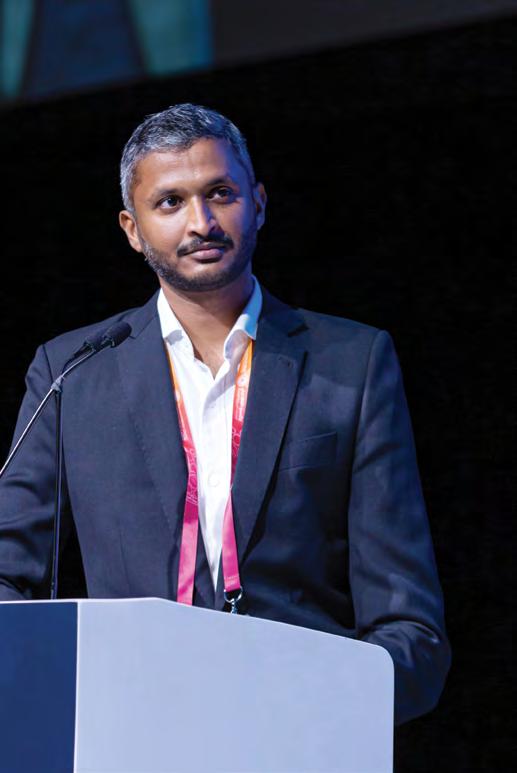
Consistency in values (and value-add) are hard to maintain




UAE-based online artist marketplace POPC is offering a permanent platform for independent pop culture artists to display and sell their work

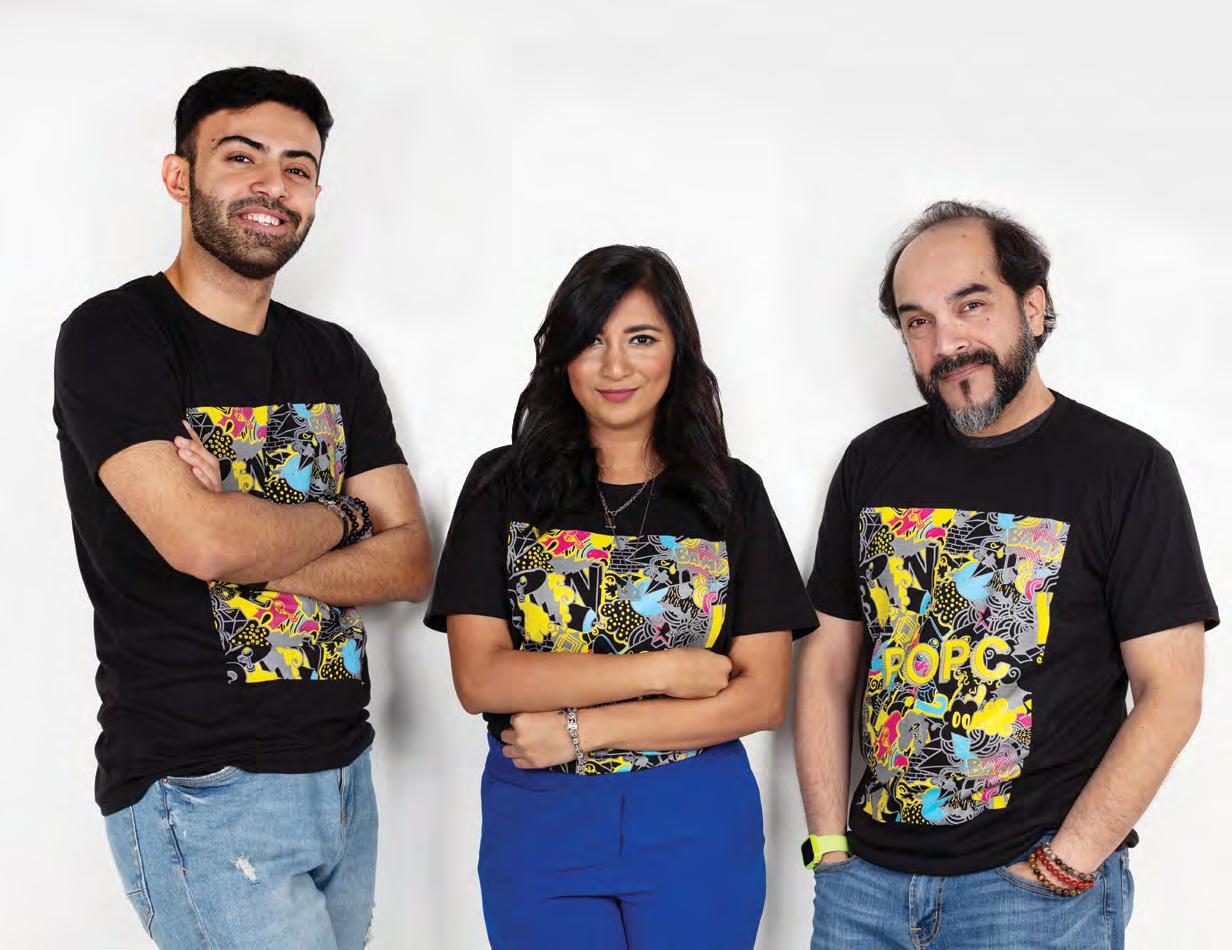
id you know the term “pop culture” was coined in the 19th century? It was initially a phrase used to describe the culture of the less privileged and the uneducated; the upper classes had what was called the “official culture.” All that, of course, has changed over the years. In 2022, one
needn’t look too far to observe that the elements of mass culture have pierced through the barriers of language, race, and nationalities. Amna Aijaz, co-founder and Chief Art Officer at UAE-based online artist marketplace POPC, however, highlights one glaring issue within the Middle East’s pop culture ecosystem: regional artists like herself don’t have a year-round platform to showcase their talents, nor sell their merchandise. It was a problem she observed firsthand while
working on various pop culture events including the Middle East Film and Comic Con- an annual event that brings together fans of comic book movies, TV shows, and video games, among others, and ANI:ME- an event that celebrates Japanese pop culture such as anime and manga. “We see instances of platforms like this in Western markets, but they’re not easily accessible for most independent artists in the Middle East,” Aijaz says.
“The Middle East market has a huge appetite for pop culture, and we’ve seen an exponential increase in e-commerce shopping after the pandemic. With that in mind, my co-founders and I created POPC. With POPC, we can provide artists with their own storefront and unique metalink that they can easily share across their online community, giving them the opportunity to sell their work 365 days a year.”

Launched in July 2022, POPC was co-founded by Aijaz along with Arafaat Ali Khan and Haroon Tahir. Khan is the CEO of POPC’s holding company Waverider Entertainment, an intellectual property content creation and management firm centered around pop culture and entertainment. But he is perhaps better known as the co-founder of the aforementioned Middle East Film and Comic Con, and, according to Aijaz, is referred to as the “pioneer of pop culture” in the region by his peers and competitors alike. “Considering he launched the event that brought about the creation of the pop culture community in the region, it was a no-brainer to have him on the team,” Aijaz says. Meanwhile, Tahir is a marketing and communications professional, as well as a self-pub lished author and content creator whose debut poetry collection Loved, Lost and Learned debuted at the top of Amazon’s Middle Eastern poetry bestsellers list and charted in the top 20 of the overall bestsellers’ list. “He [Tahir] and I have been good friends since university, and I believe his enthusiasm for music, urban culture, and fashion also bring a unique energy to the POPC management team,” Aijaz adds.
According to Aijaz, having a co-founding team that is deeply ingrained in pop culture has helped in ensuring that the essence of the business stays intact. “Our goal has always been to nurture this commu nity and help it grow, with a heavy focus on building an independent artist community, where they can expand their skill set and create a fan base,” she says. “We aim to unite pop culture fans, artists, and shoppers alike under one pop culture hubPOPC.” This attitude exhibited by the trio of self-proclaimed pop culture
WE WANT PEOPLE TO EXPERIENCE SOMETHING THEY’VE NEVER EXPERIENCED BEFORE IN THE MIDDLE EASTAN INTENSE, RIGOROUS TRAINING SCHEDULE WHERE YOU WILL DANCE, LEARN, AND CONNECT.
enthusiasts also explains the reasoning behind the startup’s chosen name. “POPC is simply a short form of ‘pop culture,’ where the C can be used to describe all the elements that form our vision for the brand- such as, commu nity, creation, content, and more!” Aijaz says. “The name had a wonderful sound to it, and it lends to great brand recall! It also bottles up the essence of our brand: we’re fun, we’re tongue-in-cheek, and we want to make high quality merchandise easy to sell and shop for in the region.”
So, what exactly does POPC offer? The co-found ers reply that their enterprise has launched with a core product line of t-shirts, hoodies, mugs, wall art and stickers. “All our products are custom printed and on demand to the highest of qualities,” Tahir explains. “They are produced and printed once the customer places an order, thus ensuring the limited and unique nature of the designs, and also

minimizing waste. We want our customers and creators to come as they are, so we are open to their designs and inspirations from their favorite fandoms. We see ourselves as facilitators, bringing their creativity to life on physical merchandise.” On how the artists themselves earn money through POC, Tahir replies,“Our artists receive aggregated royalties for their designs when their products are sold, on a timely basis. The business model is a sustainable one as it encourages our artists to be more invested in their products and allows them to monetize their skills very quickly, all while keeping our supply chain lean and efficient.”

But as much as the designs from pop culture artists and creators come from a place of joy and genuine interest, issues such as lack of originality and diversity can threaten the integrity of a business such as POPC. But the
team claims to have those aspects covered too. “We always take great steps to ensure that the artwork is not copied, and that no copyright infringement is taking place- each artwork that is submitted by our talented pool of artists is manually vetted by a senior member of our design team,” Tahir explains. “Our target audience are people who have a passion and love for pop culture and art, people who are not afraid to express their unique point of view. We want everyone who comes to POPC to find something that resonates with them. The core age demographic is 16-45- although we truly believe great taste has no age! We’re also a very inclusive brand; our apparel products are unisex, and we offer a great range of sizes- even while creating our t-shirt line, we’ve created a fit and silhouette that would work for every body type. Our goal is to have something for everyone that wants to express their uniqueness, no matter their back ground, age, or gender.”
Moving into the new year, POPC already has more plans up its sleeve. “We are currently working on some exciting projects that will further engage the pop culture, artist, and comic book community,” Aijaz says. “One of them is POPC Reads, the first of its kind Arabic-language comic book reader that will be home to a repertoire of exciting new titles created by artists from the region, in addition to global titles that have never before
↓ Fandom culture presents a unique opportunity, says the POPC team, as their brand is all about expressing one’s individuality.
been presented in Arabic. We are also looking to engage with Web3 artists and the wider community to create ‘phygital’ pop culture experiences that go beyond just purchasing a digital artwork. Moreover, the offerings we want to add in the next quarters include more color options, custom matching sets, custom stickers, and a greater variety of custom apparel including bomber jackets.” But when it comes to the long term, Tahir believes that the sky’s the limit for his enterprise.
“For the POPC brand, our goal is to become the chosen platform for pop culture artists and retailers to reach their fans,” he says. “We want to build an entire artist and pop culture fan ecosystem that is created for the region, by the region!”
Achajian’s Lebanon-based menswear brand Maison du Mec is carving a (permanent) niche of its own in an industry
Don’t be into trends. Don’t make fashion own you, but you decide what you are, what you want to express by the way you dress and the way to live.” These words from legendary Italian fashion designer Gianni Versace are perfectly mirrored in the ideologies that Joseph Achajian has used to create his Lebanon-based menswear brand, Maison du Mec. After all, what Achaijan seeks to create with his label is permanence and longevity in an industry that thrives on short-lived popularity. “Maison du Mec has always had more than simply fashion engrained in its DNA,” Achajian explains. “As a former flamboyant kid myself, I came to terms with the fact that true value lies in design that transcends time and space; lasting gestures, rather than short-lived instant gratifications, that make for a true sustainability of style. Our overriding compulsion at Maison du Mec, therefore, is to exist as a comprehensive reference, rather than a mere fashion brand concerned with seasonal trends and ephemeral fads. Thus far, we have explored different avenues from clothing -both casual and evening wear- to leather goods, footwear, and, most recently, jewelry.”
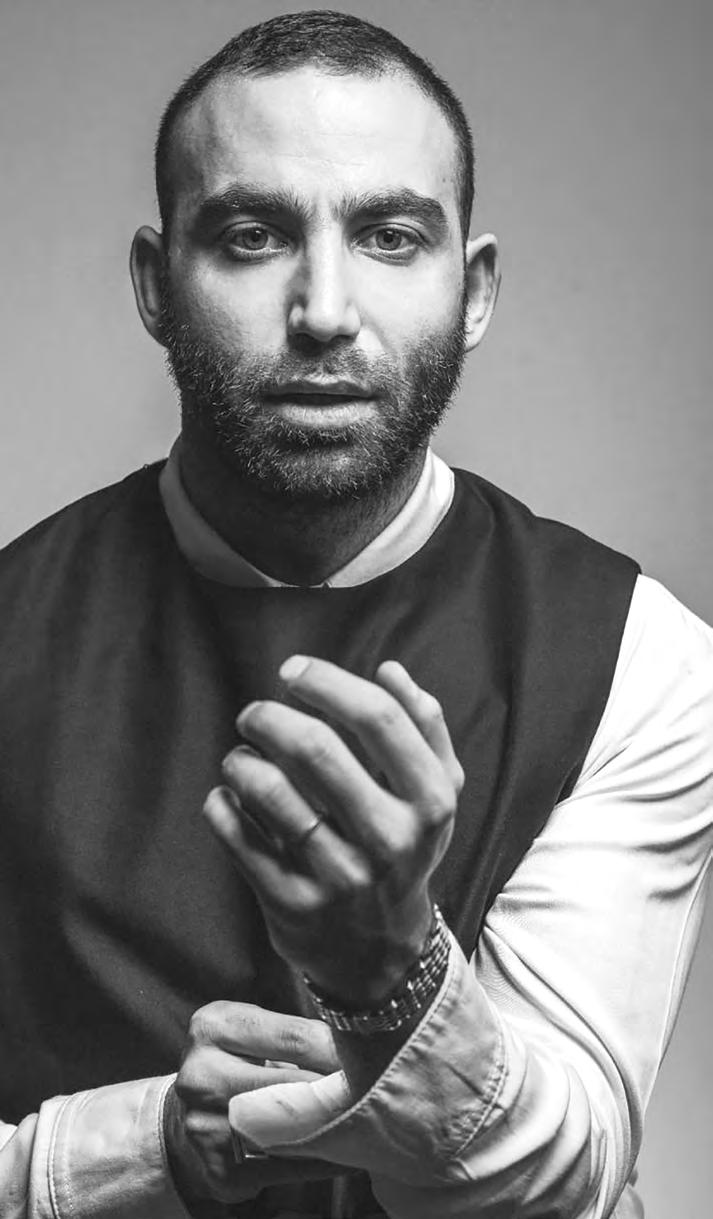
→ Maison du Mec was born from a need to create a brand that understood the local men’s need for fashion and embodied minimal lines, but is not afraid to explore a little change every now and then.
Launched in 2018, Maison du Mec (French for “House of Men”) is a Lebanon-based fashion brand that is inspired by East Asian aesthetics and minimalist designs. Its offerings range from apparel such as suits, cardigans, and pants, to leather goods such as bags, passport holders, and wallets. But if there is an aspect of the brand that Achajian is especially proud of and strongly advocates for, it lies in the fact that Maison du Mec’s ready-to-wear clothing line doesn’t necessar ily conform to the overtly masculine traits that are often characteristic of contemporary men’s fashion. “I have always thought of fashion as the ultimate oxymoron,” he says. “When the most creative forms of self-ex pression are categorized, particularly by gender, it marrs the very essence of what we stand for. With new voices emerging, we believe in the liberty of choice in how our designs are worn, and the fluidity of those who wear them.”
It’s with this mindset that the Maison du Mec design, production, and retail teams have thus adopted a “practical chic” ethos to form the essence of its brand. “It is reflected in every facet of our designs/pieces, and this approach is derived from our firm belief that fashion is not just about looking a certain way, but being a certain way,” Achaijan says. “It’s about consciously leading a certain lifestyle. The only limitation to enjoying our pieces is the limitation of creative translation in utilization of the pieces.” Achajian’s avant-garde approach to fashion is perhaps a reflection, and even a continuation, of his own unconventional journey into the industry. Having gained a Master’s in niology, Achajian was well on his way to becoming a medical doctor at one point until his true passion beckoned him. “Even while pursuing studies in biology, with an under standing that I would one day pursue a career in medicine, I could not ignore a visceral call to create,” the founder says. “With that, I committed to living my dreams, rather than just conceiving them everyday.” It was this realization that postulated what would eventually become Maison du Mec’s tagline: New Dreams Every Day. “It is a dogmatic tagline to remind ourselves and our supporters to keep on dreaming,” Achaijan explains.

→ Maison du Mec’s ready-to-wear clothing doesn't necessarily conform to the overtly masculine traits that are often characteristic of contemporary men’s fashion.

Following a shift in careers, Achaijan, who had no formal education in fashion, had to learn the tricks of the trade while on the job- but the designer didn’t have to look too far for inspiration and guidance. “I grew up in a household of third generation tailors and factory owners, and my evolution into design was an organic one,” he says. “My grandfather used to be a men’s suit tailor, my aunts were haute couture seamstresses, my mom’s aunt had a factory for kids clothing, and my great grandmother used to be a corset/spanks tailor since the 1920s. Being part of that lineage, combined with around 17 years of retail experience, engulfed me in every element of the design process, with a hands-on approach that has allowed me to manage the various steps needed to render an abstract idea into a desirable product.” Thus armed with fashion knowledge passed down through generations, Achaijan was able to craft his own personal vision for Maison du Mec. “My fascination extends beyond design, to pattern cutting, and textiles,” he says. “As a fashion business, however, we do not target ‘customers,’ but we create advocates. This, for us, is a true measure of our growth and success. It is also the reason that we have been able to sustain our brand without overt advertising since its launch.”
Achaijan’s passion and quest for uniqueness is yet again evident in the brand’s most recent line, Rêverie, its Spring/Summer 2023 collection that is characterized by tropical prints, broderie anglaise fabrics, and Mediterranean designs. While the design process for Rêverie involved collaborations with local craftsmen, it also incorporated metalized fabrics produced by Switzerlandbased fashiontech brand Ferronato. “For Spring Summer 2023, Maison du Mec undertook the dare of subverting the tension between conventional realities and irrational aspirations,” Achaijan explains. “The season’s offerings are elaborated as double agents between the effortless and the engineered, the glamorous and the understated, reevaluating the summer wardrobe stereotypes that we all casually entertain.” As for what’s next after Rêverie, Achaijan says that he hopes to keep carrying Maison du Mec forward with the same values he has led it thus far. “Sustaining our aspiration to inspire authenticity and relevance in every piece without compromising on true craftsmanship is our bottom line,” he says. “Fashion is not only a way to express oneself, but also to find and mold oneself. I must say it’s a huge pleasure to contribute to that in any way. Be it through expanding our customer experience into physical retail shops, or diversifying our product offerings into athleisure and even furniture- you’ll have to stay tuned!”
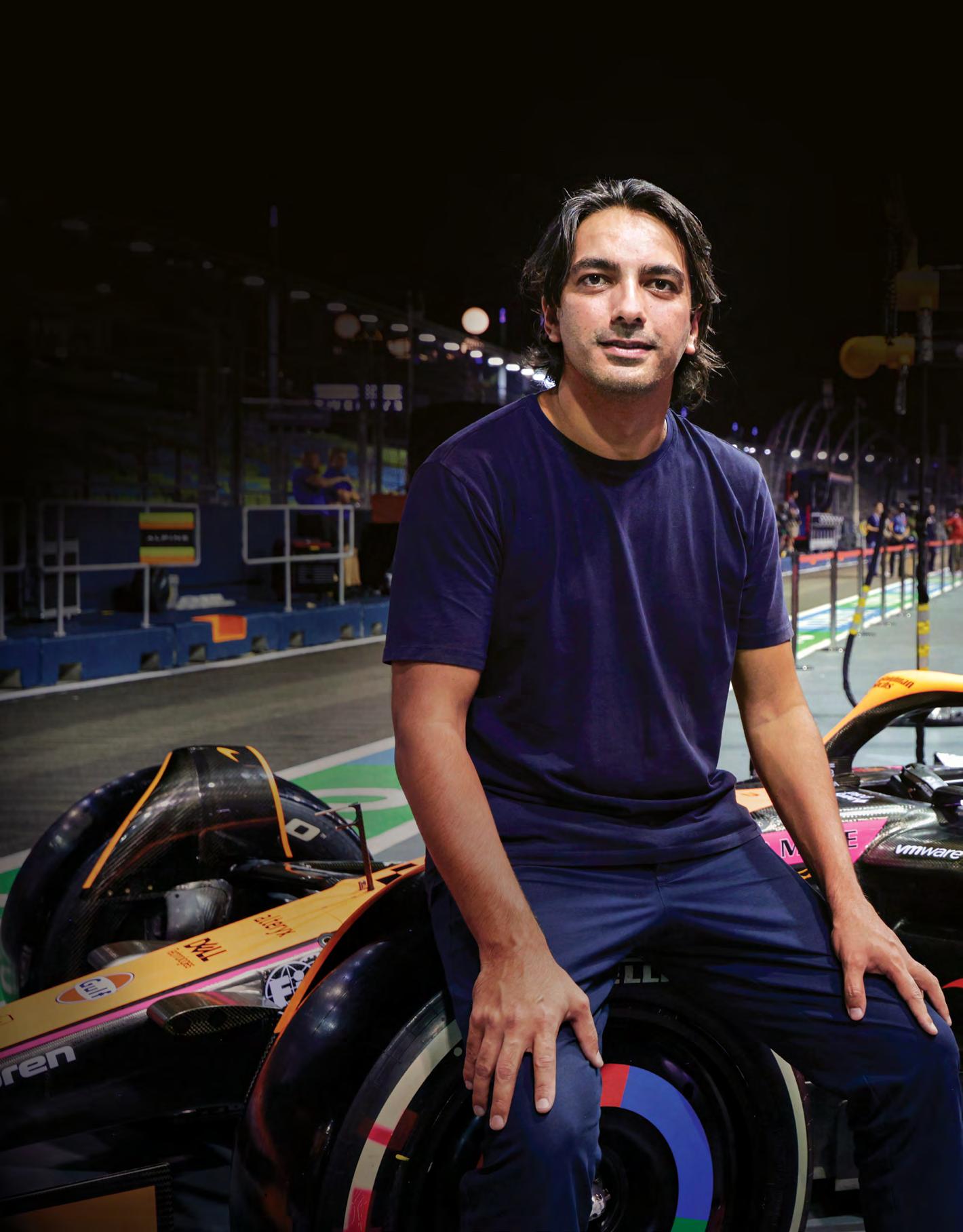

Founded in 2017, OKX is today one of the largest crypto exchanges in the world- in fact, the Seychelles-based entity formerly known as OKEx is the second biggest global crypto venue by trading volume, and its platform is said to be trusted by more than 20 million customers. One of OKX’s biggest markets is Asia, with a survey commissioned by the company in August this year finding that over 65% of traders there were familiar with the app. But the same survey found that outside of Asia, only 15% of traders were familiar with OKX- and that isn’t something that sits well with the company’s ambition to become -according to its Global Chief Marketing Officer Haider Rafique- “the world’s most beloved crypto exchange.” “Everything in life is about energy,” Rafique says. “The energy at OKX -in both the engineering department and other areas- shows you that this will be a breakout brand in the category. But the job is not done. We have to tell our story to the world in an audacious way. We can be the most customer-centric, but if we’re not bold enough, we might end up limiting the expansion of our brand.”
This explanation by Rafique is perhaps the best way to understand the monumental moves that his company has been making on the marketing front in the recent past, all of which was kicked off by a rebranding effort that saw its name change from OKEx to OKX. Rafique led the charge on this front, bringing to the table his experience working at ad firms like McCann and J. Walter Thompson, multinational tech giants like Microsoft and CA Technologies, as well as crypto-centric entities like blockchain.com and OKcoin. “I have felt in the years of working in the crypto sector that, while the tech is super cool, the branding has been, for the most part, boring,” Rafique says. “So, earlier this year, I set out to design some thing completely different and disruptive.” From Rafique’s perspective, the rebrand was all about bringing OKX into what he calls a more decentralized future, where digital assets intersect with other newly created experiences- he points to the ‘X’ in the company’s name as being a representation of the unknown and yet-to-be-explored possibilities in the financial and virtual realms.
But the rebrand was only the beginning- Rafique then led a sprint to grab major brand partner deals to accelerate global familiarity with OKX. “We knew it couldn’t just be any deals,” Rafique recalls. “These had to be ones that were characteristically aligned to us and our goal of creating a generation of new, respon sible traders through education and training.” This is thus the ethos with which OKX engineered partner ships with English Premier League champions Manchester City Football Club, Formula 1’s (F1) McLaren Racing, golfer Ian Poulter, Olympian Scotty James, and F1 driver Daniel Ricciardo- all of which were easier said than done, of course. “Partnering with American talent and sports agency Creative Artists Agency (CAA) to broker and oversee the formation of OKX’s brand partnerships has been a phenomenal experience,” Rafique says. “You can end up with a few grey hairs doing these deals. They are not easy to execute, and they come with a ton of competition and complexity. But at the end of the day, we attracted likeminded teams, and we have been quite fortunate with our portfolio of brand partnerships.”
of these
→ In July 2022, OKX WAS GRANTED A PROVISIONAL VIRTUAL ASSETS LICENSE by Dubai’s Virtual Assets Regulatory Authority, and the company also has plans underway to set up a hub for the region in the Emirate.
ships is, of course, yet to be determined, but the short-term wins have been pretty gratifying for the marketing maven that is Rafique. “Watching the McLaren cars sport our killer ‘Future Mode’ livery in the recent Singapore Grand Prix was an incredible moment,” he admits. “This dynamic livery was very well received, and it can now even be played in the F1 22 video game, which is the first time any crypto company livery has been featured in F1 eSports.” Another of OKX’s landmark partnerships has been with the 2022 Tribeca Film Festival held in June in New York City, which was part of an initiative to bring
“I set out to design somethingcompletely different and disruptive.”
more creators into the Web3 ecosystem- Rafique fondly recalls acclaimed American actor Robert de Niro doing the voiceover for the company’s introduction video at the event. “Jane Rosenthal, co-founder of Tribeca Film Festival, has been an incredible partner, and we invested in our relationship with her, rather than focus on every single line in the contract,” Rafique says. “Focusing on relationships first has been our winning strategy in the market. This is similar to the close partnership we have with McLaren CEO Zak Brown, and Manchester City CEO Ferran Soriano. Our portfolio of brand partners is incredible at creating value for us that goes beyond the agreements we had.”
From Rafique’s standpoint, the common thread running through both OKX and all of its brand partners thus far is an insistence on training relentlessly to achieve excellence. “We chose these partners because their vision matches ours,” he explains. “We had a long list of candidates who wanted to partner with us, but we were lucky enough to be able to only partner with those that also insist on excellence and are aligned on our vision for the future. How they support
our vision goes to the fact that there is a hole in the world today, especially in our category, but even more so in the entire financial services industry. People around the world have lost their trust in the systems, specifically, financial systems. While crypto solves that, we have seen a lot of crypto venues and institutions try the same trickery that led to the loss in trust in the traditional financial systems. We hope that our brand partners will continue to keep us honest, and help us towards our mission of creating the most trusted, and, ultimately, the most loved crypto brand.”
Another major investment OKX made on the marketing front has been in its What is OKX? ad campaign. “Conceived with BBDO New York, this multi-million-dollar video campaign was our first global brand campaign to date,” Rafique says. “Until this year, we had spent our time working to deeply understand our customers and building trading products that are at the absolute cutting edge of the industry. This campaign was us saying, ‘Okay, now we know we’ve got something great, we’re ready to announce it to the world.’” The campaign’s video, which plays on OKX wanting to become a name that resonates better with customers around the globe, has racked up over 15 million views on YouTube so far, helped no doubt by the fact that it features appearances by many of OKX’s celebrity brand ambassadors. “It’s very rare to see a collective positive senti ment on an ad campaign from the market,” Rafique says. “I do have to pinch myself that it all came together like a well-fitted three-piece suit.”
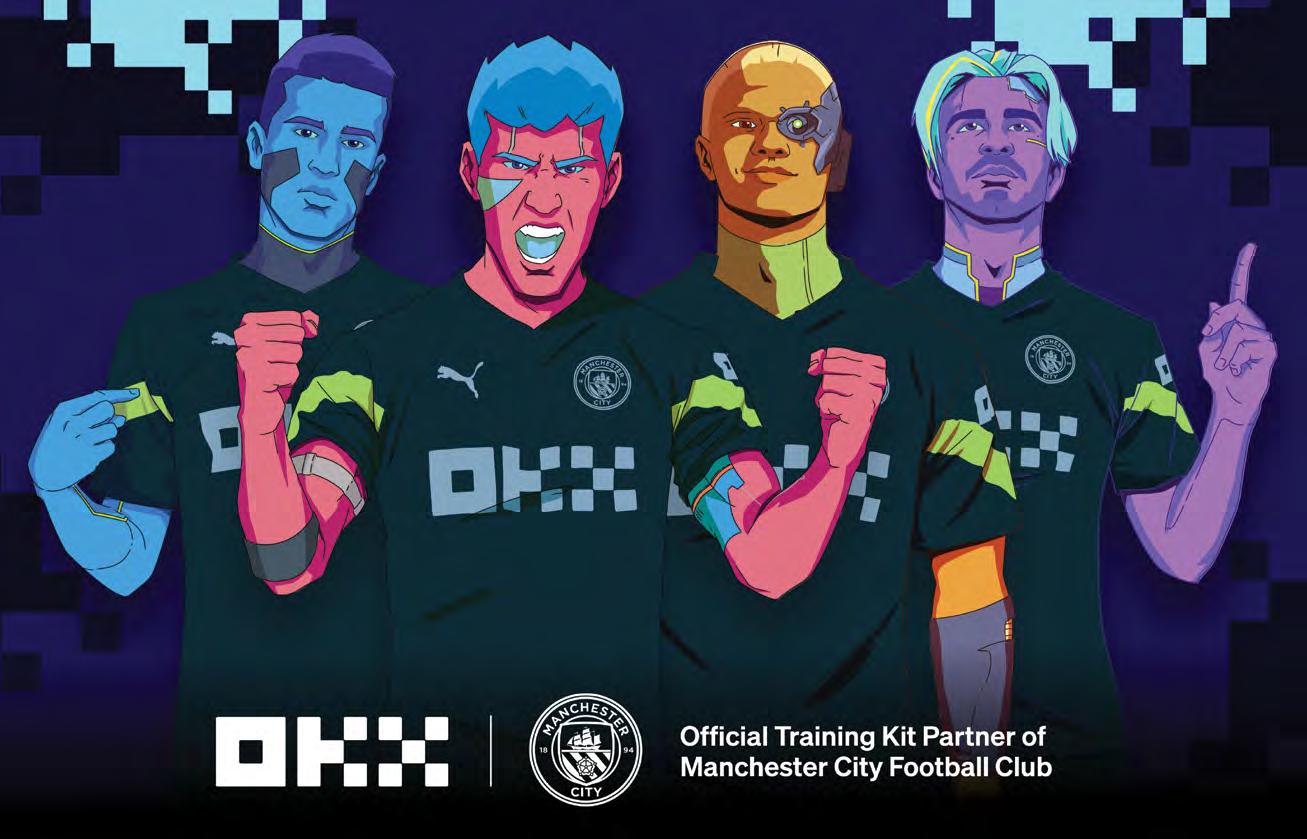 → Premier League champions Manchester City’s global partnership with OKX has the latter billed as THE CLUB’S OFFICIAL CRYPTOCURRENCY EXCHANGE PARTNER. It was OKX’s first venture into the world of sport and entertainment, with the partnership spanning Manchester City men’s and women’s teams, in addition to the Club’s esports operations.
→ Premier League champions Manchester City’s global partnership with OKX has the latter billed as THE CLUB’S OFFICIAL CRYPTOCURRENCY EXCHANGE PARTNER. It was OKX’s first venture into the world of sport and entertainment, with the partnership spanning Manchester City men’s and women’s teams, in addition to the Club’s esports operations.
OKX’s push on marketing comes at a time when a crypto winter has been in full swing, and that can make one wonder about whether such efforts are an efficient use of its funds in this financial climate. But Rafique has a response ready for such an assertion. “We believe it is our mission, as one of the largest crypto exchanges in the world, to encourage our clients to learn about the intrinsic volatility of crypto investment, and discover how to trade responsibly,” he says. “Many of those who got into crypto during the bull market ‘lost their shirts,’ as the saying goes, because they weren’t ready for the crypto winter that followed. Many of our competitors were investing massively in promotion during that time, as was demonstrated by the so-called Crypto Bowl. We believe that promoting OKX during the bear market stops investors getting carried away by the hype and fear-of-missing-out (FOMO), and makes them more likely to take time to understand the risks associated. It

brings to mind the famous Warren Buffet quote, ‘Be fearful when others are greedy,’ and this works the other way around too. We want to increase our marketing at a time when everyone else is pulling back. We feel pretty good about that.”
Now, there’s no question that OKX’s deep pockets have helped secure its branding wins of late- but Rafique believes there are still lessons to be learnt from his journey leading all of them. “The first is to lead with relationships, not contracts. Second, be a hopeless optimist, and ignore all pessimism. And thirdly, be openminded. The world is evolving quite fast. The next generation of global brands may come from the East or other parts of the world. This is primarily why I chose to join OKX, because I see the trend with the likes of TikTok becoming massive global brands without the typical venturebacked journey that we have seen most unicorns take coming out of Silicon Valley. The last one is a life lesson,
There continues to be a lot of skepticism against the crypto landscape, and those new to the industry are reluctant to join it given the fear of scams and Ponzi schemes. Given your experience in this realm, how would you suggest that they enter or explore this industry, and why is it imperative that they do?
“Let me answer the second question first. It is not a question of whether or not digital assets are going to become mainstream anymore. We are already seeing this happen all around us. Governments, banks, and financial institutions have already invested in the space and many countries are considering, or have already created, central bank digital currencies. There are a few times in our lives when we get to see and experience the formation of a technology that changes the way we interact with each other. We are going through that time right now with blockchain and the transparency that cryptos provide to the world. It’s like saying you should learn about the internet in 1999. Crypto and blockchain could eventually be bigger than the utility the internet provided us within the last two and a half decades. It’s also created millions of jobs around the world for people in different markets. It’s helped bring financial freedom to many who took the risk of being early.
The key is to enter and learn about this once in a lifetime technology evolution by educating yourself first. And then, slowly use your knowledge to enter the markets and open a position. But, on OKX, you don’t have to use real investment to learn about crypto and the markets. You can use the demo trading feature in OKX to see how markets react to a possible trade you had in mind. This is a risk-free feature we really encourage all new entrants to use in combination with education before putting any meaningful value into the markets. Ultimately, the win for OKX and the rest of the sector is to create a generation of responsible, educated investors and traders, as well as to debunk the myths of get-rich-quick schemes- because they don’t exist, either in traditional markets or in the crypto markets.”
“WE WANT TO INCREASE OUR MARKETING AT A TIME WHEN EVERYONE ELSE IS PULLING BACK. WE FEEL PRETTY GOOD ABOUT THAT.”
}“Number one is to stand for something. Be clear about it and have no excuses.
}Two, attract a community that relates to your north star and nurture them.
}Three, start small. Solve a small problem that’s badly in need of a solution. Become known for that, and everything else will come together.
}Four, fix the user experience (UX)!”
which is to not underestimate the power of manifestation. We willed our way into these competi tive deals, and beat out competi tion not just in our category, but also many other leading brands who tried to compete for the deals we acquired this year. That is a big feat, and it came from us ‘believing’ we could do it, and that we deserved it.”
It is this spirit that Rafique wishes to impart to entrepreneurs and startups wanting to realize similar levels of success to what OKX has enjoyed. “My advice for other businesses is that the biggest power is in intention,” he says. “If you have the intention to be a breakout brand, go all-in, and have no excuses. But not every company needs to be a breakout brand. Many break out after 20 years of existence.
But in a category like crypto, it’s important to be a breakout, as the category matures in the coming few years. This is because the market share is being decided now. If we miss the chance, it’ll be lost.” This also ties into the goals Rafique has set for himself at OKX. “My personal north star is to ask myself: how do we create a company and a brand that ultimately becomes the beacon of trust and transparency in the newly-built crypto financial ecosystem? How do we become the most trusted and loved brand in our category?” But, at this point, when I try to drill a little deeper and ask Rafique about the goals he’s personally working toward for the long term, he replies, “I am here to help OKX become the most loved and trusted in the world. Right now, I am laser-focused and obsessed with that mission, and I cannot think beyond those goal posts.” Rafique is thus clear ly going all in with the vision he sees for OKX- the rest of us will have to wait and watch to see if he has played his cards right.
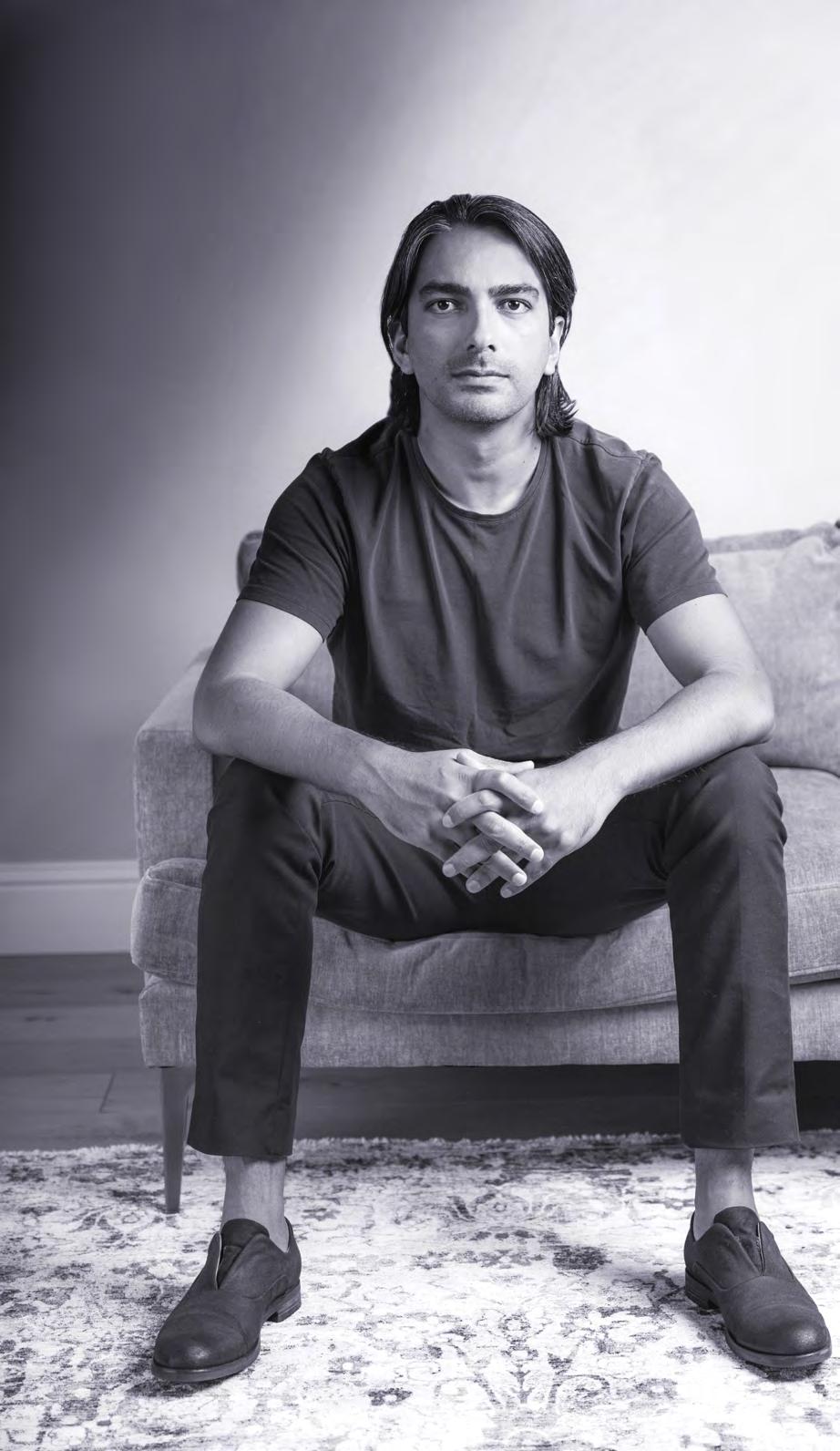

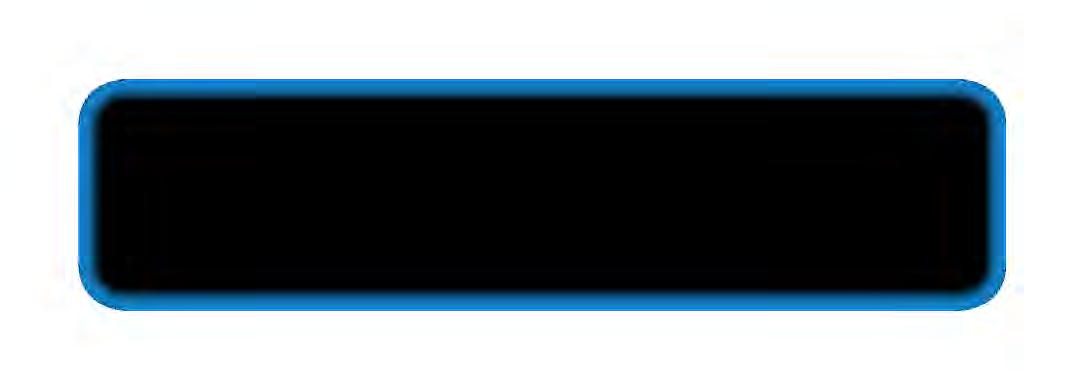







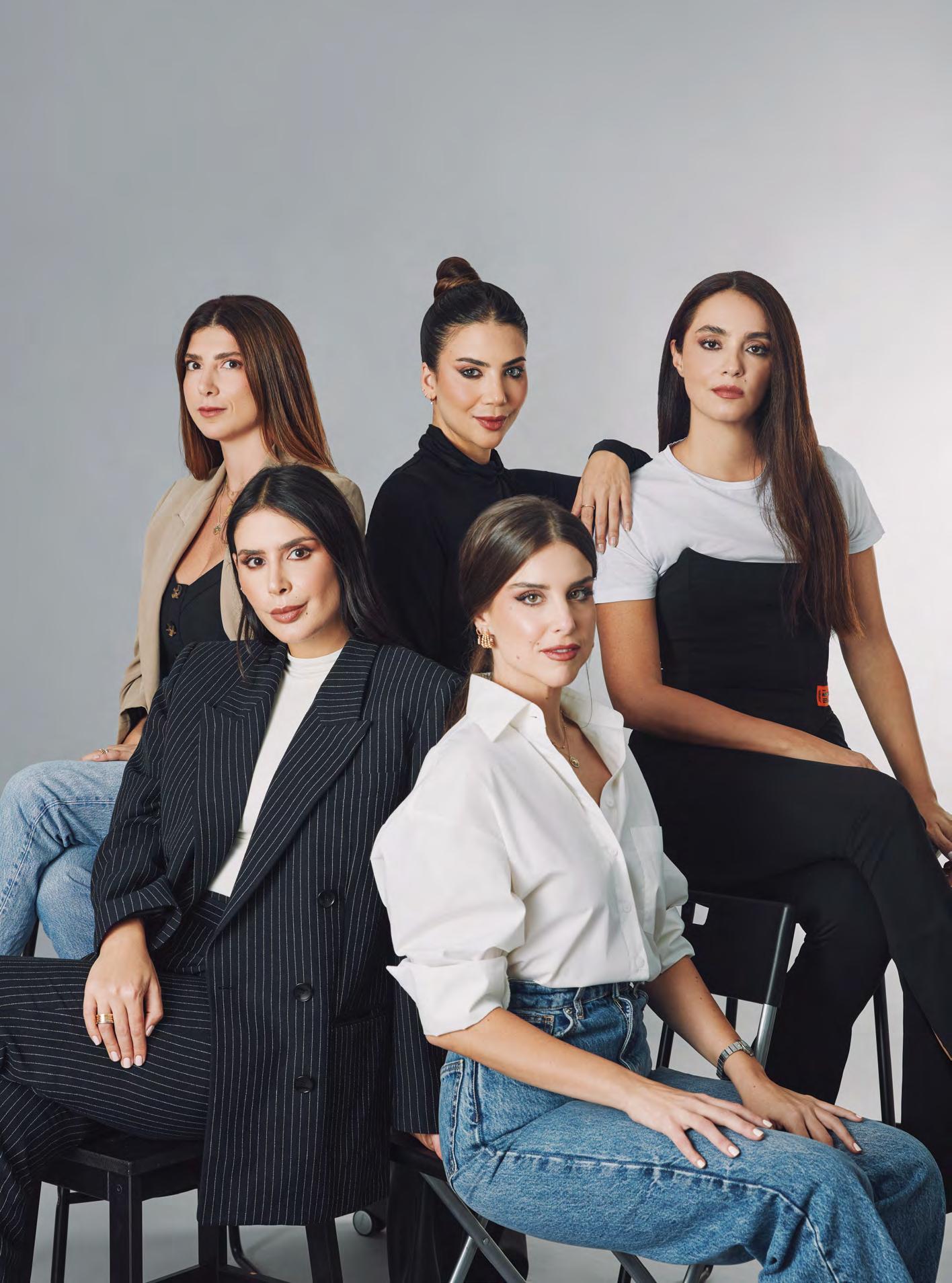
Behind the scenes of the Maison Pyramide / Ego & East merger
by TAMARA PUPICThe announcement of a merger between consumer brand-building platform, Maison Pyramide, which was co-founded in 2016 by Giovanina Attieh, Nathalie Mroue, and María Munoz, and Ego & East, a talent management agency set up by sisters Reem and Natalya Kanj also in 2016, can be seen as a great strategic move for the two businesses, both of which work out of the MENA region.
But, at the same time, the coming together of these two companies is also an indication of the vision-driven plan of the five women leading them, which is to nurture a whole new generation of talent and consumer brands from the MENA region.
While Maison Pyramide has strategy consulting, marcom, and successful EMEA wholesale distribution capabilities, Ego & East manages a growing talent base from the regiontogether, the two entities will be able not only to groom regional talent into celebrity influencers, but also to help them create and launch lifestyle products. As such, the merger serves as a showcase of the good that can result if entrepreneurs in the MENA adopted a collaborative mindset with each other. “We never envisaged Maison Pyramide to be a small boutique owned by all three founders only, but we welcome like-minded partners to join us and be part of our exciting global adventure,” says Munoz.
The deal, which was structured as an all stock acquisition, was led by Mergers and Acquisition Banker Yann Pavie, who has accumulated over 25 years of experience in the private equity and investment banking industry, including as Chief Operating Officer and Board Member of NBK Capital. Pavie invested in Maison Pyramide 18 months ago, becoming a partner and Chairman. “It is essential to have a trusted counselor- an experienced dealmaker leading the conversation; a person who has the right skills and industry knowledge,” Munoz says. “Yann was key to defining the role of both parties beyond just putting the deal together, and with his guidance, we will continue to explore merger and acquisition opportunities with like-minded partners to accelerate Maison Pyramide’s growth or bolster capabilities in certain key verticals.”
Now, these five women -who will now function together as co-founders of Maison Pyramide and jointly oversee their teams based in Cairo and Dubai- are determined for their new entity to not stray away from the masterful execution that their individual companies are already known for. That’s why Attieh, who boasts of more than 15 years of experience of working in retail with luxury brands like Vivienne Westwood, Chloe, and Alexander McQueen, insisted on creating a natural synergy with the Ego & East management team before agreeing to a merger. “First and foremost, it is essential to have a clear and detailed integration plan between the two parties, before finalizing the deal,” she says.
“With a merger, there can be a lot of confusion as you’re introducing a new team to your already existing structure, and naturally, the culture will need to change. Make sure to listen to your team, and involve them in the process, fostering a united culture. Beyond that, I would also highlight the value of really engaging with the other party to get a ‘feel’ for how their culture would fit with yours. It is very important and also rewarding to nurture those human relationships while the other more ‘bureaucratic’ tasks get completed.”
For her part, Natalya Kanj considers it gratifying that her company Ego & East has reached a point that it can add value to a larger company. The deal was structured as an all-stock transaction, with Ego & East’s two owners, Reem and Natalya Kanj, joining Maison Pyramide as shareholders and executive partners. And now at Maison Pyramide, Natalya Kanj will be bringing in her experience of working with top-tier brands, such as Diane Von Furstenburg, Myla, Dior, Louis Vuitton and Fendi, into her new operationsfocused leadership role. “Processes are important for us to be able to create a fair framework, and to be able to measure the impact our clients make,” she explains. On the other hand, Natalya’s sister, Reem, will invest her extensive experience in the digital marketing sector as well as her strong presence as a digital influencer collaborating with the likes of Louis Vuitton, Fendi, and Tiffany & Co into helping expand the company’s global and regional reach. Reem finds that coming together with the Maison Pyramide team enabled her “to delve into every corner of her previous business, and study it inside-out.” She adds, “It taught me how to appreciate the value of an external view, but also the importance of remaining true to my initial ethics and values as a business owner. The beauty of this merger was the undeniable match in synergy between Natalya and I and our new partners. We couldn’t have asked for a better company to merge and unify our vision with.”
Going forward, Maison Pyramide’s merger with Ego & East will add significant capabilities to the execution of its upcoming brand activities, from Chopard’s regional activations and Threads Styling’s public relations in the Middle East, to advising and executing on a strategy and impressive array of activations for Saudi Research and Media Group’s Hia brand. As such, to ensure that the company continues to deliver excellence in all that it does, the five co-founders are adamant on staying as close to their audiences as possible. “Too often, strategists and marketers are waiting to speak, or offer services and answers, rather than listening to what’s really happening with their customers, or within their industry,” explains Munoz.
andNathalie Mroue
“The beauty of this merger was the undeniable match in synergy between Natalya and I and our new partners. We couldn’t have asked for a better company to merge and unify our vision with.”
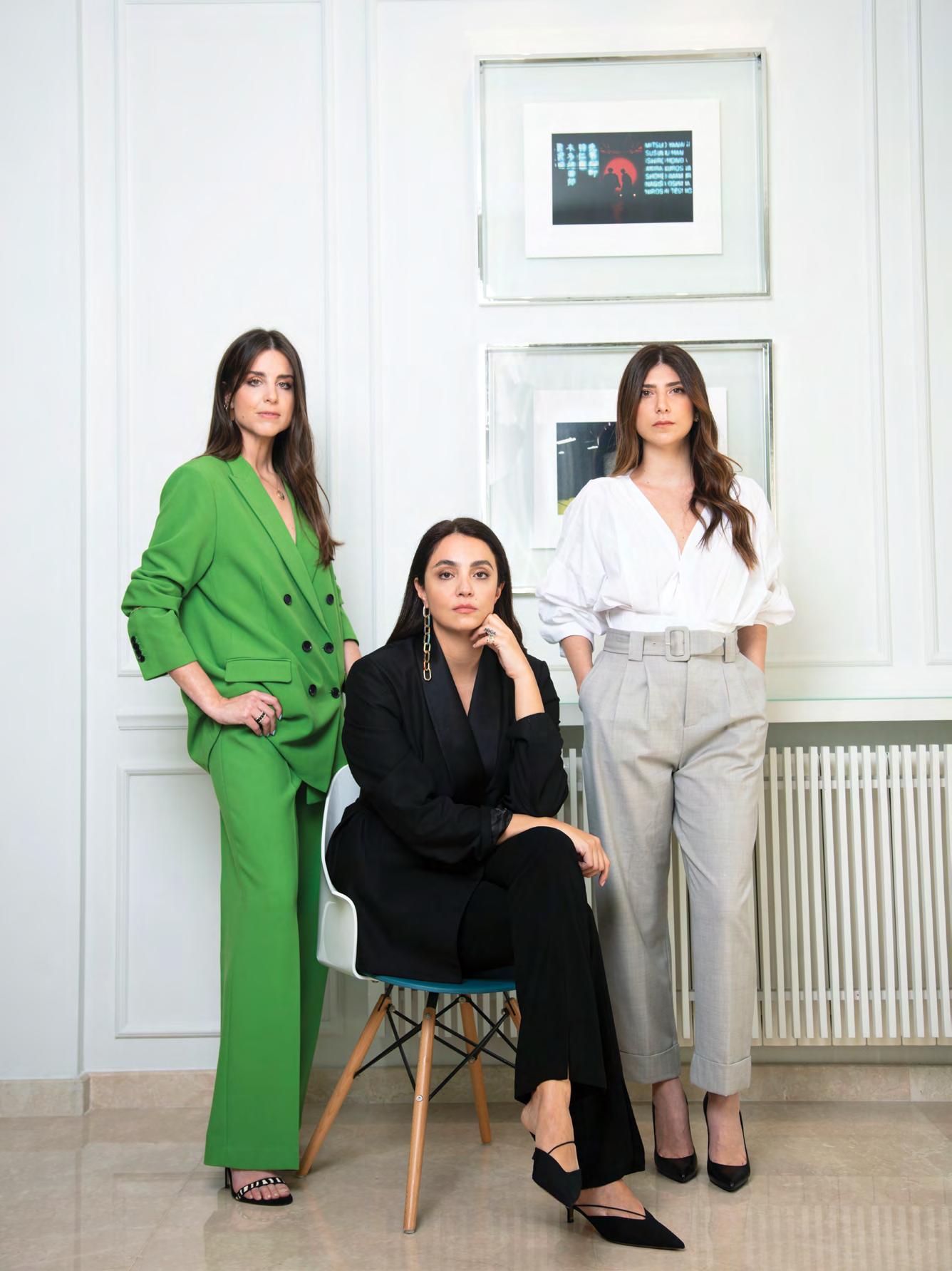
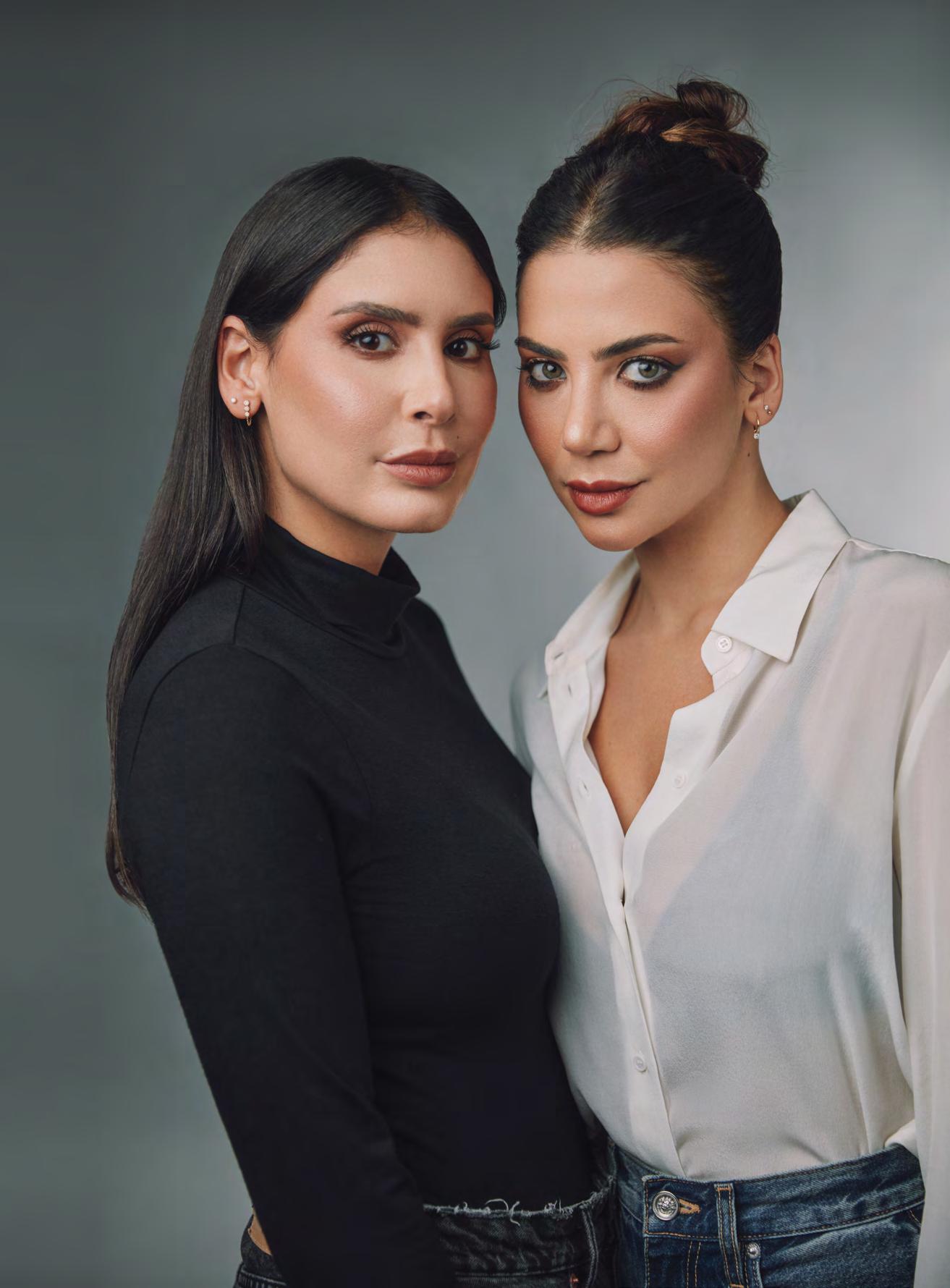
“We nurture the relationships within our network, and prioritize the conversation with each of them.” At this point, the third co-founder of Maison Pyramide, Nathalie Mroue, who has more than a decade of experience in international marketing and communications (including with Elie Saab London as its Head of New Media and PR), adds that organizations need to be analytically driven in order to spot trends in advance. “It is done by using the right tools and, of course, by hiring the best people,” Mroue says. “We are keen on making Maison Pyramide home to all of them by offering everyone an exciting career path all the way, leading to them having the opportunity to eventually becoming partners and shareholders.”
Here, Attieh adds two important tips for entrepreneurs in the luxury sector wanting to stay atop trends that have the potential to change the status quo in the coming years. “Firstly, localization is key,” she says. “The tides are turning, and we are no longer just looking towards the West, but they are looking towards the Arab world. Then, commitment and responsibility are at the heart of every company today. We are looking for brands to be transparent, and holding them responsible for their actions; therefore, forming a relationship with your customers is dire.” Trends come and go, Mroue adds, but “there always has to be a differentiating element that can help you stand out and grow as a distinctive business,” and if given the right tools, regional brands can make their mark on the global stage in this way. “Global consumers today are
more conscious on what they buy, and they are after brands that have values and real purpose, which are the two elements that we see as embedded deeply into our culture, and that have been translated into the works of many regional brands,” she points out.
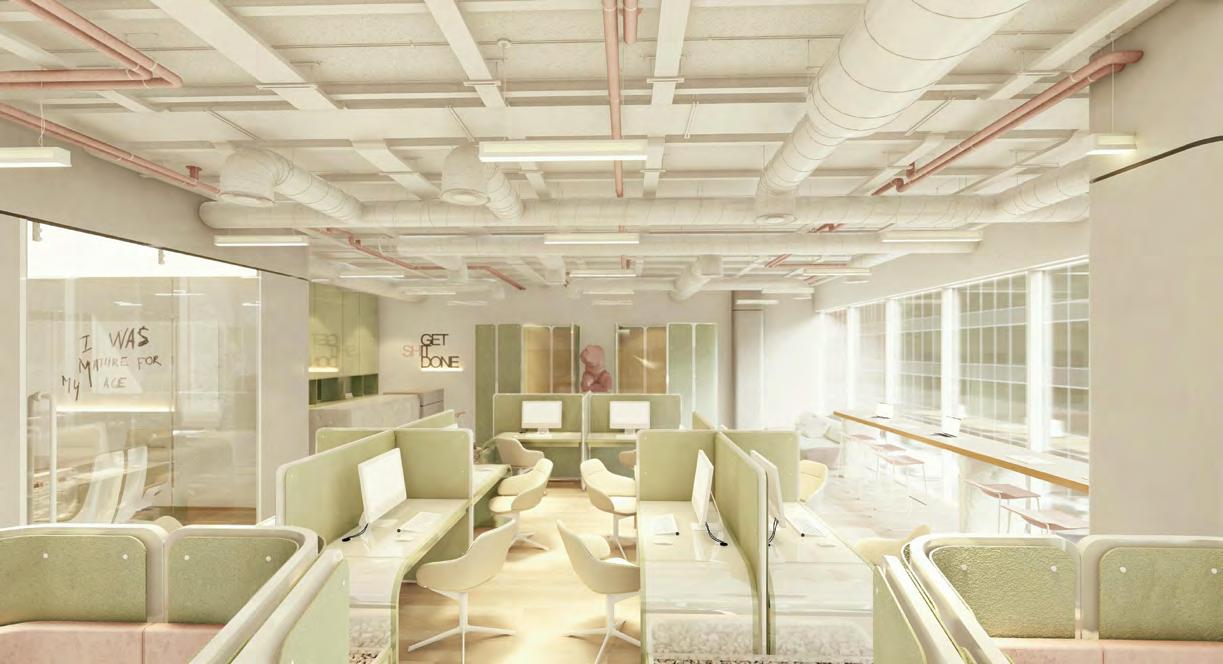
In the years since its launch, Maison Pyramide has worked on successful marcomm strategies for different clients, from small brands to multinational corporations. Mroue claims that these campaigns have had a strong impact on the bottom line of their respective businesses, adding that the formula for success in this regard is to find one’s niche and bring real value to that audience. One way to do this, Mroue adds, is “to work on a brand’s value proposition in a way that deeply resonates and builds loyalty.” This is something that Maison Pyramide has excelled at– it has already proved successful at guiding and nurturing regional talent towards creating their own lifestyle brand and product. Mroue now believes that the full 360-degree approach offered jointly by Maison Pyramide and Ego & East will give the choice of even more verticals to regional talent interested in launching their own brands. “Talents who share their true authenticity with the world through their platforms, via their content and the various projects they chose to work on, are always the ones who reap the most reward,” Mroue adds. “It may seem tempting at times to follow trends outside of what truly represents yourself or your personal brand, for the sake of growth or added exposure, but it’s not always the key.”
In the next 24 months, the five co-founders plan to onboard new partners that will help them to accelerate growth or bolster capabilities in certain key verticals. “We’re always working with a global reach in mind,” concludes Reem. “We have been developing side by side with the market.” And so, as these women promise to continue working on giving talent from the region a global audience, it seems to be well worth your while on Maison Pyramide’s future prospects- just watch this space.

Gadgets and doodads that you might’ve missed out on, sourced by a tech aficionado. by TAMARA CLARKE



Acer Swift Edge is the world’s lightest 16-inch OLED laptop weighing in at just only 1.17kg and measuring 12.95mm in height. The device sports an ultra-slim magnesium-aluminum chassis, making it both portable and durable. Designed to help you maximize productivity while meeting the demands of present-day hybrid work environments, the laptop is powered by AMD Ryzen PRO 6000 Series and AMD Ryzen 6000 Series processors, and it also incorporates the Microsoft Pluton security processor to help defend against increasingly sophisticated cyberattacks. The Acer Swift Edge also features a 4K OLED and essential ports such as HDMI 2.1, two USB 3.2 Gen 2 Type-C ports with fast charging capabilities, two USB Type-A ports, and an audio jack. Even better, it offers Wi-Fi 6E for high-speed wireless connections and easy file sharing.
The new Amazfit GTR 4 and GTS 4 are designed especially for sport and fitness enthusiasts. The watches are embedded with advanced sports modes and fitness features, such as personalized templates, performance data after any workout is completed, and so much more. In addition, Amazfit has partnered with Adidas Runtastic, which allows you to sync workout data for all kinds of activities. Plus, Amazfit offers enhanced health tracking and management that can accurately monitor heart rate, blood-oxygen saturation, and stress levels in only 45 seconds with a single touch,
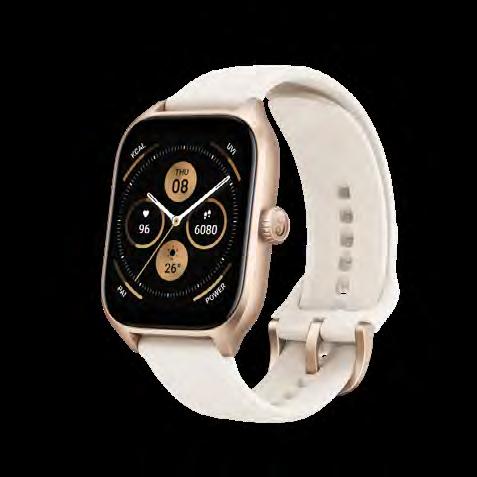

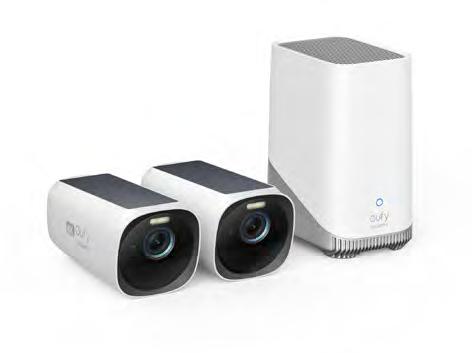
Managed by the new HomeBase 3 system, the eufyCam 3 is more than your average security camera. It leverages eufy Security's proprietary software, BionicMind, a self-learning artificial intelligence (AI) that will over time deliver 99% accuracy in recognizing different people, as well as detecting pets and objects. With BionicMind, every time someone passes through the camera's field-of-view, their face, body and movements are sent to HomeBase 3. The more information the new data hub receives, the more precise its analysis will become over time- but how does that help you? Well, BionicMind's facial recognition capabilities automatically capture and classify past video footage as family members, friends, or other frequent visitors, so you don’t have to. HomeBase 3, BionicMind, and the mobile app also work together to identify and instantly notify you of strangers or intruders who've been spotted near your home or office. At the end of the day, eufyCam 3 takes the guess work out of keeping your property secure, while also streamlining the process of identifying possible threats should the need ever arise.
due to the one-tap measuring function. The watches also have built-in Alexa Voice Assistant for online voice commands, music storage, as well as stand-alone playback for hands-free workouts. You can download an array of compatible third-party mini apps that further expand capabilities, and don’t worryall these features won’t cost you on the backend! And that’s because the Amazfit watches boast ultra-long battery, giving you an uninterrupted fitness experience for up to 15 days without charging, and up to 45 days on battery saver mode.
TAMARA CLARKE, a former software development professional, is the tech and lifestyle enthusiast behind The Global Gazette, one of the most active blogs in the Middle East. The Global Gazette has been welcomed and lauded by some of the most influential tech brands in the region. Clarke’s goal is to inform about technology and how it supports our lifestyles. Talk to her on Twitter @TAMARACLARKE theglobalgazette.com
From better goods to better wardrobe bests, every issue, we choose a few items that make the approved executive selection list. In this edition, we are training our focus on luxury timepieces for the discerning entrepreneur- horology enthusiasts, you’re welcome.
TO INFINITY“It all started with the vision of an explosion of stars taking place in the black darkness.” With this statement, Richard Mille Creative and Development Director Cécile Guenat underlines the thought process behind the new RM 07-01 Intergalactic collection, which blends the brand’s watchmaking expertise with an entirely new approach to gem setting. And the key to making all of this possible is thanks to the collection’s use of Richard Mille’s proprietary Carbon TPT material, a strong, aesthetic, yet ultra-light material that, quite simply, accentuates the beauty on any gem that’s set on it. Need proof? Consider then the four new pieces presented as part of this collection: Bright Night, Dark Night, Misty Night and Starry Night. Each of the pieces has its own appeal- the Dark Night, for instance, can be likened to a myriad of constellations with its glittering gold prongs, while the Starry Night lets its diamonds speak for itself. All of the pieces are powered by Richard Mille’s in-house CRMA2 Calibre, a skeletonised automatic movement, to optimize its winding system. Add to all of that a power reserve of up to 50 hours, and you can rest assured that you’ve got a real beauty on your wrist. richardmille.ae

Ashish and Pawan Ishwar, founders of bespoke tailoring house Knights & Lords, are the men behind For Humanity, a new luxury brand built with a mission to encourage acts of kindness. Featuring seven designs categorized under Love, Hope, Peace, Endure, Manifest, Pray, and Empower, this collection of watches aims to remind its wearers that the “time for humanity is now.” This mindset also explains the brand’s partnership with the UAE-based non-profit Al Jalila Foundation, with 15% of the sale of every watch donated towards its Ta’alouf program, which aims to equip parents and educators with the necessary knowledge and skills to better understand and empower people of determination. As for the watches themselves, they are expertly handcrafted, water-resistant, and powered by a selfwinding mechanical movement. Suited for men as well as women, each timepiece features a moon phase display, tourbillon, as well as hours, minutes, and seconds on dials in colors of silver, black, navy blue, and pink. forhumanity.ae


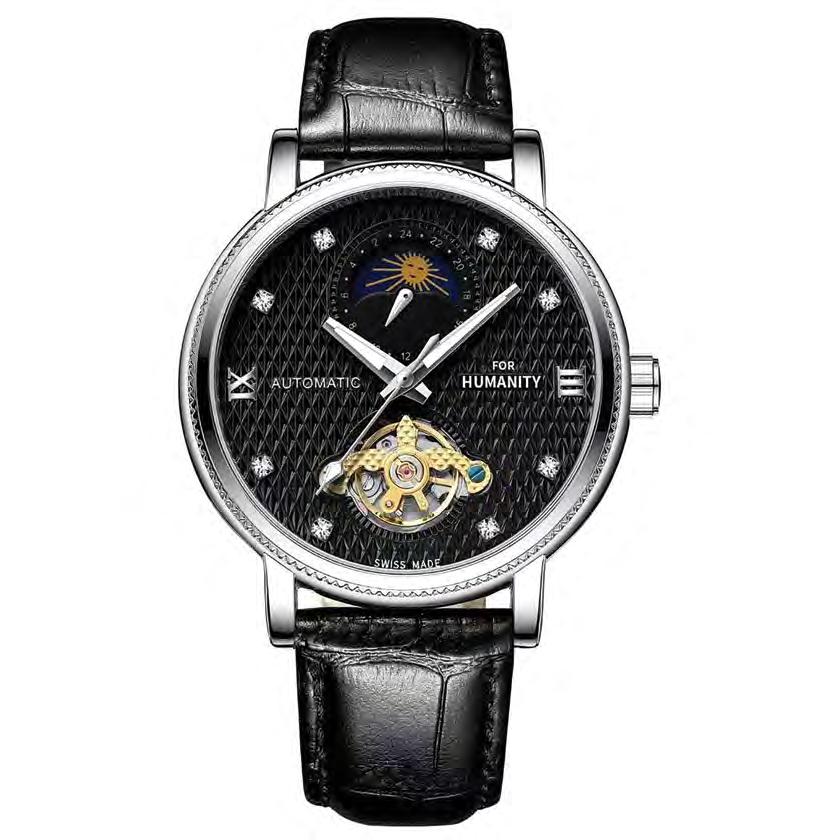
In 1952, the British North Greenland Expedition set out on a two-year scientific mission to study ice sheets in Greenland, and these pioneers of Arctic exploration were equipped with the Tudor Oyster Prince, which, at the time, was the brand’s first watch that was both waterproof and automatic. It is to mark the 70th anniversary of this daring adventure that Tudor has now unveiled its new Ranger model, a tool watch complete with the Manufacture Calibre MT5402, a 39mm case, and a clasp with a rapid adjustment system. Its arrow-shaped hands are true to Ranger’s vintage aesthetics, beige in color, and contrasted against the matte black dial, with hours markers painted in luminescent material. The new Tudor Ranger also features multiple options in terms of bracelets and
straps, which include an olive-green fabric with red and beige stripes, a classic satin-brushed steel bracelet with the brand’s new folding clasp, as well as a more modern strap in a combination of rubber and textured leather. With the Ranger’s combination of historic charm and state-of-the-art watchmaking technology, this one’s a must-have. (Side note: if you're in Qatar, it'll be well worth your while to check this timepiece out for yourself at Tudor's new shop-in-shop at Fifty One East in Doha's Lagoona Mall.) tudorwatch.com

If you’re a fan of luxe sports timepieces, this new edition of the Chopard Alpine Eagle is for you. Inspired by the brand’s St. Moritz model released in 1980, the Alpine Eagle has cultivated its own following since its debut in late 2019. And for its latest release, the Swiss luxury watchmaker offers a distinct new green dial into the lineup. Designed with a diameter of 41mm and a height of 9.7mm, the new Chopard Alpine Eagle Pine Green may be smaller in size, but the Maison goes big on the details. At the heart of the new model (and quite literally visible through a transparent sapphire caseback) sits the in-house Chopard 01.01-C self-winding movement, boasting a 60-hour power reserve. The dial, of course, is quite striking, with the new green hue inspired by the iris of a bird of prey, a nod to Chopard’s commitment to the preservation of the alpine environment and its biodiversity. Part of the proceeds from sales of these timepieces will be donated to the Alpine Eagle Foundation, which was co-founded by Chopard Co-President Karl Friedrich Scheufele, and whose programs are focused on reintroducing the whitetailed eagle into its natural habitat in the Lake Geneva region in Switzerland. chopard.com
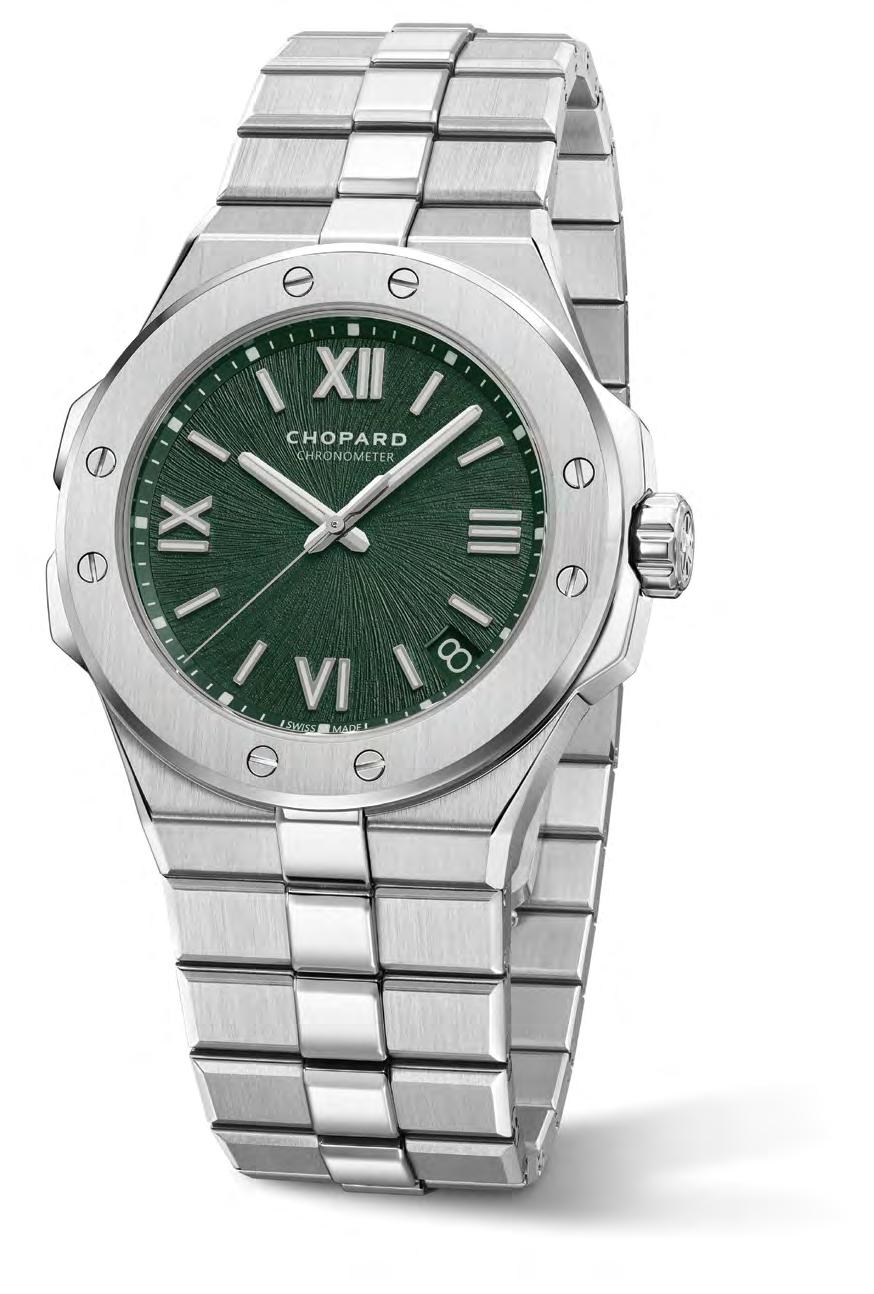
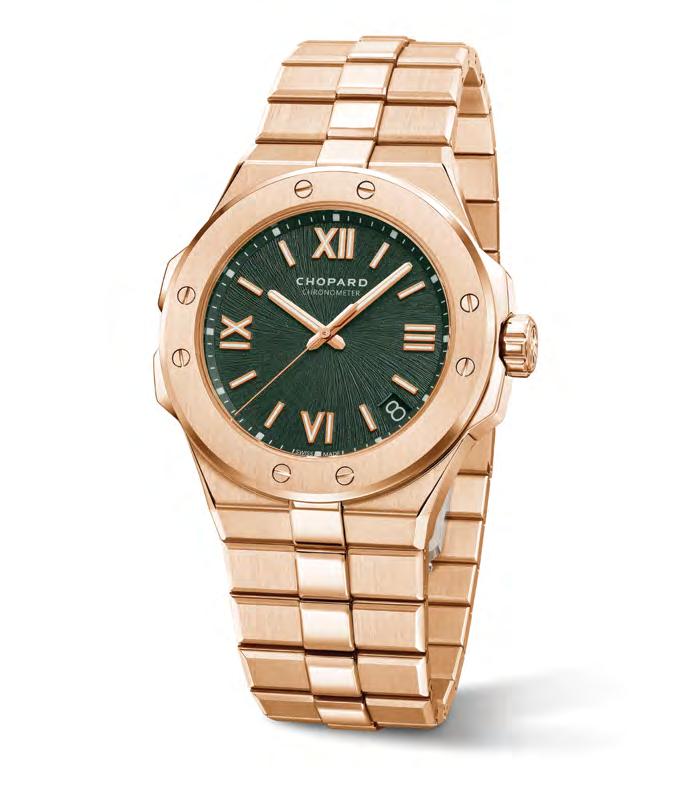
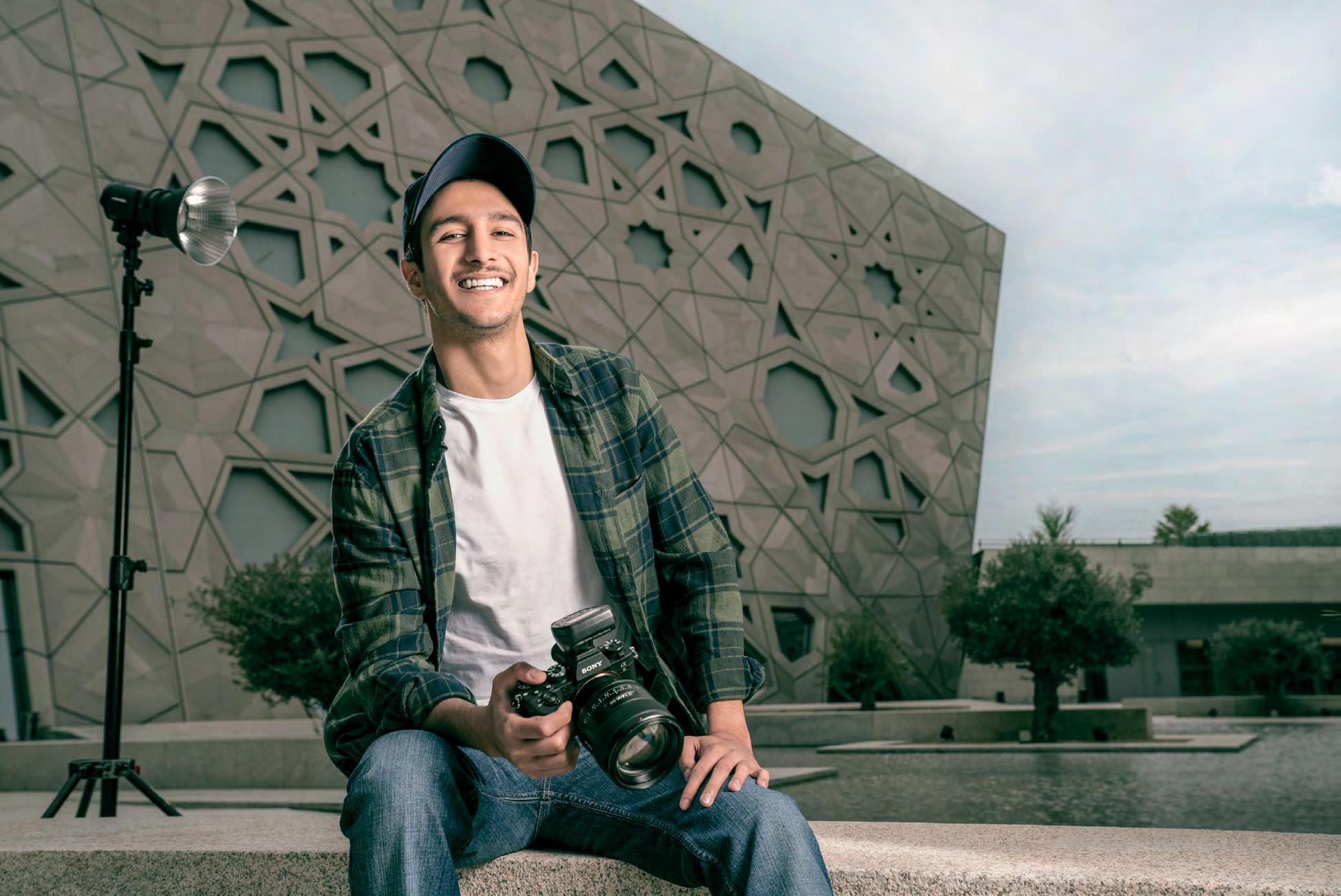
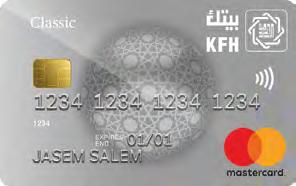



TAKING TIME AT THE BEGINNING OF YOUR ENTREPRENEURSHIP JOURNEY TO FULLY GRASP THE ROLE OF VARIED RELATIONSHIPS ACROSS YOUR BUSINESS PUTS YOU IN A GOOD PLACE, FROM THE START.
2022marks five years since we launched Dubai-based social media, public relations, and influencer marketing agency POP Communications. And while POP might have officially come into being in August 2017, planning the business framework and brand vision was something we started a couple of years prior. The two of us always envisioned working for ourselves, but we also wanted a partner for the journey- that’s how we came together to launch POP.
When we kicked off our entrepreneurial journey together, we were obviously excited, and we were looking forward to the adventures brought upon by forming and running a new business. As with any adventure in life, challenges will arise, but aiming to keep a positive state of mind will help to prosper through. If you are now thinking of taking the leap into entrepreneurship, here are some lessons we learned that can be applied to launch any business, regardless of the sector:
1/ Get an accountant onboard your company (and other key staff too, if you can!)


We’ve been there before- starting out, and doing everything yourself. Market ing, your business’s actual services, invoicing, recordkeeping, the list can go on.


However, this method is not sustain able, and you will reach a breaking point.

As such, if you are going to invest in one key hire, make it a person who is good with numbers, and has an understand ing of your business entity and location’s financial requirements. Even if you have an assistant that has exceptional recordkeeping skills, an understanding of various business expenses, exemptions, tax require ments, and more, that one person will be enough to save you from pulling your hair out.
Trust us– you’ll thank us later.
2/ Perfect your brand ethos (aka your elevator pitch)
An innate knowledge of what you do and the services your offer is important. It’s key to be able to articulately describe what you do, how you do it, and the value brought to clients.
For POP, our elevator pitch is as follows: “POP Communications is a social media, public relations, and influencer marketing agency. We make you ‘POP’ in a crowded market.” The first part covers our broad range of services, and the second part highlights what we do.
Not only is an elevator pitch helpful to explain your firm’s ethos, but it also opens the door for new businesses and connections that can then be further supported by a company background package.
A hot tip in this regard: invest your time in creating company credentials that clearly showcase your business services and added value that can always be amended as the business grows or evolves. Having this docu ment readily accessible on your website or on hand to send at any moment will be a gamechanger- you’ll no longer have to type out what your business is in an email.
3/ Learn what you do best, and then repeat- but, also, diversify.
At first, this can sound contradictory, but hear us out. When starting POP, we built a reputation for support ing beauty and other lifestyle brands with their marketing communications and brand awareness through bespoke storytelling and strong influencer relations.
This was an area of our business we were (and still are) very good at. However, we learned a strength can be both an achievement and a hindrance. It took time to understand how to utilize such a strength for business flourishment.
Having expertise in the beauty/lifestyle space naturally drove portfolio growth in that sector, but when looking to branch into other industries, we were presented with a challenge– a perceived lack of experience. As such, we also needed to diversify to align with the changing market’s needs.
That’s when we decided to utilize our strength as a stepping stone to expand geographies, showcasing diversity of reach, and, then, expertise. We were then able to connect beauty to wellness, health, and lifestyle, which then led to expansion across sectors such as healthcare, business, social enterprise, and more.
So, say your business creates bespoke children’s wear and accessories, and that it does it well. Stay with your strength, but do plan for a diversification strategy that makes sense for the business.
For instance, expanding into pet care accessories can perhaps be a natural business line progression. Further, if your firm has substantial data on buying behaviors of mothers, you can capitalize and expand upon that particular unique selling point.

That said, while diversification and the ability to adapt to market changes is a must, don’t lose sight of what you do best, and what probably inspired and drove the opening of your business.
You may be wondering why we’ve included this as a lesson learned- read on.
As a new business owner, time is a critical element, and how you spend it can have an impact on your business.
As far as relationships are concerned, whether with potential or current clients, industry colleagues, staff, or synergistic business contacts, personal relationships still play a big role in business flourishment and reputation.
During our first couple of years in business, business growth and results were a focus. We poured a lot of energy into client relationships.
Taking time at the beginning of your entrepreneurship journey to fully grasp the role of varied relationships across your business puts you in a good place, from the start.
Weekly office coffee time with staff members to connect on a personal level, an extra 10 minutes with a client, or understanding another business’ scope to refer work on will benefit you in the long run.
There will always be deadlines, or a need to get one more task done, or to send out the last shipment. This will never stop, and your business will go on, even if you get to the task later. But quality time with good people might not always be there tomorrow- that’s the lesson.
So, here are some key relationships to invest in, and how:
STAFF Invest time towards their growth, and towards appreciation of their work. Also, offer flexibility, which increases their support for you and your business. We implemented a “No Pressure Fridays” approach in January 2022 to increase flexibility, and to encourage staff to take ownership of their time.
PAST AND PROSPECTIVE CLIENTS Current clients usually lead to future clients. A good track record and personal experience go a long way.
INDUSTRY CONTACTS Always remember that partnerships and collaborations come from invested relationships.
5/ Schedule designated days (and stick to them)
This one is really important. Not only is efficiency and productivity enhanced, but having a schedule will foster a (good) work-life balance.
As a small business owner, you are your business, and, as a result, you are pulled in different directions and are intimately involved in it. This can still occur even after years in business and a team in place. Designating days for different segments of your business help.
For example, at POP, we aim to keep team catch-ups and in-office work to Mondays, new business meetings to Tuesdays/Wednesdays, and Fridays as days with no calls or meetings. Create a schedule that works for you and the efficient growth of your business.
Sticking to a schedule is also easier when each day is scheduled on your official company planner. If you see that Friday morning is allocated towards spending time with your kids or partner, or visiting a new supplier, you are less likely to cancel it when it is official.
Personally, we’ve found honoring our time and sticking to it helps. If you let clients, new customers, or suppliers dictate your schedule, you won’t get anything done. It’s ok to say no or offer an alternative. Understanding that this concept is okay, and that our time is valuable was a lesson that took some time.
Imichi Alhassan Alli are the co-founders of Dubai-based social media, public relations, and influencer marketing agency POP Communications. popcomms.ae

Young investors are committed to a sustainable post-pandemic redevelopment of the economy–and that means consistent investment in technology
A new generation of younger investors are getting in on the act. These Gen-Z and millennials are digital natives, caring about climate change, advocating for fair practices, and seeking impact investments that align with their values, and offer more than a short-term financial return. To that end, the results of the 2022 Investor Trends report, based on information submitted by investors who were a part of the Angel Rising Investor Education Symposium that took place in March this year, were notable in how they reflected these trends in this region.
The investment world has undergone rapid change since the onset of the COVID-19 crisis. Data shows that global venture funding reached a record US$621 billion in 2021- more than double the 2020 mark of $294 billion. It is also swinging away from the historically dominant US, with Asia now the top region for global deals in 2021, with 36% of deal shares, surpassing the US deal count for the first time. Current investment trends reveal a particular interest in “building back better” using innovative technologies to solve issues in the diverse sectors impacted by the pandemic, and also to find solutions to climate change.
Hosted by VentureSouq and startAD, the global startup accelerator powered by Tamkeen and anchored at NYU Abu Dhabi, the symposium this year focused on food security, and concluded the Conscious Investor Fellowship, creating opportunities for investing in startups and leveraging technology for good. It was perhaps no surprise, then, that the average investor age of participants was 37 compared with the US average of 57.6. Within this group, the 20-39 age group made 62% of investments, with an average ticket size of $46,691 (comfortably above the US average of $35,255), compared with 36% of investments made by people aged 40-59 who invested $51,210 on average.
This is encouraging news for the future of impact investing, as their investment choices reveal. Their biggest investments in the Middle East and North Africa (MENA) were in agtech, foodtech, and e-commerce startups, at 10% each. The solutions that these investments can help provide are vital since half of the MENA’s food is imported, rising to 90% in the GCC, and that food production generates around 37% of man-made greenhouse gas emissions. The region must capitalize on investments in agtech startups to ensure food security through sustainable development of its
agricultural sector to feed a rapidly growing population. The FoodTech Challenge is one such competition that is funneling global creativity and investments, with a focus on finding the next wave of technologies that are on the cusp of transforming food and traditional agriculture practices, efficiently and sustainably for the UAE market.
Looking ahead, there is clearly room for targeted investment in other promising sectors. Environmental tech attracted the highest average investments overall at $58,018, followed by manufacturing ($56,976) and supply chain/fast-moving
consumer goods ($56,632), cleantech ($56,383), while education lagged considerably behind at $44,500. Given the need for new solutions in this space, there would seem to be room for increased activity in edtech innovations.
Geographically speaking, the 40-59 group were predictable in their top investment “safe” spots of Australia ($87,500) followed by Europe ($75,000) and North America ($62,500). The 20-39 group might have made safe choices for their number two and three spots (Australia at $65,000 and Europe at $61,538), but their top investment was the upcoming market of Central and South America ($75,000).
On the topic of gender parity, with 25% of investments in the MENA and Europe made by women this year, this was above the US average of 22% for female investors. These women also invested more per ticket than their male counter parts, with an average of $51,316 compared with $45,940 for men in the 20-39 demographic, rising to $63,636 (vs $48,529.41 for male) in the 40-59 range. This is encouraging, seeing as much needs to be done to improve the funding to female-run businesses. In 2020, female-led startups received just 2% of global venture capital (VC) funds,
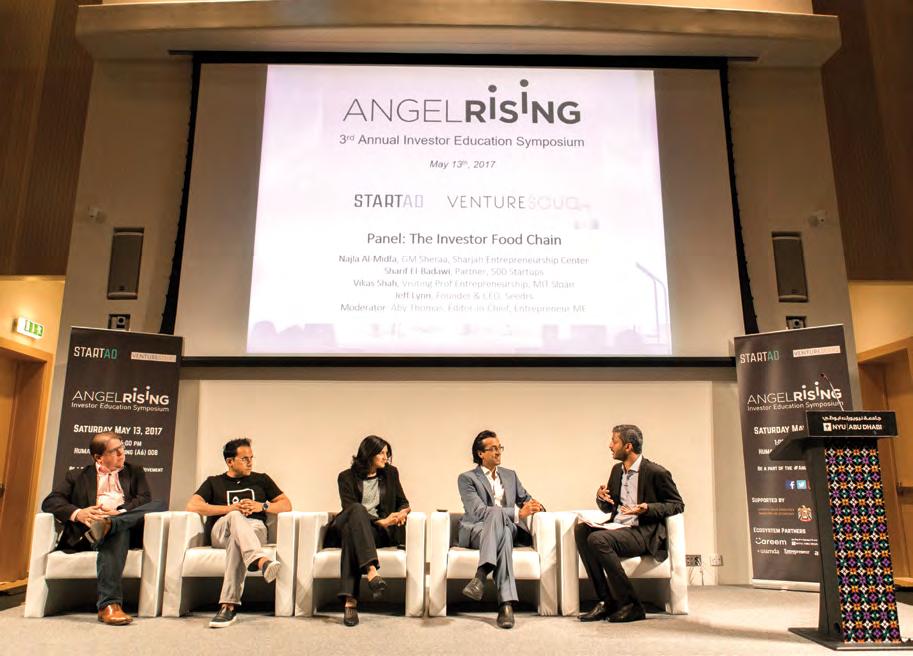
while startups with male and female cofounders still only received 9%. Given how research shows that 51% of women consider the founders’ gender to be highly impor tant, compared with 6% of their male counterparts, increasing the number of female participation is crucial to encouraging gender-bal anced investment.
What we’ve talked about often at startAD is the opportunity for investors to use the UAE as a base to serve the vast and diverse market on our doorstep. The global consumer class is set to reach 5.2 billion people by 2030, out of which over three billion of them will be in India, China, and Africa, aka the ICA region. Given that the MENA is part of this “ICA Corridor,” there is a golden opportunity to serve this global entrepreneurial economic landscape. All this matters because people need to be fed, climate change must be tackled, and there is a huge economic prize for the innovators, and a growing demand from consumers for change. A new Mubadalabacked ESG report found 79% of global respondents place sustainable investing as a high priority, rising to 86% in the UAE. Our new generation of investors are thus well-placed to capitalize on the exciting opportunities that lie ahead.
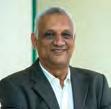
ON THE TOPIC OF GENDER PARITY, WITH 25% OF INVESTMENTS IN THE MENA AND EUROPE MADE BY WOMEN THIS YEAR, THIS WAS ABOVE THE US AVERAGE OF 22% FOR FEMALE INVESTORS.
Raising capital for a startup in times of economic expansion and prosperity is tricky enough, and in periods of economic downturn, it’s even harder. An investor’s appetite for investment and risk lowers considerably as they adjust their priorities in such circumstances, and they are also more careful in ensuring their investments provide a good return on investment (RoI).
Now, every company is unique, and each will face different challenges, so the impending recession won’t affect everyone in the same way. However, common questions arise from entrepreneurs in this situation: how can I secure funds in difficult times?
How do I deal with the prospect of lower valuations? What is the best approach when my clients become cautious in their buying decisions? Are there any opportunities for growth?
For startups, the ability to recalibrate in difficult circumstances is critical. While it may seem somewhat counterintuitive to move forward in an economic downturn, here are some of the ways that this can be achieved. After all, economic downturns are an opportunity for resilient startups to really shine, and separate themselves from the crowd. Here’s how:
1/ Redefine what success means Founders need to adopt a different approach when navigating an economic downturn. While success for your startup may have once been equated to becoming a unicorn, it’s perhaps time to redefine what exactly success is.
Looking back to previous downturns and what happened to tech companies listed on NASDAQ and the S&P500 paints an interesting picture. Stocks went from bullish markets and sky-high share prices right down to fair market value or bear markets as they are sometimes described. Now, it’s not necessarily a bad thing when markets go bearish, as it provides the opportunity to reevaluate what the real fair market value of your shares is, and it also gives you a chance to correct and rethink the process. Essentially, it allows us to figure out what is the real value of what we are buying.
Such circumstances also provide an opportunity for founders to ask, “Am I raising at the right value, or is my valuation inflated and full of hot air?” After all, company valuations should only be a side factor- it’s more important to be open to change and resilient as you advance forward. Focus on establishing a sustainable company that is unit economic-positive, prioritize your customer’s wants and needs, while also maximizing opportunities to scale up and grow. Of course, the key to successfully spinning all these plates in your startup’s journey is in having the right team, board, and partners by your side. Their contributions will help you balance these many challenges, and stay on course to follow your guiding star.
2/ Keep a closer eye on your financials Ensuring you have robust control of your cash burn is vital during a recession, as, inevitably, client growth slows, and fundraising becomes more difficult. Controlling costs and examining the level of RoI on all business activities, with a view to extending runway, can help startups to navigate this turbulence.
As an entrepreneur, you may also face the prospect of raising capital at a lower valuation. While this is not an ideal situation, investors will be more impressed by a sustainable company that
delivers added value to customers over one with an inflated company valuation for no good reason. Perform due diligence on investors, and have the mindset that investors should be pitching to you for your big idea, and not the other way around. This will ensure you attract the right investor who is aligned with your mission and vision for the business.
If you have two or more years of runway, then it’s even more important to play hard and not be defensive. If your business has a healthy balance sheet, then cutting spend may compromise the momentum of your startup. Executing and adapting your strategy in line with customer behavior can provide competitive edge. Competitors may be extremely cautious during the economic downturn, so being aggressive in terms of raising capital could offer the opportunity to boost your presence as well as increase market share.
3/ Prioritize your clients The customer is king. Providing customers with what they want and when they want it is the primary way to retain key clients, as well as to sow the seeds for future client growth. Growth in the client base will inevitably slow during a downturn, so it’s vital to be laser-focused on the finer details, and listen intently to your customers.
Pivoting your business toward new markets and products and/or services is
another way to address the impact of an economic downturn. Consult with new, existing, and potential clients via focus groups, pop-up surveys, and beta testing, and then focus on optimizing product-market fit. Plugging this research into your product roadmap is a great tactic both in the short term as well as in realizing your long-term product vision.
4/ Unlock M&A potential It’s generally accepted that mergers and acquisitions (M&A) and other deal activities are likely to nosedive during a recession. However, focusing on an offense-driven M&A can lay the foundation for a startup’s success as the economy recovers. Being acquired by a complementary business, or acquiring one, is a great way for a startup to increase the scale and (potentially) scope of the business, in addition to providing the opportunity for a subsequent divestiture or spinoff.
Declining valuations and failing startups will provide resilient entrepreneurs with the opportunity to integrate target acquisitions, with potentially outstanding teams and valuable client networks up for grabs. For startups that are reasonably strong financially and strategically, taking advantage of the downturn is a great way to enhance your portfolio, and start unlocking the potential of M&A.
5
/ Grow efficiently Critical to achieving success in today’s business environment is to constantly look at ways you can do things better. Taking time to analyze and evaluate your core business processes will provide the opportunity to boost efficiency and effectiveness.
In the fast-paced startup world, this can often be overlooked or pushed to the back of the priority list, but in the long term, it can provide you with improved business agility and competitive edge. Look at improving your recruitment processes, streamline/optimize the client pipeline, and promote best practice approaches across the team.

6/ Attract and retain key talent
Economic downturns inevitably lead to hitting the brakes on recruitment and compensation, but actually it may be the best time ever to capitalize on these areas. The good news is that as many organizations let go of talented staff and batten down the hatches on their talent pipeline, the playing field is left open for you. Now is the time to tap into this wider pool of talent.

Investing and engaging with existing employees who offer value to the organization is also critical. Creating a positive employee culture may by trickier in times of remote working, but these efforts can be extremely valuable in leaner times. If you don’t have the cash on hand for any recruitment activities, employee incentives can provide a great solution, such as offering more equity in relation to salary.
Talent acquisition also extends to your senior
GROWTH IN THE CLIENT BASE WILL INEVITABLY SLOW DURING A DOWNTURN, SO IT’S VITAL TO BE LASER-FOCUSED ON THE FINER DETAILS, AND
leadership team. The number of outstanding C-level executives available due to redundancies or seeking new challenges is also an amazing resource. It’s important to review your executive teams’ skills, capabilities, and performance, while also being on the lookout for talented leaders who will make a positive impact on your business.
To summarize, here what’s you need to remember as you and your startup move ahead in our current circumstances: As Winston Churchill famously said: “Never waste a good crisis.” Use this crisis to really look at your business, and then, enhance your playbook. Investors will view this as an extremely valuable asset.
Research has found that companies make more dramatic gains or losses during downturns than




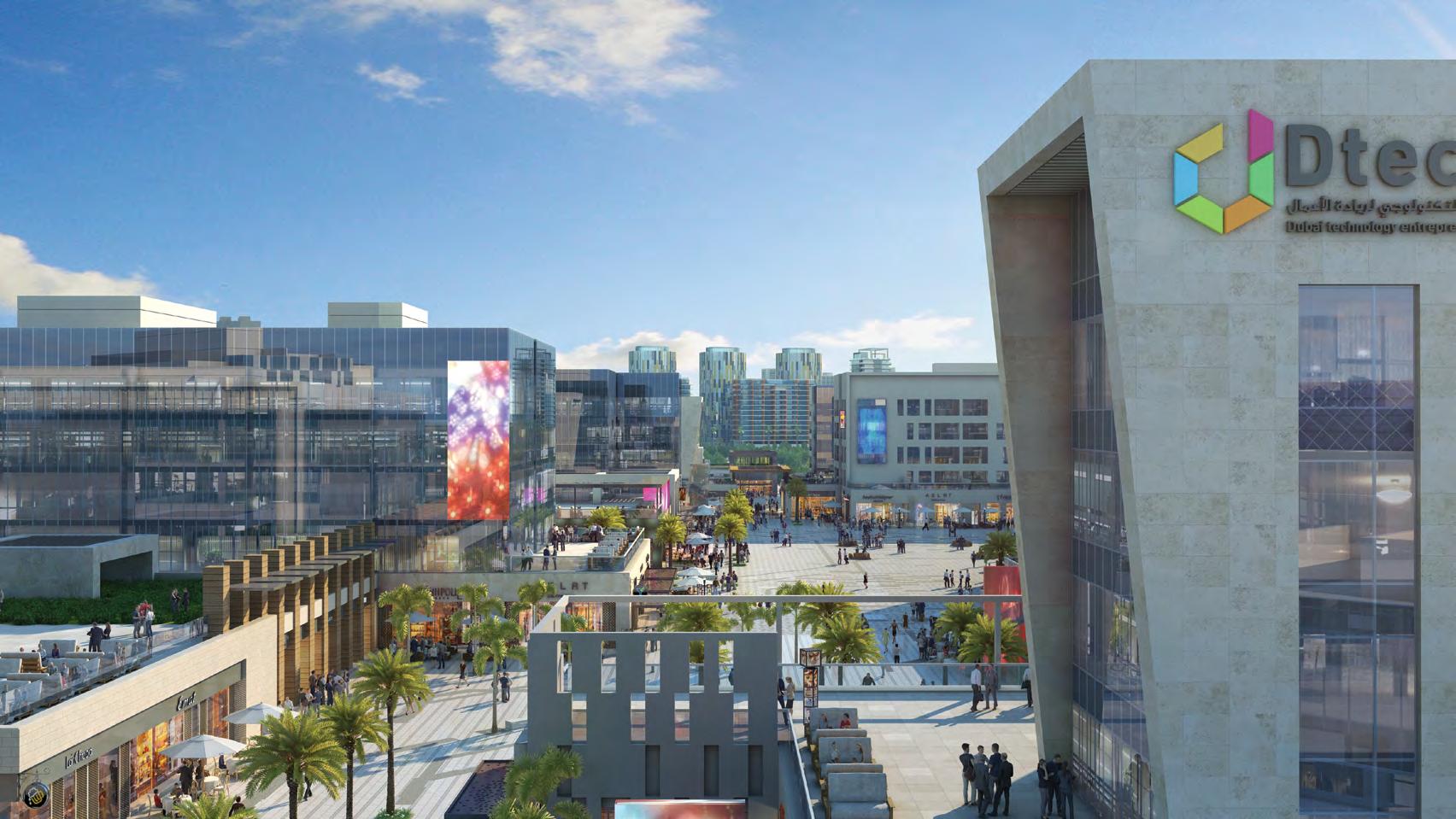
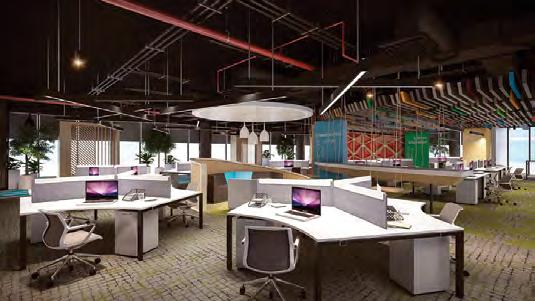
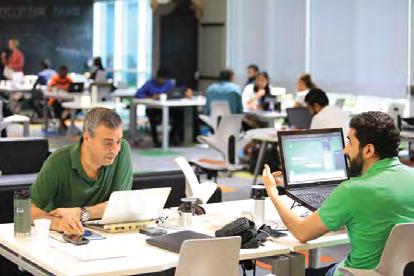
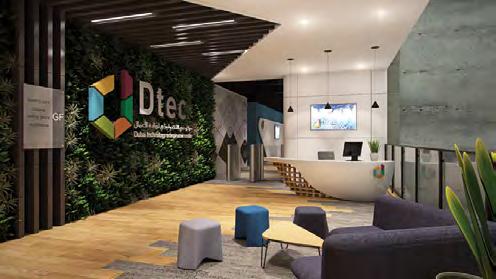
Aankush Bhatia has his 25+ years of experience in the F&B industry working for him as he aims to reimagine the on-demand food delivery market in Oman with KitchenomiKs
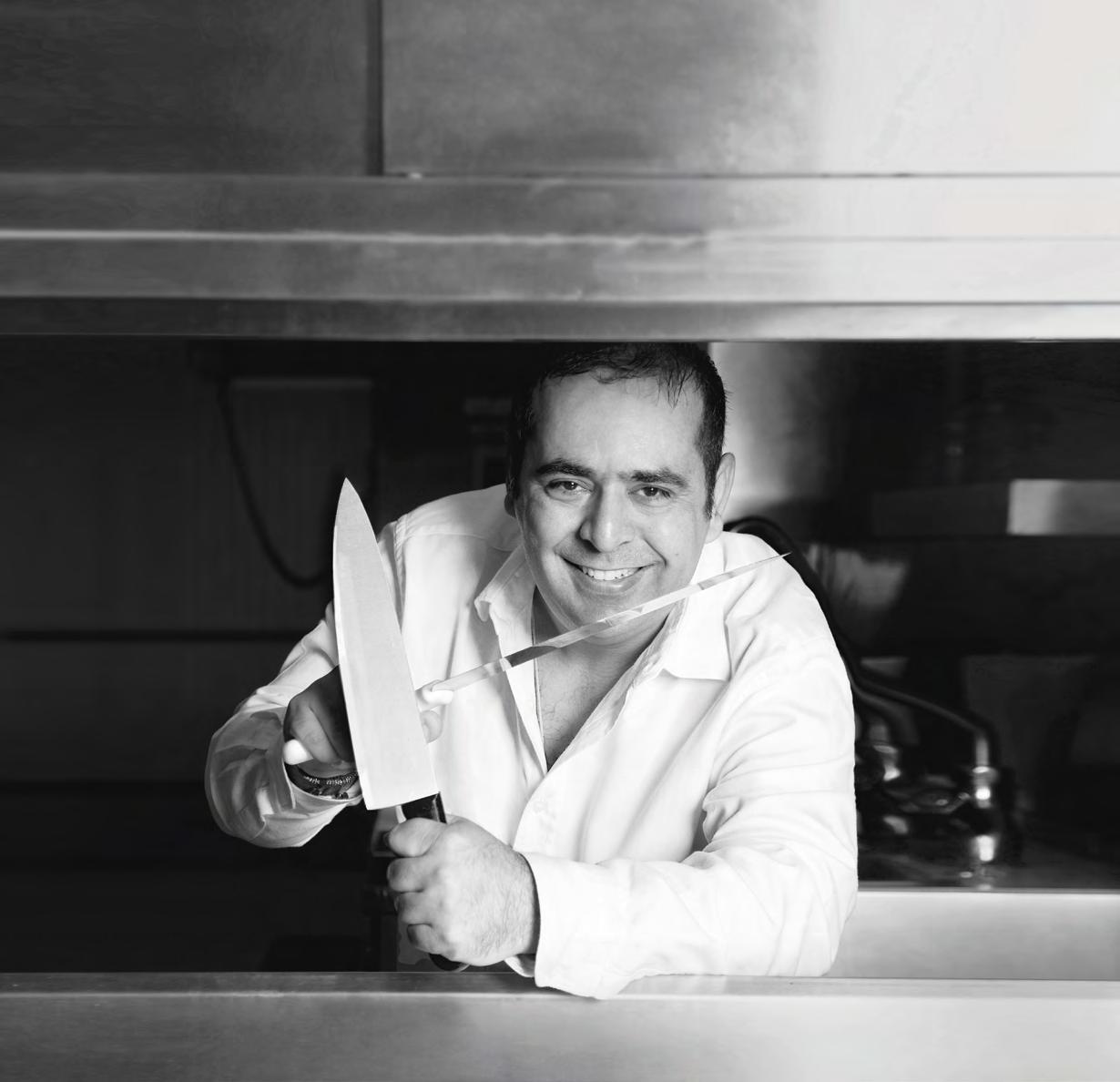 by AALIA MEHREEN AHMED
by AALIA MEHREEN AHMED
↑ Once an F&B brand is onboarded, KitchenomiKs takes care of all its operational needs- from the sourcing of ingredients and cooking the food, to its packaging and safe delivery.
Anyone who’s been watching the Middle East’s F&B sector over the past few years can testify to the boom seen in its cloud kitchens domain, especially through the course of the COVID-19 pandemic. And as someone who has launched, operated, and managed over 200 restaurants across India and Oman over the past 25 years, jumping on the cloud kitchen bandwagon came with a renowned sense of purpose for Aankush Bhatia. Indeed, that’s what led to the launch of KitchenomiKs, his Oman-based foodtech and cloud kitchen enterprise. “KitchenomiKs was born out of the desire to reimagine the restaurant business- I’d like to call this ‘Restaurant V2.0,’ basically meaning innovation with a purpose with ‘V1.0’ being the traditional brick-and-mortar dine-in restaurants,” Bhatia explains. “I’ve been a restaurateur all my life, and the challenge has always been how to scale the business into multi-units in a short time with a low investment cost. Post-pandemic, especially, the restaurant industry has been in a flux- razor-thin margins, limited capacity, and high capital investment to scale and grow are just a few of the challenges we, the restaurant owners, faced. So, with KitchenomiKs, my vision is to create the largest and fastest growing multi-brand restaurant chain without any dining space in the region.”
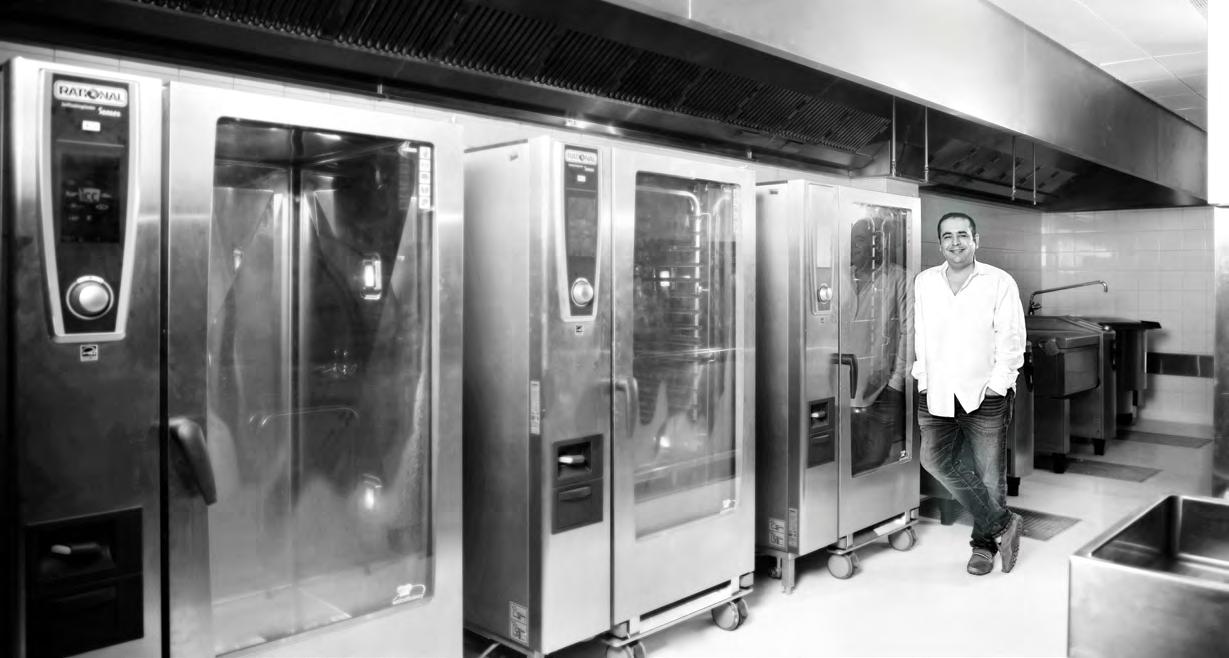
} Launched in March 2022, KitchenomiKs offers restaurants and food brands the opportunity to scale (without any capital invest ments) through turnkey delivery solutions that help with the preparation, distribution, and expansion of food concepts. “We are creating a hybrid foodtech model offering its own virtual brands through our delivery hubs, providing a kitchen-asa-service platform to well-known brands, opening food courts and grab-and-go stores, as well as giving an opportunity to local homegrown foodpreneurs to launch and scale their brands,” Bhatia says. “Kitchenomiks will also enable restaurants -from large international franchises to local businesses- to reach the growing food delivery market with a scalable solution that is backed with innovative technology.” Apart from typical cloud kitchen offerings, services that incorporate food delivery models such as takeaway, drive-thru, grab-and-go, as well as the food court approach will serve as KitchenomiKs’ additional revenue streams, Bhatia adds. According to him, putting forth such a variety of services is key to not just transforming the on-demand food economy in Oman, but the quality of customer experiences too.
} “We understand that taste buds are home-bred yet acquired, and so we as a community believe that there is something special each food brand brings to society,” Bhatia says. “We are thus complementing the ecosystem in the following ways: by introducing a low-cost, highly scalable business model that
can go to market within 15 days, offering a wide variety of food verticals with a reper toire of culinary delights from global cuisine to delicious sweets and baked goodies, and optimizing operations and curating customer choices through a tech-enabled ecosystem.” It’s good to note here that Bhatia is basing his operation out of a landscape that’s ripe with opportunityas per a February 2022 study by Statista, the F&B sector in Oman is expected to be worth US$1.8 billion by 2025. And with the country’s cloud kitchen sector still mildly nascent, Bhatia believes it is the right time to introduce KitchenomiKs. Already, the foodtech startup has part nered with Oman Convention and Exhibition Centre, a Muscat-based meetings and conferences venue, to operate state-of-the-art kitchen spaces spread over 3,000 sq.m.
“This forms part of the strategic in-country value plan designed to contribute to the local economy and propel Oman to greater heights,” Bhatia reveals. “I believe Oman provides a massive opportunity in terms of the food delivery business, with a year-on-year growth of around 35%. Therefore, at KitchenomiKs, we are using technological innovation to provide the platform entrepreneurs and businesses need to deliver their product, services, and experiences locally and at scale.” But even as Bhatia stresses upon the importance of leveraging modern technology to better cater to customer preferences, he recalls how it was a value that he believed in way before foodtech became mainstream. “As an industry, hospitality has always been the pioneer in
everything associated with the customer experience, and understanding customer tastes and choices,” he says. “Hospitality professionals learn to address customer needs on the go, and today, with technology, we all are simply better equipped to do so. My experiences over the last 25 years have helped me understand the nuances of customization and personal ization. Hence, transforma tion is key!”
} As cloud kitchens continue to gain prominence, however, the return of in-person dining cannot be overlooked. The return to normalcy in a post-pandemic world has, after all, enabled brick-andmortar restaurants to be up and running again. But Bhatia doesn’t appear to be too fazed by this occurrence. “Kitch enomiKs is not here to compete with the regular restaurant business, but complement them by partnering with them and becoming their exclusive delivery partners by way of helping them create food that is deliverable,” he says. “We will help the restaurant owners to scale with no capital investment required, help them leverage their brand equity, and unlock exponential sales potential.” But Bhatia’s also quick to point out that the future of the F&B industry as we know it has changed for certain. “Today consumers want taste, speed, and quality at an affordable price, and that’s what cloud kitchens provide along with their delivery partners,” he adds. “I’m not saying dining out will totally die; restaurants do provide an experience that we all enjoy and will continue to. But
cloud kitchen as a business model -that seemed marginal before the coronavirus pandemic- now looks like the future of restaurants.”
} So what’s his advice to budding entrepreneurs in this changed F&B ecosystem? “I would like to say don’t shy away from dreaming big and bold; that’s how Kitch enomiKs was also born!” he declares. “But some of the key considerations to keep in mind include: understanding the unique local culture, tastes, and preferences; learning how to build strong partnerships and collabora tions; and finally, focusing on unit economics to make the business model profitable.” As for Bhatia’s own operation, he has already raised a pre-seed round of $1.7 million from local individual investors to kickstart operations, and he is already in talks with potential investors for another funding round. “This round will help us in supporting our opera tional growth plan in Oman and expansion into the identified regional markets,” he explains. “The investor sentiment based on our initial traction has been tremendous as we provide an opportunity to scale.” All these plans, of course, are targeted towards the startup’s next phase of growth. ”KitchenomiKs has an ambitious plan in Oman, and by the beginning of 2023, we shall be adding 20 kitchen delivery hubs, and a total of 50 by the end of next year, making us the largest player in Oman,” Bhatia says. “As we get to Q2 of 2023, we will proceed with our growth and expansion plans in the rest of the GCC. The aim is to spread the delight of food delivery across the region!”
Afather’s love is like no other- and that can serve as an explanation of the drive that fueled Mohammad Hammoud along his entrepreneurial journey. When his son was suddenly diagnosed with a serious chronic
condition in 2015, it led to a turbulent journey that left a lasting mark on the whole family. As an associate computer science professor at Carnegie Mellon University in Qatar, Hammoud pondered whether the research and work he did could be leveraged to help others going through similar experiences and help navigate the
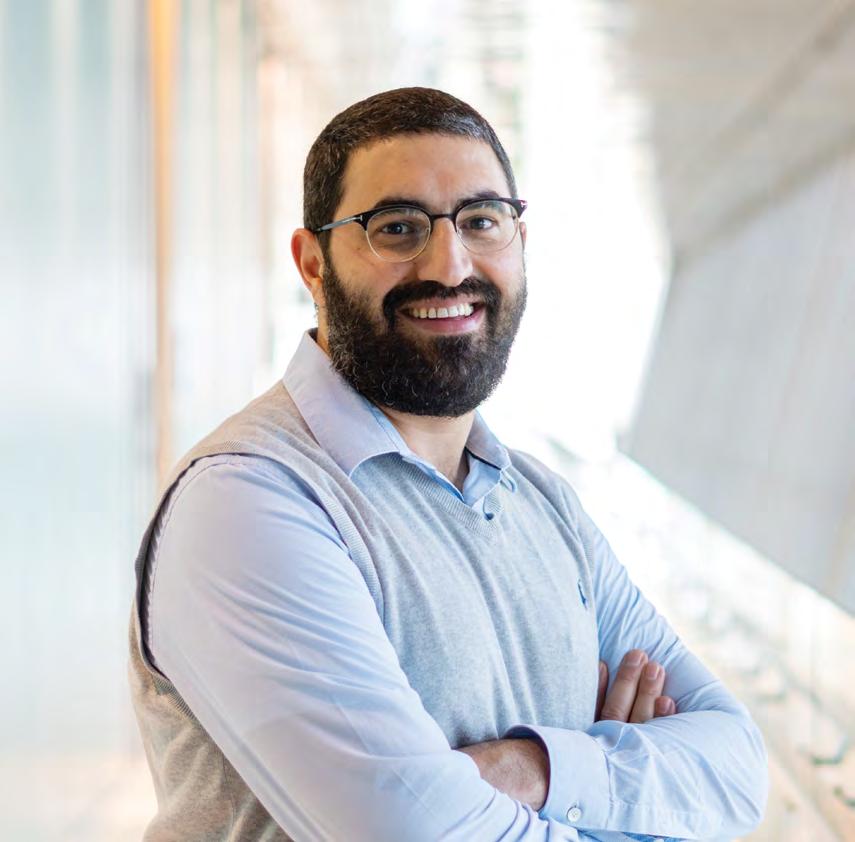
complexities of their cases as well as the healthcare systems they were a part of. But Hammoud’s entrepreneurial spark was truly ignited after he found out that his son was being bullied by other kids owing to his illness. “Out of frustration, my son drew Avey, a superhero that he wished and hoped could cure him,” Hammoud says. “I felt
his frustration deeply, and the match was lit once and for all. Since that day, it has been my mission to leverage my expertise in computer science to make the wishes and hopes of not only my son, but whomever Avey can reach come true for a better health journey.”
This is how Hammoud, in 2017, came to launch Avey, a self-diagnostic system that makes use of machine learning and artificial intelligence (AI) algorithms and techniques in its offering. As a holistic AI healthcare solution, the startup aims to offers any patient around the world with an instant, accurate, and fast health assessment by simply asking a couple of questions through an interactive session. The platform then recommends and ranks doctors for the patient based on their individual case, and the dynamic profiles of the doctors on its system also accumulates over time, following which, the platform is able to refer selected doctors to the patient, with whom they can interact either in-person or virtually. Having Avey built as a self-diagnostic system was something Hammoud was especially keen on, given that he knew -from firsthand experiencethat people often have difficulty understanding and managing their health cases due to a lack of access to quality healthcare and safe and accurate information. Incubated at the Qatar Science and Technology Park, Hammoud and his team spent around three and a half years developing in stealth mode to research, design, and develop Avey. “This is because creating an AI algorithm that
mimics clinical reasoning and diagnoses patients accurately is an extremely challenging problem that has already eluded many giants in the technology industry,” Hammoud says. And while Hammoud and his team faced plenty of issues of their own while attempting to create their solution, they were able to soft-launch Avey’s AI-based self-diagnos tic algorithm (which the team calls its “check” feature) as an app available on Google Play and App Store last year. Following that, they released other components of Avey in mid-2022, which include its “connect” feature to match and connect patients with suitable doctors, its “commune” feature that offers users with a social hub to exchange ideas and experiences on health and lifestyles, as well as its “claim” feature that processes patients’ insurance claims and automating claim processing using AI. At present, Hammoud and his team are getting set to launch Avey’s “cure” feature, which would allow doctors to prescribe medicines to patients digitally, and the latter can get them delivered to their homes as well.
By putting together such features all in one app, Hammoud’s vision is to offer users with a “tailored health journey” with Avey. Its self-diagnostic algorithm covers all major body systems with over 450 diseases, and Hammoud points out that Avey has recently recorded a world-leading diagnostic accuracy of 91% through a comprehensive scientific study (available online on health science manuscript publisher medRxiv) that is
currently under review by the peer-reviewed medical journal British Medical Journal Open. This should explain why the healthcare ecosystem is taking notice of it- at the time of writing this piece, more than 20 hospitals and clinics, 300 doctors, and 1,000 medical services are available on the Avey platform, and it has also inked partnerships with 63 healthcare providers in Qatar. In addition, Hammoud says that the app has also exceeded a million downloads from over 175 countries, along with approximately 150,000 monthly active users. In March of this year, it beat over 130 startups to be recognized both as the best solution and the public favorite at the InsurHack MENA 2022 competition, a hackathon organized by Qatar Insurance Group. Following that, in October, it also won the 2022 Private Enterprise Tech Innovator
Competition organized by Big Four firm KPMG in Qatar, and as a result, Avey is now set to compete in the KPMG Global Tech Innovator Web Summit 2022 that will happen in November in Lisbon, Portugal.
But such wins shouldn’t be taken to mean that Avey hasn’t faced its own fair share of hurdles as a startup. Hammoud says, “We have faced them wholeheartedly, and without complaints- we welcome challenges.”
According to the entrepre neur, the startup ecosystem in Qatar is evolving, but it is still far from being a mature one- for instance, he points out that though there is commendable support for pre-seed and seed financing rounds, higher rounds are almost non-existent. “Qatar still lacks a true venture capital (VC) market that can support innovative startups to scale and succeed
throughout their lifecycles,” Hammoud says. In Avey’s case, the startup has been able to raise US$4.71 million in pre-seed and seed rounds from angel investors, and it is currently fundraising for its Series A round, with Hammoud and his team reaching out to VC firms in the US and Europe for the same, many of whom, he says, have “expressed a huge interest” in the enterprise.
“We believe that the healthtech ecosystem in Qatar and the MENA region is on the precipice of a truly exciting renaissance,” Hammoud adds. “We have observed several startups that present ambitious solutions with great potential.”
↓ Avey won the KPMG Private Enterprise Tech Innovator Competition 2022 in Qatar. As a result, the startup will also compete in the KPMG Global Tech Innovator Web Summit 2022 in Lisbon, Portugal, in November of this year.

IT HAS BEEN MY MISSION TO LEVERAGE MY EXPERTISE IN COMPUTER SCIENCE TO MAKE THE WISHES AND HOPES OF NOT ONLY MY SON, BUT WHOMEVER AVEY CAN REACH COME TRUE FOR A BETTER HEALTH JOURNEY.
From an operational point of view, Hammoud says that while the average user in Qatar is keen to adopt new tech such as Avey’s app, he and his team have been able to witness firsthand that many businesses still either struggle or are indifferent when it comes to adopting technology. “For example, in more advanced economies, businesses compete in fast-paced environments, where the law of the jungle is to be quick or be dead, and innovation is the only way to stay ahead of the competition,” Hammoud says. “Business in Qatar, for the most part, is business as usual, and so, that affords them time for a deluge of bureaucracy that drowns innovation.” In addition, businesses in the country are more accustomed to importing true-and-tried technologies, as opposed to adopting emerging local options. “At a national level, this means that the private sector, as a late adopter of technology, will always be technologically behind [compared to] the rest of the world,” Hammoud says. A change in culture is needed, Hammoud says, and this can be realized only if a company or two take the plunge and lead the pack in disrupting this landscape- and that’s the strategy he’s making use of at Avey. “We have recently begun partnerships with visionary companies here in Qatar, and we are excited to announce these partnerships in the coming months,” he adds.
Hammoud is thus clearly hard at work with the plans he has for his startup, and top of the list is growth. He reveals that he and his team are aiming to expand Avey’s operations in more countries and regions, and they are hoping to work with more healthcare providers, insurance companies, technology companies, and governments in the MENA region and North America. But what’s even more exciting to see is Hammoud’s vision for Avey’s future- the founder and CEO notes how the platform currently “reasons” through its AI self-diagnostic algorithm, but that “in the upcoming years, Avey will ‘listen,’ ‘speak,’ and ‘feel.’ This will transform the experience of people with Avey, and transition it from a text-based platform to one that’s conversa tion-based, rich in emotions and empathy. People will genuinely feel that they are talking to a human being rather than an algorithm, a human being who is extremely caring and exceptionally accurate in diagnosis and prognosis.”
↑ Mohammad Hammoud’s entrepreneurial spark was ignited after he found out that his son was being bullied by other kids owing to his illness. Out of frustration, his son drew Avey, a superhero that he wished and hoped could cure him.

At the end of the day, the goal, says Hammoud, is for a patient to say, “Hey Avey, I am not feeling well,” and Avey will respond with, “Oh, I’m sorry to hear that. Can you tell me what’s wrong?” Avey will continue having a conversation with the user, giving them a sense of care and comfort, and once the possible diagnosis is presented, it will continue to support the user by giving them information and advice on their case, connecting them with the right doctors, and delivering their medicine as fast as possible. “For Avey, we understand the gravity of our commitments, and as such, customer centrality is our North Star,” he says. “We do not fear the dark or getting lost, as long as we always follow this star.” This vision thus exemplifies Hammoud’s end goal for Avey: to have it function as a universal digital hospital that knows no boundaries or prejudice, thereby, completely democratizing healthcare. “As Google is to information, Amazon is to e-commerce, Microsoft is to productivity, and Apple is to elegant and smart technology, so will Avey be to health,” Hammoud says. “It’s just a matter of time.”
} The entrepreneurial road isn’t easy “The road ahead will be bumpy. Sometimes, you will be on top, and other times, you will struggle. Startups do not fail, but founders give up. Remember, you are in a precarious but promising moment in the history of MENA healthtech startups. You are setting a precedent.”
} Know your why “Whenever you find yourself in doubt, always recount your guiding principles, and realign yourself. Hold yourself to those high standards, and always act accordingly. That way, no matter what the outcome is, you can be sure that you made the right decision.”
} Choose your team wisely “Your greatest asset will be your team. You will rely heavily on them, and they will define your company’s culture. Pay very close attention to whom you recruit, and to their subsequent developments. Make sure to always empower them, and nurture the founder mentality in all of them. They want to contribute and feel a sense of ownership in their work.”
} Make sure your startup is solving a real-life problem “Your solution or product should always serve a purpose, and not be the purpose itself. Having impressive technology is all well and good, but if it does not solve a specific problem or vastly improve a current situation, the road to success will be doubtful. Remember to always start your solution or product development from the end user, and work backwards. The customer should be at the center of everything you do.”

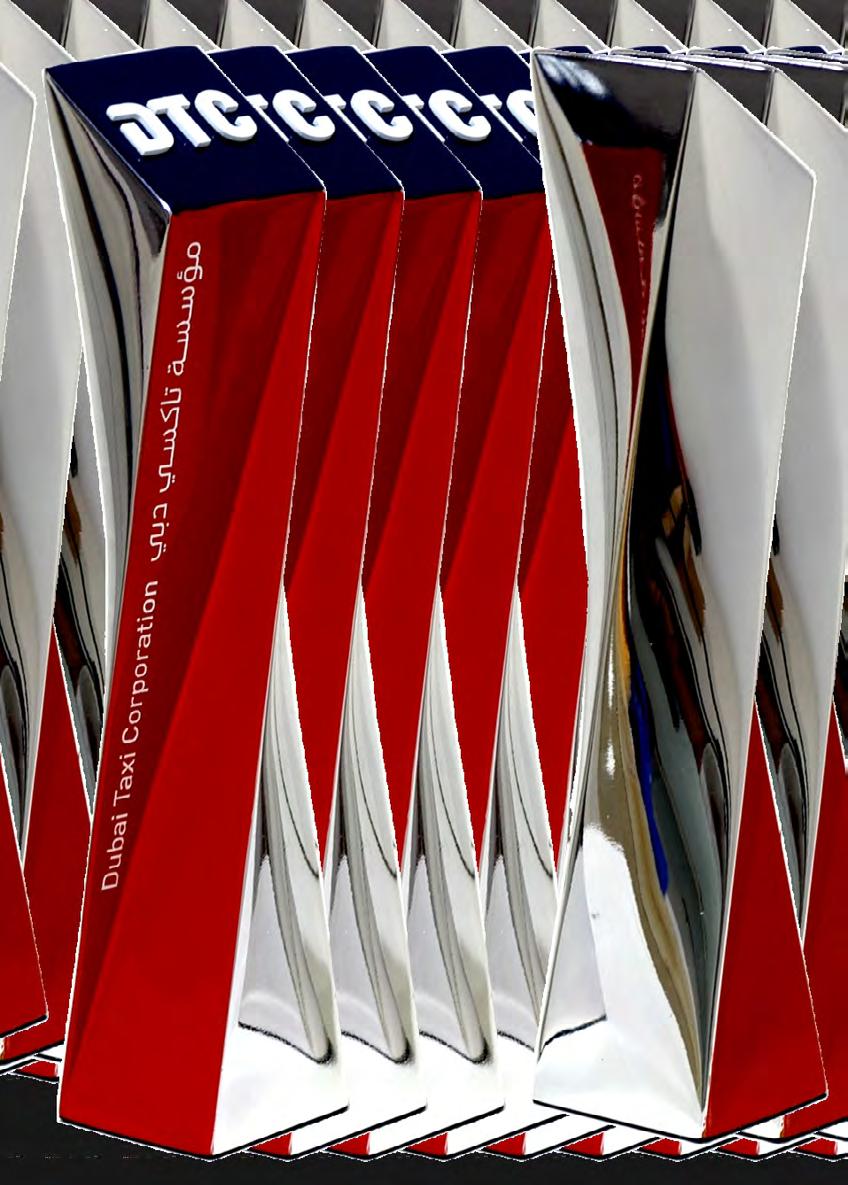
As a student at the American University in Cairo, Islam Shawky remembers being bullish about the digital economy, particularly about the transformational effect that e-com merce could create in the developing world. That’s why, in 2013, he teamed up with Alain El Hajj and Mostafa Menessy to launch an e-commerce platform in Egypt, and that’s also when he started approaching banks to integrate a payments gateway into their platform. “To our surprise, we realized that there was a major void in digital payments facilitation in the market,” Shawky recalls. “There was a gap between what banks were offering, and the financial technology require ments of new business models. No one had been tackling digital payments for e-commerce and digital native startups.”
The idea for Paymob was born right there, with the three co-founders deciding that they would help businesses in Egypt capitalize on the opportunities of the digital economy. “We also realized the huge market potential, since in Egypt alone, there were four million SMEs that would eventually need a digital payments infrastructure to scale their businesses,” he remembers. “We decided to lay the foundation for an emerging digital marketplace, and so, we were early movers in digital payments and took a classic ‘if you build it, they will come’ approach by building a payments infrastructure designed to enable merchants, startups, and SMEs to thrive in the digital economy.”
Today, Paymob is a Cairo-headquartered omnichannel payments facilitator that has a 1,100-person strong team across the MENA and Pakistan. It offers more than 40

payment methods, and it empowers over 150,000 SME merchants to manage and scale their businesses. “Our main focus is enabling SMEs to accept digital transactions through a variety of methods including cards, digital wallets, tap-on-phone, and flexible payments with a buy-nowpay-later (BNPL) model,” Shawky explains. “A greater number of payment acceptance methods correlates to higher sales and growth for SMEs. Mobile wallet payments have grown with the demand for contactless payments acceler ated by the COVID-19 pandemic. Also, recent inflationary pressures have driven demand for deferred payment options like BNPL, consumer finance, and easy payment plans on cards. So, in general, we are seeing more consumers opting to pay in installments.”
Paymob’s idea of enabling merchants to accept digital payments online and in-store has found favor with investors too. In July 2020, Paymob raised US$3.5 million as the first tranche in a Series A round, following which an additional $15 million was raised from the same investors, including Dubai-based Global Ventures, Egyptian investment fund A15, and Dutch development bank FMO, in 2021. “Initially, our challenge was convincing investors to believe in our ability to make our idea market-fit, scalable, and ultimately to succeed,” Shawky recalls. “Character is a value that venture capitalists (VCs) consider, especially early on when you are trying to get their buy-in
for your idea and your ability to see it through. They are considering whether you will deliver on your promises, and if you have delivered in the past.”
This explanation offers an indication as to why the three investors from the Series A round doubled down on Paymob’s next fundraising round that was completed in 2022, in which they were joined by investment firms like PayPal Ventures (the global corporate venture arm of American fintech company PayPal), Kora Capital, and Clay Point, as well as Nclude, Helios Digital Ventures, and British International Investment (formerly the CDC Group). Together, they invested $50 million in Paymob’s Series B round. “We consider our investors partners and members of the team, not outsiders,” Shawky says. “As much as our goal is to attract the best and the brightest talent, we also aim to attract smart money. Through our different rounds of funding, we strategically looked for investors with the experi ence, whether in more mature markets or in later stage businesses, to help us grow.”
Shawky’s advice to entrepreneurs raising funds for their startups is thus to focus not only on valuations, but also on the expertise that the right VC can bring to the table. “Don’t build a company focused on the exit,” he adds. “Build a company with a real foundation, and I believe the rest will follow.” Paymob’s growth trajectory can be seen as an example of this point- in addition to its headquarters in Egypt, it is
also currently present in Pakistan, Jordan, Palestine and Kenya. Plus, Paymob has just announced its expansion to the UAE. The company plans to make a sizeable investment in the UAE to empower micro businesses and SMEs across the seven emirates with the latest financial technologies to fuel their growth. “We are really focused on micro businesses and SMEs as the drivers of any economy,” Shawky says. “Our goal is to reach one million merchants in the next three years. We are also expanding our product suite to support SMEs in a digital economy. In addition to
payments acceptance, we are introducing new products to help SMEs manage their business and enable their growth.”
As a first step to growing Paymob’s business in the GCC, the company has hired Emirati financial services professional Omar Haddad as its General Manager for the region. Haddad has been tasked with building a payments ecosystem focused on serving the UAE’s burgeoning micro business and SME market segments. Another of Paymob’s recent moves to bolster its growth plans has been in the
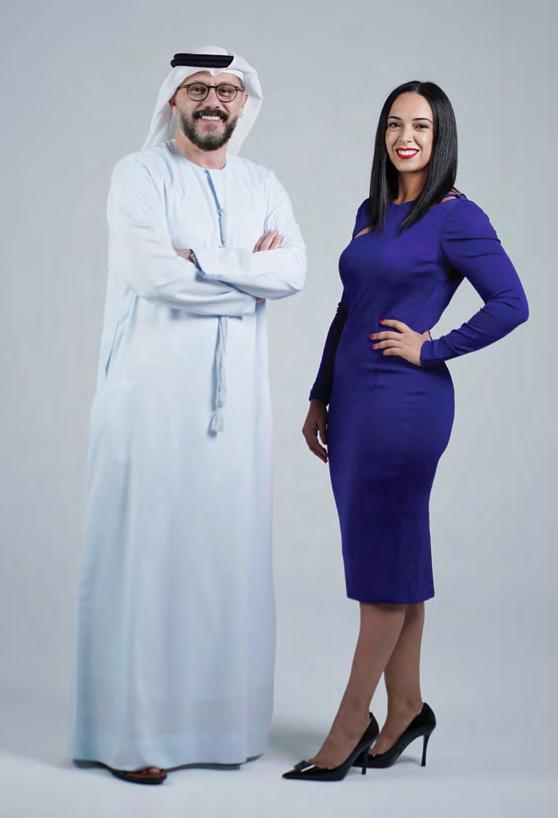
appointment of Imane Adel as its Executive Vice President of Strategy, who will guide the startup’s vision as it continues to deliver value-based digital transformation across the MENA region, through sustainable and inclusive financial technology solutions. Adel’s addition to the team in the UAE will build on the co-founders’ vision to stay several steps ahead of the market in MENA and beyond. But while the company has today come a long way from its early startup days, Shawky believes that its strategy for success remains the same. “What Alain, Mostafa, and I lacked in business experience, we made up for in hustle, drive, and a determination to see our idea through,” he says. “Our strategy has always been to surround ourselves with the best talent and know-how. We hire the best caliber of professionals, and empower them with the environment and the resources to succeed.”
Shawky adds here that there is a reason why he wants only people with strong problemsolving attitudes and skills on his team. “From early on, we were constantly told that the infrastructure we were building in Egypt was impossible because it hadn’t been done before,” he says. “This is why we value ingenuity– that drive to learn and find new ways to solve problems. We also value the power of teamwork, collaboration, and the exchange of ideas. These days, I go into team meetings, and I’m so impressed by the talent within the company. To me, that is success- that we have managed to attract some great minds to take us
forward in our next stage of growth.” In case one needed proof that Shawky embraces a culture of learning from (and not fearing of) failure at his startup, he reminds us that Paymob has risen from what he calls a mistake, or a failure to build the e-commerce platform that we set out to build. “It helped us see that there was a gap in the market in digital payments, and we pivoted our business idea to solve that problem,” he explains. “So, the ability to embrace mistakes, listen to the market and customers, and pivot is key to innovation. That’s our every day at Paymob, and I wouldn’t have it any other way.”
It’s this pioneering spirit that has led Shawky to be named an Endeavor Entrepreneur in 2022, and also to become a member of the Board of Trustees of the Technology Innovation and Entrepre neurship Center (TIEC). At the same time, Shawky remains passionate about building innovative, enterprise technologies that drive financial inclusion in the MENA region, and he believes that the region is now at an inflection point when it comes to digital payments. “The last decade was focused on the enablement phase, as central banks in MENA were focused on card payments, so they built the infrastructure to enable users and businesses with the tools to perform and accept transactions,” Shawky says. “I am now very excited about the new phase, which is focused on activation. Today, there are tens of millions of mobile wallets and cards customers in the region. This will produce a plethora of

startups focused on solving problems that will work on the foundation laid during the enablement phase. We will see innovative solutions addressing the consumer and small business credit gap, more software and softwareas-a-solution solutions for SMEs that will certainly shape the next decade.”
Shawky points out here that SMEs are the steady engine of economies, and thus, he expects larger contributions in the future from indepen dent merchants that launch
home businesses and use social media platforms as sales channels. “As a payment partner to this independent merchant movement, we can empower them to unlock income and fuel growth,” Shawky says. “The impact may not be obvious to everyone, but we see it in the online basket size, in increased sales volume, and in revenue growth for the small businesses that we empower to start accepting digital payments. This is why I wake up in the morning.”








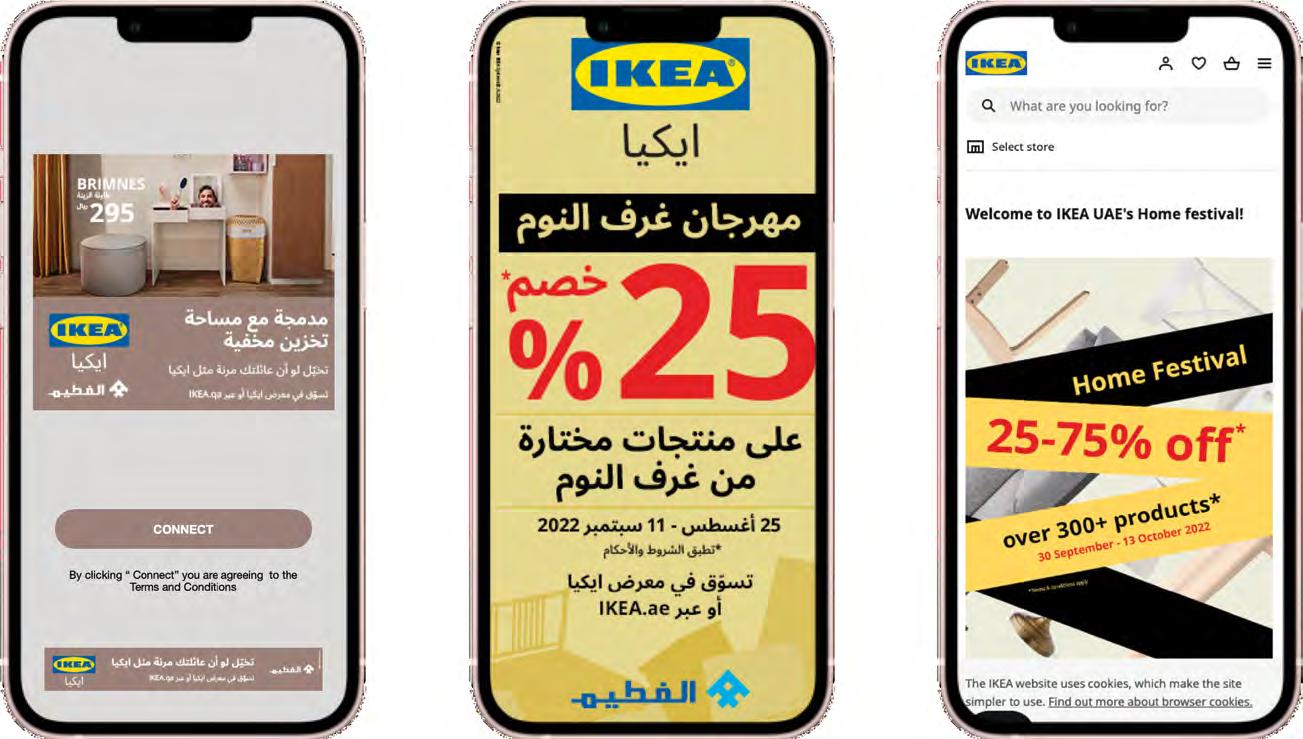

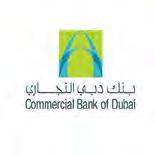

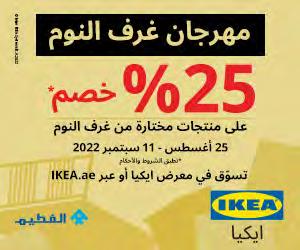


→ Global Millennial Capital uses artificial intelligence (AI) and deep learning to revolutionize the traditional way of investment evaluation and decision approach.
GLOBAL MILLENNIAL CAPITAL FOUNDER ANDREEA DANILA is using deep learning and artificial intelligence to disrupt the traditional venture capital investment process
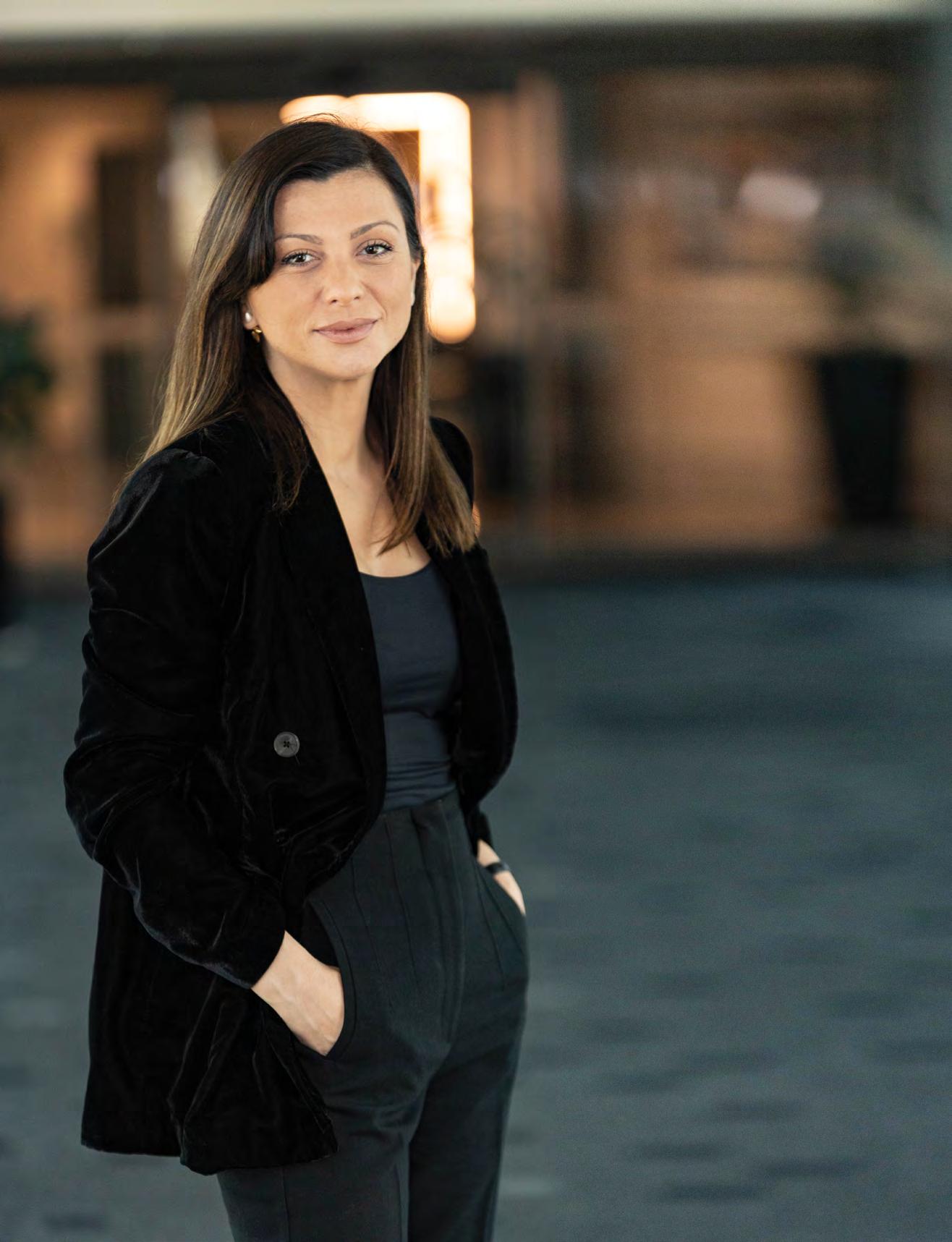 by TAMARA PUPIC
by TAMARA PUPIC
Andreea Danila, founder and Board Member of Global Millennial Capital, used to research and test the random ness of returns distribution of venture capital (VC) early-stage investments with the aim to generate top quartile returns outcomes, and for many, that would have been too complex a problem to solve. Yet, Danila, having studied at Massachusetts Institute of Technology and Harvard Business School, has always aimed high- and that’s the mindset with which she tackled this issue in front of her as well. “Today, Global Millennial Capital is the first investor to introduce the concept of artificial intelligence (AI) and deep learning to revolutionize the traditional way of investment evaluation and decision approach,” Danila says. “As the first venture capital firm to make strategic investments on a relatively new data-driven thesis, we focus our efforts on a continuous basis to support our goals of achieving a leading position as an emerging fund manager, and, most importantly, as a homegrown brand from the UAE.”
companies that have a high ranking and success score, evaluating a robust minimum viable product (MVP) with a superior innovation score, and, lastly, advising their entrepreneurs to be limitless in the pursuit of bold and transformative visions, while maintaining focus on achieving operating goals. “As early-stage investors, our focus is that our portfolio companies enter the early growth stage phase with strong operating and performance indicators, and are able to attract interest from reputable Series A investors, such as Sequoia, Anderson Horowitz, and Tiger Global, to name a few,” Danila says.
and saving recommenda tions.
This ethos is supported by Global Millennial Capital’s development of a proprietary data science algorithm that aims to generate statistically correct returns in early-stage deals. “As a data-driven investor, we even challenge the effectiveness of our own investing style and value creation approach as participants in the digital economy,” Danila explains.
“For example, for verticals such as cryptocurrencies and blockchain, the average time to reach a unicorn valuation is around 18-24 months, with some examples in the US, such as Certik, a security audit firm for the Web3
industry, and non-fungible token (NFT) domain name provider and digital identity platform, Unstoppable Domains, being valued at above US$1 billion in Series A itself. At the same time, we analyze the cycles of disruptions as it pertains to funding velocity, a metric we use internally in our data algorithm, shorter by about three to five years.”
Danila adds that the Global Millennial Capital team also takes a new approach to value creation and redesigns the investment approach by focusing on initiatives like identifying top-quartile early-stage technology
The fund’s data-driven strategy, which positions it at the intersection of fintech and venture capital and creates its scalable and differentiating value proposition, has led to 10 investments in the American fintech space to date. “We hope to be the first VC from the Middle East to bring to the regional stakeholders a few unicorns from Silicon Valley,” Danila says. Some of the firm’s notable invest ments include Transcrypts, a Harvard-founded blockchain for document identification technology, Blue Studios, a Web3 crypto digital wallet for families and kids, Nexus, a Y Combinator-backed robo-advisory technology company that improves checking account money productivity by enabling equity type returns with liquidity, and Envel, a Harvard-founded and Massachusetts Institute of Technology-backed fintech startup that uses AI to assist with automated investment
“One of the most relevant proofs of concepts that data and AI could generate superior returns lies in our latest case study, where we invested in Seashell, a blockchain technology for financial services set to generate high yields in an inflationary environment and reimagine the flow of money,” Danila adds. “The founder, Daryl Hok, was previously the founding member of a $2 billion (equity value) blockchain security company Certik, and also a founding member of Fiscal Note, a $1.4 billion (equity value) analytics company. Global Millennial Capital co-invested in the round with the likes of Vlad Tenek, Mark Cuban, Khosla Ventures, and Avalanche, just to name a few.”
Danila reveals here that Global Millennial Capital has been invited to join Harvard Business School’s Impact Finance Consortium, alongside Wharton Business School and Chicago Booth, and that it is also considered to be the first MENA venture capital investor to adopt the United Nations Sustainable Development Goals in its investment framework on themes like innovation, gender equality, and catalytic capital, among others. All of this is, according to Danila, a recognition of the fund’s investment philosophy and impact. “Global Millennial Capital endeavors to position itself as the ‘first to innovate’ in the venture capital segment,” she says. “We seek alpha strategies by investing in visionary ideas and founders from Silicon Valley, and over the last years, we have created a global
WE HOPE TO BE THE FIRST VC FROM THE MIDDLE EAST TO BRING TO THE REGIONAL STAKEHOLDERS A FEW UNICORNS FROM SILICON VALLEY.
network in collaboration with the world’s best academic institutes, bringing fresh new perspectives on traditional topics such as investing using data and AI.”
Although Danila aims to focus on her enterprise’s global expansion in the next three years, she highlights that, instead of rapidly scaling a business, the key to success in her field will always be based on one’s commitment to constant learning. “I believe each leadership journey is very specific not only to market conditions, opportunities, and sector expertise, but also to our systems of values, principles, and beliefs,” she says. “We have seen a significant transformation in the financial services and fund management industries in recent years, with trends such as decentralized finance, crypto, and Web3 emerging and disrupting operating models, coupled with the mass access to financial education and financial inclusion that triggered a shifting power from the institutional investors to the consumers of financial services information and products. It is a very new environment, and we need to thrive to constantly adapt, upskill and eventually lead in these emerging spaces.”
Such a philosophy also points to how Danila has reached her goals in life so far. A native of Romania, Danila worked in London and Singapore before relocating to the Middle East in 2010 and joining an alternative asset management firm based in DIFC, which went on to become an award-winning buy-out private equity player
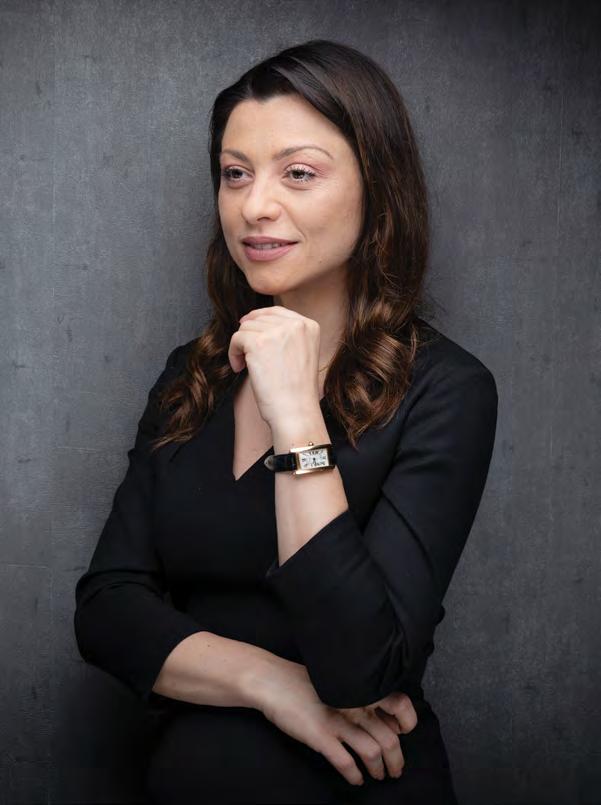
managing $1.5 billion of assets under management in MENASEA with more than 55 investments. After gaining such insightful private equity experience firsthand, she worked for global consulting firm Ernst and Young’s Corporate Finance arm, where her role focused on advising financial institutions and corporates around areas of mergers and acquisition, market entry strategies, joint ventures, and buy-outs and carve-outs with exposure to the consumer and technology sectors.
In late 2020, at a point which she describes as “at the bottom of COVID-19 market,” she teamed up with a couple of institutional investors who felt that the timing to invest and acquire stakes in technology companies in the US was favorable. “I pitched the idea of creating a data-driven fund over a Zoom call, with the vision to create a new model of venture capital in the Middle East, and provide access to Silicon Valley’s most prominent earlystage technology companies,” Danila explains. “A large number of qualified investors backed my vision as a blank cheque new hedge fund manager, regulated offshore by the Financial Services Commission in the British Virgin Islands.” When it comes to her view pertaining to the local developments in the region when it comes to entrepreneurship and venture capital, Danila believes that the UAE is an attractive destination for global entrepreneurship, given its macroeconomic environment, government initiatives as well as its seamless transition to a hybrid work model.
“We are particularly interested in the develop ments around AI in the UAE, as well as the various initiatives around blockchain and metaverse sectors, which tend to assist the further positioning of the country as an emerging global innovation hub well-posi tioned to attract global talent, especially in the areas of engineering, coding, and computer science,” Danila says. “Lastly, we observe a growing trend when it comes
to the emergence of public and private funds, with strategies and allocations for funds of funds, venture capital, and startups regionally and globally.” All of this serves to explain why Danila’s advice for entrepre neurs is to set up (and settle) in a place that offers access to smart funding, a friendly regulatory environment, and a cultural mindset focused on growth- again, she is talking about the UAE, and for all the right reasons.
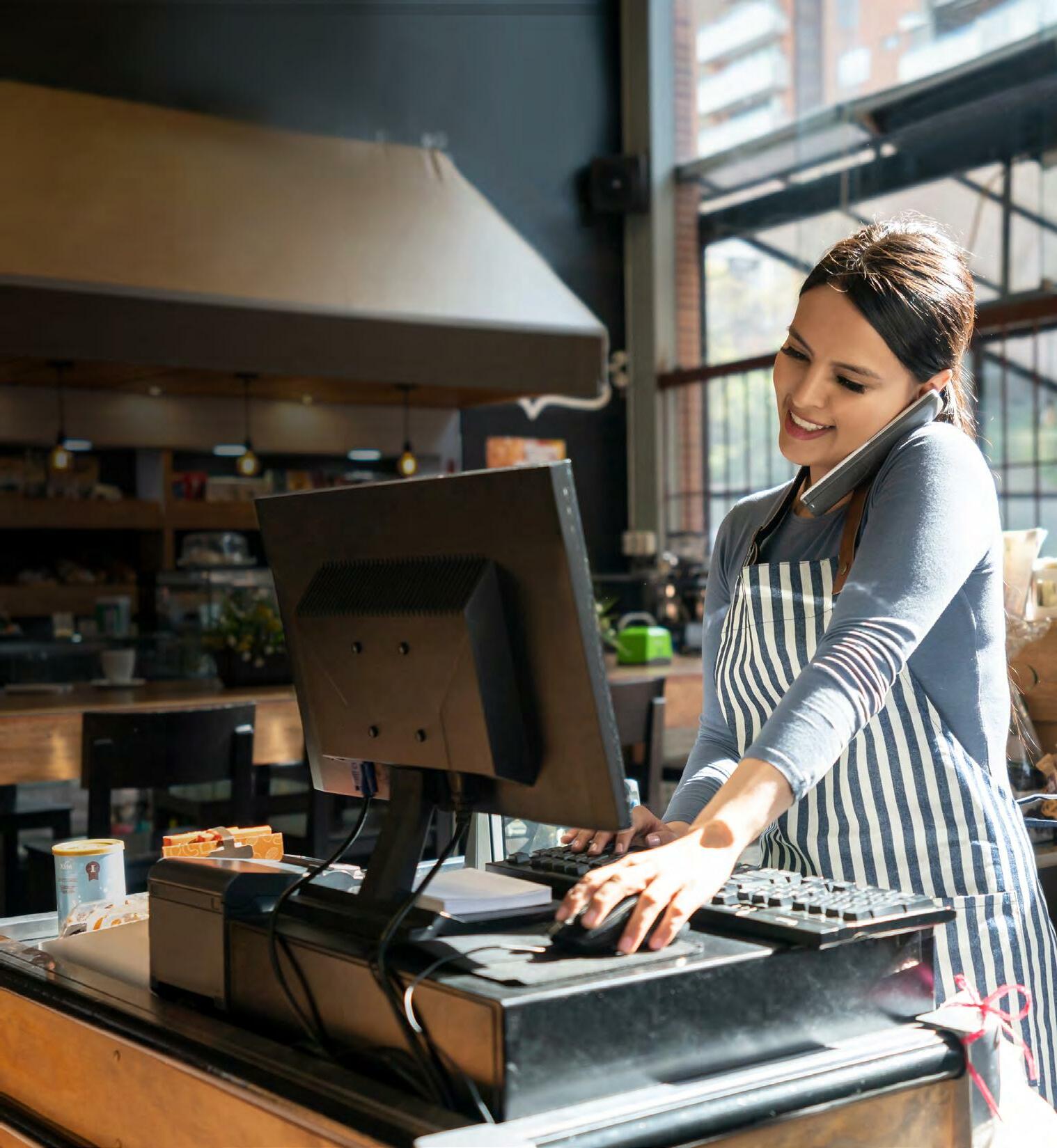
SINCE ITS LAUNCH IN 1981, GITEX GLOBAL has grown into one of the world’s largest technology exhibitions, and it has also made Dubai’s presence felt on the global technology map along the way. However, despite the event already being recognized for its grandiosity, the 2022 edition of GITEX GLOBAL has surprised everyone, with a common refrain from attendees being: “It’s the biggest event ever!”
Indeed, the 42nd installment of GITEX GLOBAL brought together about 5,000 companies from 90 countries whose products were showcased to over 138,000 attendees throughout the five-day trade fair at
Dubai World Trade Centre in Dubai. It encompassed the North Star startup conference that gathered 35 unicorns from 15 countries, a summit centered on artificial intelligence (AI) named Ai Everything, the Future Blockchain Summit, the digital finance summit FinTech Surge, and the martech event Marketing Mania. Plus, there were two new events- the coder and developer meetup Global DevSlam, and XVERSE, the immersive metaverse gathering that featured 28 experiential brands.
While it’s clear that the event gave the attendees the opportunity to assess the latest developments and innova tions in technology like 5G, artificial
intelligence, cloud technology, cybersecurity, fintech, blockchain, data analytics, and smart cities, GITEX GLOBAL 2022 also proved to be an excellent site to harness the power of networking. This is especially relevant in a world returning to normalcy after the COVID-19 crisis, with people now happy (and wanting to) return to in-person events and meetings. In fact, the recent findings of UK-based events and technology company Reed Exhibitions (RX) shows that for 78% of survey respondents attending trade shows in person is still their business’ preference, which is up from 68% in 2021. Furthermore, according to a Forbes Insights survey, 84% of executives prefer in person meetings for their ability to build more mean ingful business relationships. When it comes to effective network ing, Christopher Voss, a former FBI hostage negotiator and founder and CEO of The Black Swan Group, who was speaking at GITEX for the second year in a row, believed that one should ensure that cultural differences do not stand in the way of such interactions.

“Have empathy, as it is about under standing where the other side is coming from, and that is acceptable in all cultures, and above all, we all belong to the culture of being a human being,” Voss explained. “So, focus on under standing others as human beings, and then culture tends to fall away, because regardless of whether you are Asian,

African, or Western European, every body wants to be understood.”
Voss’ second piece of advice -which is to “avoid trying to connect with too many people at the events as big as GITEX”- was echoed by another speaker at the event: Roger Bassoul, Executive Director at Insead MENA. He added, “For many people, networking feels a bit like squeezing into trousers one size too small, but networking is essential if you wish to amass the social capital indispensable to a successful career. Its importance has not diminished with the overnight explosion of remote working. If anything, networking has become more critical, as jobs and advancement opportunities have been swept away by the coronavirus pandemic.” And in this new landscape, Bassoul suggested that it’s time to rename networking as relationship-building. “There are people who are good at making new ties or strengthening existing ties and others who are much better at ‘value exchange’,” he said. “That is, giving and eventually getting something in return. Both are crucial in relationship building.”
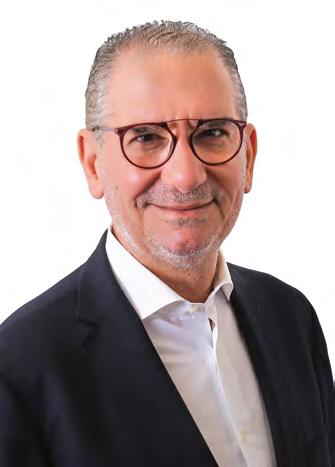
According to Alex Chehade, General Manager, Binance, if one wishes to make the best out of the networking opportu nities they are presented with, they first need to to have a a clear idea of who they would like to meet and start building relationships with. “It is who you think could mutually benefit from a conversa tion with you,” he said. “Once on-site, it’s always worth remembering that most people are there for very similar reasons, and that a potentially life-changing connection is only one ‘hello’ away.”
Agreeing with this was Alizar Tawil, founder of the online hijab clothing company Ruuq, who won the MENA finals of the 2022 TiE Women Global Pitch Competition staged by the Dubai outpost of global entrepreneurship network TiE at GITEX GLOBAL. Tawil was selected among 42 finalists from 10 countries, 20 cities and 13 different industries across all five regional finals. She will receive $25,000 in equity-free cash from e&capital, as well as represent the MENA region in the global finals at TiE Global Summit in December in Hyderabad, India, where she will compete for the $100,000 equity-free prize money.
According to Tawil, networking at events like GITEX Global is essential for startups “who don’t necessarily have experience in the business world.” “For me, things like venture capital and term sheets were very foreign concepts

THERE ARE PEOPLE WHO ARE GOOD AT MAKING NEW TIES OR STRENGTHENING EXISTING TIES AND OTHERS WHO ARE MUCH BETTER AT ‘VALUE EXCHANGE’. BOTH ARE CRUCIAL IN RELATIONSHIP BUILDING.→ The 2022 edition of the GITEX GLOBAL also included the North Star startup conference that gathered 35 unicorns from 15 countries. ↓ Christopher Voss, founder and CEO, The Black Swan Group ↑ Roger Bassoul, Executive Director, Insead MENA

before getting into this,” she added. “To get to meet all these people in such a concentrated place and to get the exposure has been absolutely phenom enal.” Meanwhile, Shadman Sakib, a serial entrepreneur who is currently the founder and CEO of interactive short video platform Vurse, reiterated the importance of networking for startup founders. “All startups build and thrive on communities, and building an active community happens through partner ships, communication, and obviously, networking,” he said. “Partnerships are very important in the startup phase, and there are two types- vanity partnerships, and partnerships that really adds value and exhibits patience, since the startup phase indeed is a delicate time.”
And for those of you who are in the midst of that fragile startup phase, Voss shared three important pieces of advice for building win-win relationships. “Make sure that you have heard out the other side properly, because the likelihood that they are going to tell you something really valuable that will change your perspective increases if you hear them out first,” Voss said. “Then, if you need them to hear you out, given that you have heard them out first, they are going to be in a position to listen.”
Now, if you are entering into these conversations with the explicit aim to make a deal happen, then Voss suggests that you first make sure that there is indeed a real deal to realize in the first place. “In many cases, the deal will never be there,” he explained. “There are certain types of attributes and behaviors of people that are either there to exploit you or to play you off against somebody else, like they are looking for a compet ing bid, and they want you to drive the price down on somebody else. Or they only want it if they don’t pay you anything, like they are promising you
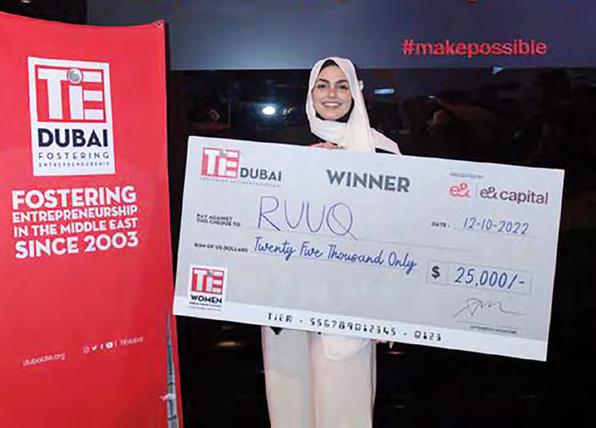
great things in the future ‘if you will just do this now,’ so they are trying to exploit you. Or they are not looking to do anything, but they want you to give them free consulting, they want you to tell them how to do something, so that they can do it on their own and not pay you.”
Finally, when it comes to networking effectively, Voss said one needs to always be clear about what they want out of any such undertaking. “Don’t make people guess what it would take to make a great deal with you,” Voss declared. “Never make people guess what you need.”
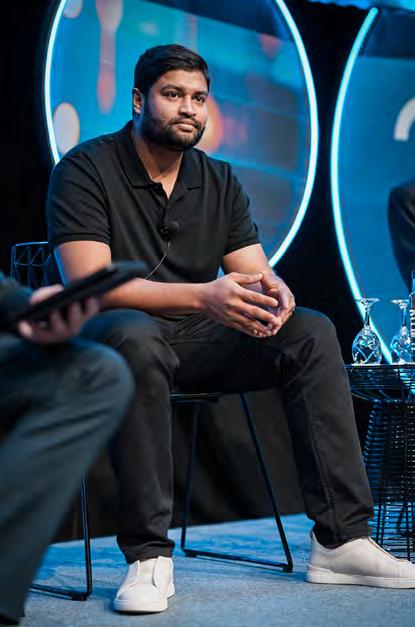
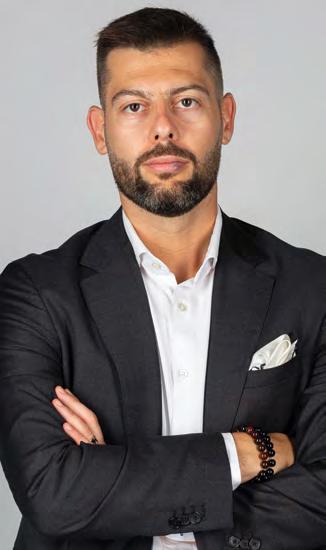
At GITEX GLOBAL 2022, how did you ensure that you and your enterprise were networking effectively?
"Any company preparing to fully harness the benefits of attending an event such as GITEX should objectively assess the value and challenges that it might face. With a clear trajectory in mind for our regional expansion, at GITEX, we were able to align with the tech experts and government entities present at the event on the importance of innovation and security for further virtual asset adoption in the Middle East. What was extremely important for me to highlight at this year’s GITEX was the significance of an effective regulatory framework for developing a trustworthy virtual asset ecosystem. If we aim to put Dubai on the map as a global virtual asset hub, a dialogue between regulatory entities and industry leaders is crucial.”

At GITEX GLOBAL 2022, how did you ensure that you and your enterprise were networking effectively?
"Preparation is a very important aspect of successful networking. Since we aimed to represent Bahrain’s business ecosystem and highlight the kingdom’s position as a tech hub both in the GCC and MENA region through our participation, we prepared for our participation at GITEX well in advance, taking great care in curating every aspect of the Bahrain delegation's participation including in terms of the setup and design of the pavilion."
Female entrepreneurs in the MENA are still struggling to fundraise, says new report released at GITEX GLOBAL 2022
Female entrepreneurs across the MENA region still struggle with establishing good connections with investors, with a report released by Wamda, TiE Dubai, and TiE
Women at GITEX GLOBAL 2022 showed that almost two-thirds of female founders believe that MENA-based investors are less likely than global investors to invest in women-led startups. The report further states that in the first nine months of 2022, less than US$50 million was invested in startups founded solely by women- about 2% of the total ($2.4 billion) funds injected into the region. Startups with both male and female co-founders raised $127 million in total, or 5% of the total. However, the region is not unique in this regard, investment patterns here are reflective of global trends, where in 2021 just 2% of the $6.4 billion venture capital investments was directed at female-founded startups.
Farah Emara, co-founder of Egypt-based agritech startup FreshSource, said in a statement that there was a significant gender gap in the regional markets mostly due to prevailing cultural and social norms. “I am optimistic that through these reports, we are able to raise awareness on women’s rights and inspire women to achieve their full potential,” she said. “Building FreshSource as a woman in the agriculture industry has been a challenging journey, but I am lucky to have a great co-founder, team, mentors, and programs that can support me along the way.” Commenting on the ecosystem at large, Ashish Panjabi, President of TiE Dubai, said that it’s high time for MENA investors to change their outlook on female entrepreneurs. “We need to look at women entrepreneurs as just entrepreneurs, because our global TiE Women competition has shown us that these entrepreneurs are innovative, and that they deserve to be treated as equals with the same checks and balances as any other business that is looking for investment,” Panjabi said. “This means our investor ecosystem needs a mindset change.” tiewomen.org
FLAPKAP has raised US$3.6 million in a seed funding round led by US-based venture capital (VC) firms QED and Outliers, as well as Egypt-based VC firms Nclude and A15. The new round follows the $1.2 million FlapKap raised as an investment in March 2022- the same month the fintech startup was launched. FlapKap’s business model involves
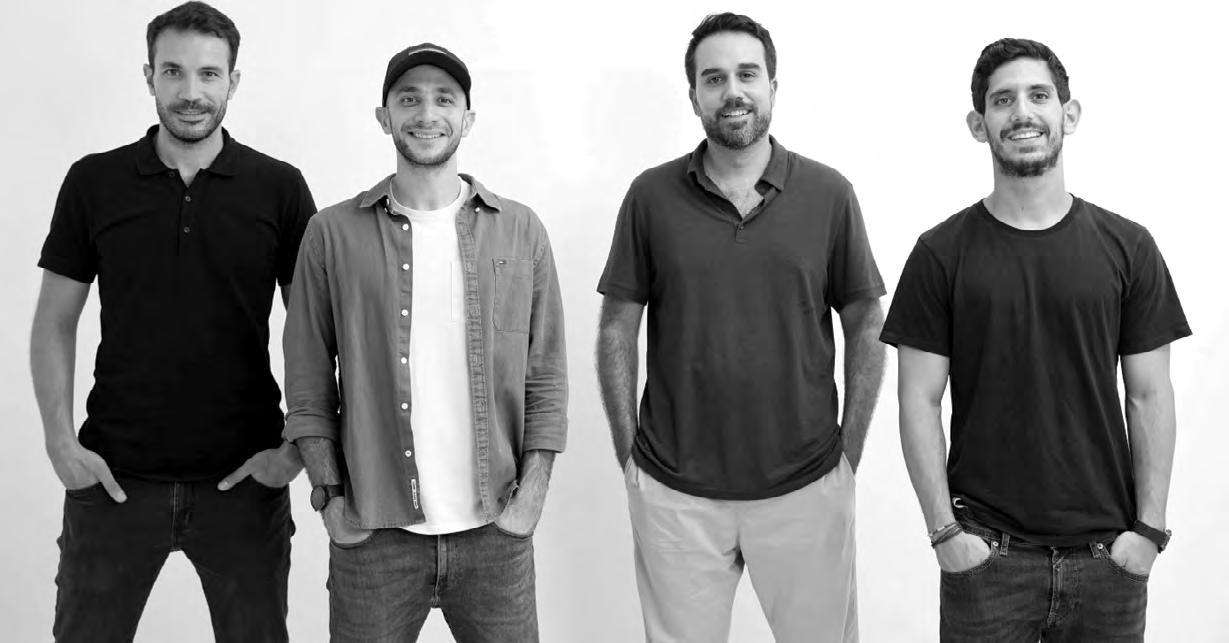
offering non-dilutive funding -a form of working capital that doesn’t require a startup founder to give up equity or ownership when receiving it- to small and medium businesses (SMBs) and software-as-a-service (SaaS) firms, which is then repaid as a fixed percentage of the revenue they generate. “This means that whatever investment we make into the business is repaid, along with our small fixed fee, as a fixed percentage of the daily sales, till the total outstanding amount is fully repaid,” Ahmed Coucha, co-founder and CEO of FlapKap, explains. “In other words, our clients pay us back only when they sell. If sales
increase, so do our repayments. And, vice versa, repayment slows down if sales fall.” Now, it is no secret that the e-commerce boom witnessed through the course of the coronavirus pandemic incentivized a lot of businesses to start selling online. Coucha, however, laments that this shift magnified a lot of funding-related issues for the already financially underserved SMB market. “On the one hand, e-commerce SMBs, which are constantly struggling to access the needed funds for growth, are not easily understood by the traditional banks,” Coucha says. “Not to mention that the banking process is very slow for their growing needs, and that
excessive collaterals are usually required, which add extra risk on the founders. On the other hand, getting investors’ money to finance working capital means giving up equity. This creates an adverse incentive for growth. The more these companies can grow, the more the founders will lose in their ownership. Not to mention that this option is only available to a select few. That’s why we have created what we call a 3F offering: fast, flexible, and founder-friendly funding.”
The chain of events that sparked Coucha’s inspiration for FlapKap, however, came much before the pandemic had even begun. “More than 11 years ago, I co-founded a digital advertising agency, which has now grown into a much larger advertising network called GP&K,” Coucha recalls. “At GP&K, we have mostly worked with what we call the ‘top-of-thepyramid’ clients such as Amazon, Netflix, Coca-Cola, P&G, and many others. But along our journey, we realized that aside from offering these clients advertising services, we were also offering them banking services, and the larger the client’s budget, the more generous credit terms they get. This always struck me as counterintuitive and a bit ironic. We thus felt that this was an immense opportunity to help the ‘middle-of-the-pyramid’ SMEs.
During the coronavirus e-commerce boom, I came across the RBF model, and that’s when we decided to start FlapKap to become the first RBF player in the MENA.”
From Coucha’s perspective, while FlapKap caters to a very niche issue in the funding ecosystem, it doesn’t necessarily see itself as a separate entity in the grand scheme of things either. “FlapKap acts as a missing puzzle piece, supporting our partners as an extended department,” he explains. “Our business model can solve their working capital issues with the media or inventory funding within 48 hours.” But flexibility in financing apart, by offering tools such as intuitive dashboards that provide insights on advertisement spending, as well as a spend-now-pay-later feature for inventory management, FlapKap also seeks to provide a holistic solution for SMB founders. “We support our clients in optimizing their digital ads through an artificial intelligence (AI) model that we are building, as well as access to our growth experts, and that’s why we see ourselves as a full-fledged growth solution,” Coucha adds. “We support our customers in optimizing their business and identifying growth areas, then fund them in the most flexible way to realize this growth.”
With the funds they have now raised, the FlapKap team hope to be able to scale their services across the MEA region.
“While the newly raised funds will be used to fuel more growth for our customers, the majority of the funds will be deployed to more clients across KSA, UAE, and Egypt,” Coucha says. “Another part will be used in scaling our tech platform and further investing in our AI model to generate more meaningful insights for our partners.” FlapKap’s decision to raise a seed round, however, wasn’t always on the cards, reveals Coucha.”Since our launch, we’ve been receiving generous interest from the investment community, but we had to respectfully turn down their offers as we had enough cash to go for another year at least and we wanted to focus on building the product,” Coucha says.
“However, we decided to open the round when we received interest from QED. Aside from being one of the largest fintech investors in the world, QED is the leading investor in the RBF space globally. They were also amongst the first investors in our global peers, Wayflyer and Fairplay, who have collectively raised over $900 million of debt and equity. So, it was a no-brainer for us that getting such an esteemed partner on board early on can accelerate our growth massively.” It was this decision to open a strategic ad-hoc round for QED that eventually led to Flap Kap also partnering with the aforemen tioned VC firms Outliers and Nclude.
Now, in light of how the ongoing funding winter has led to a stagnation in invest ment opportunities for many startups, Flapkap’s story may not be particularly reflective of most funding anecdotes in the region right now. But Coucha still has a few words of advice for fellow entrepre neurs seeking to secure investments in the region right now. “Raising during this time is not an easy task at all with many VCs following a strategic wait approach, but despite ours not being a typical round, there are so many learnings that can be helpful,” Coucha says. “The most important of these learnings is to raise when you are not most in need. Raising while short in cash will force us into a survival mindset, not a strategic one. We don’t want to be raising to survive, we hopefully want to raise to thrive!”
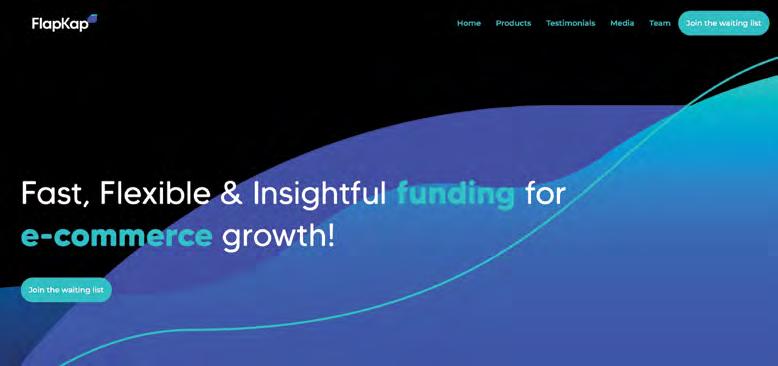
WE SUPPORT OUR CUSTOMERS IN OPTIMIZING THEIR BUSINESS AND IDENTIFYING GROWTH AREAS, THEN FUND THEM IN THE MOST FLEXIBLE WAY TO REALIZE THIS GROWTH.
cashee.com
CASHEE, A UAE-BASED DIGITAL BANKING PLATFORM tailored for teenagers in the MENA region, has raised US$3 million in a Series A funding round led by Arab National Bank (ANB). With the capital infusion, ANB has also acquired an undisclosed stake in the startup.
Founded in 2020 by Brad Whittfield and Smeetha Ghosh, Cashee is on a mission to encourage financial literacy and financial inclusion for youth in the MENA region. Head quartered in Dubai, Cashee offers a Visa prepaid card and digital banking applications (available for Android and and iOS devices) for teens aged 13 years and above. It also offers a digital knowledge platform for teens to learn personal finance skills and money management habits, while also providing parents with control over their children’s transactions on its mobile applications. Since its launch, Whittfield notes the Cashee app has been downloaded in the UAE approximately 90,000 times, with it also seeing over 40,000 sign ups. In March of this year, the team also joined Visa International’s Fintech Fast Track Program, enabling the startup to take advantage of Visa’s global network for its business.
Commenting on the new funds, Whittfield states that it will be used for Cashee’s expansion plans in KSA, and thus, make its solutions and products available to a new market of younger generations and teens. Whittfield also notes that partnering with ANB, considered one of the most prestigious banking institutions in the region, is a definite advantage and catalyst that will help them achieve their expansion goals. “It’s more of a strategic investment relationship, unlike [a] VC, which is focused on exit,” he adds.
OUR COLLECTIVE TRACK RECORD IN THE PAYMENTS SPACE AND RELATIONSHIPS IN THE ECOSYSTEM WAS CRITICAL FOR OUR FUNDRAISING SUCCESS.
The partnership also aligns with ANB’s efforts on the bank’s digital transformation journey and further expand the scope of financial inclusion, says Aiedh AlZahrani, COO and Head of Retail Banking Group, ANB. “The partnership between ANB and Cashee aims to develop the first banking application of its kind in Saudi Arabia that promotes the financial culture among Saudi youth, in a way that will encourage savings, financial literacy and other worth while goals, as a contribution from the bank to achieving one of the primary goals of Vision 2030,” AlZahrani says.
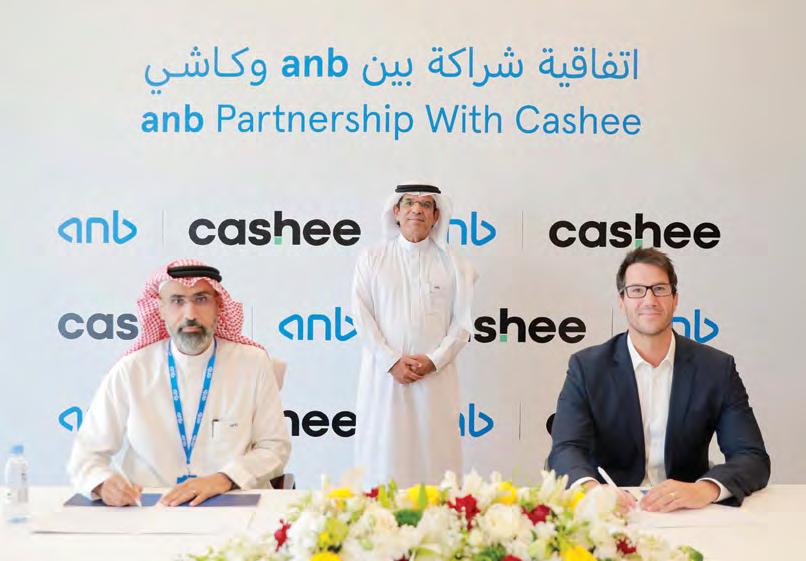
“The MENA youth market is very large,” Whittfield says, when asked about the potential of a fintech platform catered for teenagers. “In KSA, we are targeting 9-19 years old, which represents over 6 million and close to 18% of the total population.” He also notes that the youth market remains completely untapped, given the historical restrictions on how teenagers can open a bank account, as
well as the high penetration for digital adoption among the younger generation.
As for fellow entrepreneurs who are looking to raise funds currently in the ecosystem, Whittfield candidly shares the importance of obtaining capital as needed. “As with all financial products, there are a lot of inherent dependencies and regulatory approvals required,” he says. “This is a good thing- if it were easy, everyone would do it. However, the time it takes to navigate the white-water rapids of the fintech ecosystem needs a decent amount of seed funding.”
Plus, Whittfield also highlights the significance of having well-rounded team. “Digital payment knowledge is beyond paramount. Having a great team is great, but I can safely say that our collective track record in the payments space and relationships in the ecosystem was critical for our fundraising success.” Whittfield’s final piece of advice for entrepreneurs is to always look to the long-term: “Think two years ahead, constantly.”
findruba.com
STARTUP WITH A MISSION to make educa tion accessible, has raised an undisclosed amount in an oversubscribed pre-seed funding round from a select number of strategic angel investors.
Founded in 2021 by Ameen Nadoom, Fawaz Al-Rashdan, and Menawer Al-Azmi, Ruba enables parents to pay for their children’s school tuition fees in easy instalments on a monthly basis at zero cost. The startup currently partners with private nurseries, K-12 schools, universities, and other academic providers in Kuwait, and it also aims to expand across the MENA region soon.
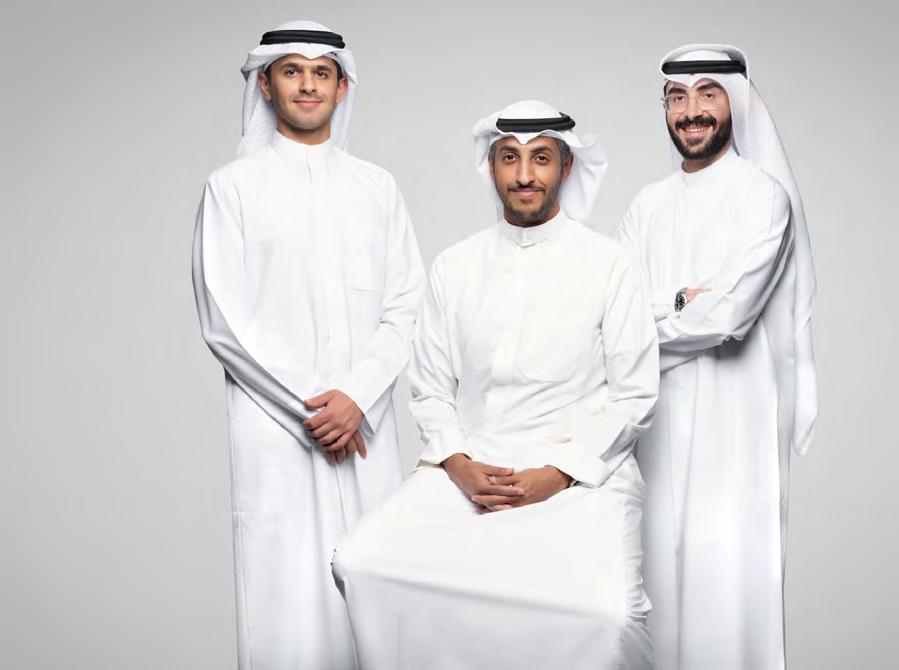
According to co-founder and CEO Nadoom, Ruba initially started off as a smart directory to help parents make an educated decision about the best school for their child’s future. Seeing the market’s needs as well as feedback for their product, Nadoom says he and his team then decided to shift their startup’s focus “by offering a Shariah-compliant enroll-now-pay-later (ENPL) solution for private schools and nurseries in the region.”
Armed with experiences in careers ranging from management consulting, banking, telco, and retail
in the GCC and North America, the co-founders were keen to tackle the challenges that parents encounter when faced with costly tuition fees over two or three install ments every school year, which can result in cash flow issues and a lot of stress. With Ruba’s fully digital platform however, parents can easily request for a breakdown of the lump sums into affordable monthly installments, and at the same time, elimi nate reconciliation challenges and delays for educational institutions.
Having gone live with the platform earlier this September, Nadoom says the traction Ruba has
witnessed so far has been tremendous. “We are grateful to all the educa tional institutions and parents who believed in us from the start,” he says. “We aren’t just any typical financing solution, but we are one focused on a social cause that will touch the lives of every household.”
Nadoom is also confident about the platform’s differentiating factors from competitors in the market. The platform provides a full digital onboarding process that is focused and dedicated to offering a financing solution, says Nadoom. The startup’s presence in Kuwait is a bonus too. He adds, “Being GCC locals and having a very good
understanding of the culture and the market overall [helps as well].”
The new infusion of capital will now be used to grow Ruba’s team and further launch the digital solution and market it across the region. Besides that, in the coming months, the team plans to include more universities as early as next year and expand to the KSA market in early 2023. When asked for his advice for entrepre neurs seeking to raise funds like he did with Ruba, Nadoom advises, “Start early and budget in ample time, prioritize smart money, and listen and learn.” And finally, he adds: “Never give up.”
WE AREN’T JUST ANY TYPICAL FINANCING SOLUTION, BUT WE ARE ONE FOCUSED ON A SOCIAL CAUSE THAT WILL TOUCH THE LIVES OF EVERY HOUSEHOLD.→ Ruba co-founders Ameen Nadoom, Fawaz Al-Rashdan and Menawer Al-Azmi
Saudi Arabia’s HRH Crown Prince Mohammad bin Salman bin Abdulaziz Al Saud, Prime Minister, and Chairman of the Public Investment Fund (PIF) has announced the launch of Ceer, the Kingdom’s first electric vehicle (EV) brand.
Besides aligning with the country’s efforts to boost its automotive manufac turing sector, the launch of Ceer is also part of PIF’s strategy to diversify the KSA economy, as well as contribute to the country’s efforts towards carbon emissions reduction and sustainability.
In the statement, Prince Salman said, “Saudi Arabia is not just building a new automotive brand, we are igniting a new industry and an ecosystem that attracts international and local investments, creates job opportu nities for local talent, enables the private sector, and contributes to increasing Saudi Arabia’s gross domestic product (GDP) over the next decade, as part of PIF’s strategy to drive the economic growth in line with Vision 2030.”
As the first Saudi automotive brand to produce EVs in the country, Ceer will design, manufacture, and sell a
portfolio of vehicles for consumers, including sedans and sports utility vehicles. With the launch of the company, the release noted that it is projected to attract over US$150 million of foreign direct investment and create up to 30,000 direct and indirect jobs.
The company is a joint venture between PIF and Hon Hai Precision Industry Co. (Foxconn), and it will license component technology from BMW for use in the vehicle development process. Foxconn will develop the electrical architecture of the vehicles, whilst each vehicle will be designed and manufactured in Saudi Arabia and tested to global automotive quality control and safety stan dards.
The partnership is a significant step that combines expertise and vision, noted Young Liu, Chairman of Hon Hai Technology Group. “We will leverage Foxconn’s technological expertise to support Ceer’s vision of creating a range of iconic electric vehicles that are built around the themes of connectivity, infotainment, and autonomy. We want to make electric vehicles main stream, and that is what Ceer is going to achieve in Saudi Arabia and the wider region.”
Ceer vehicles are expected to be in the market by 2025, and they are projected to directly contribute $8 million to KSA’s economy by 2034. ceermotors.com

